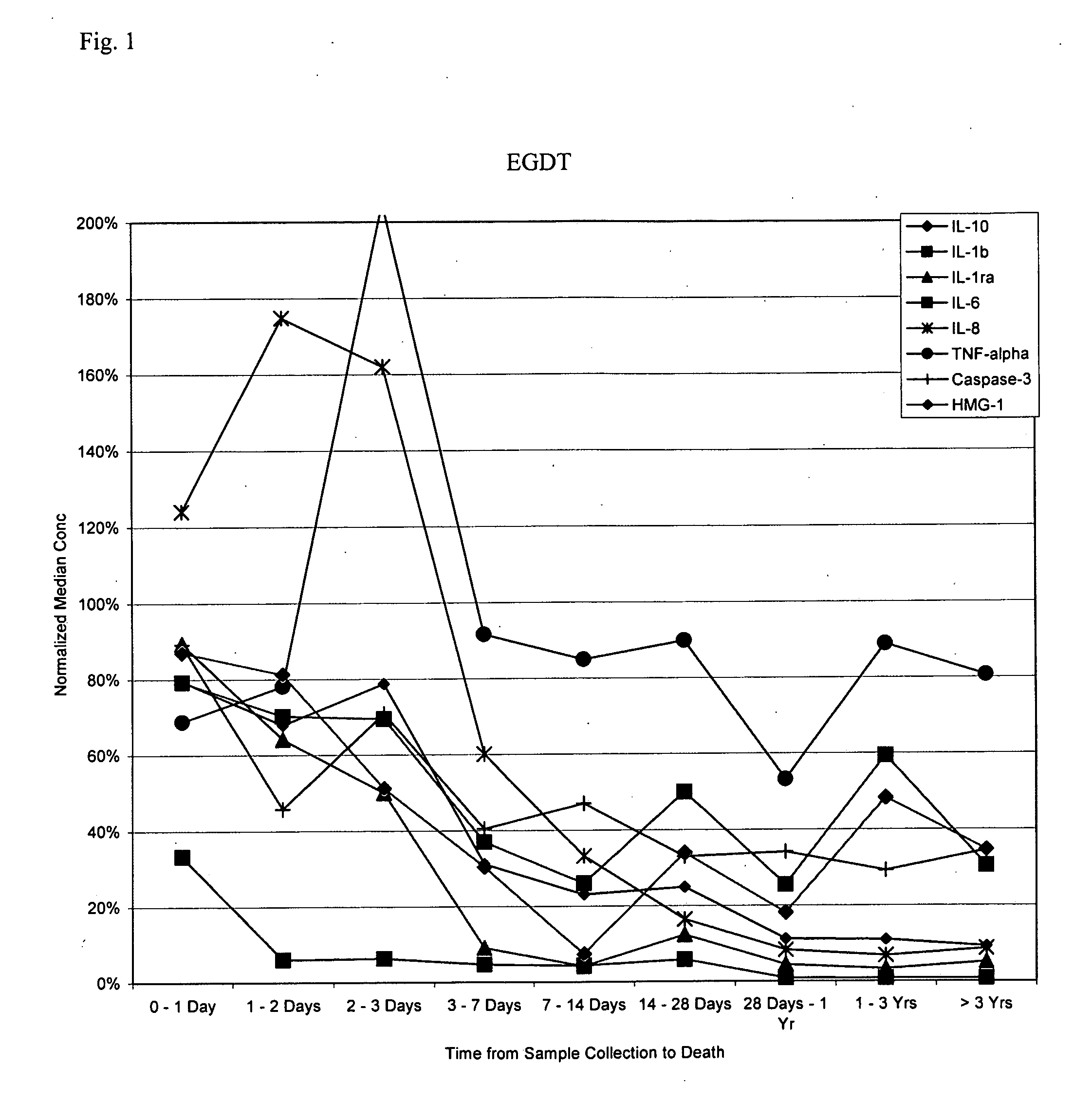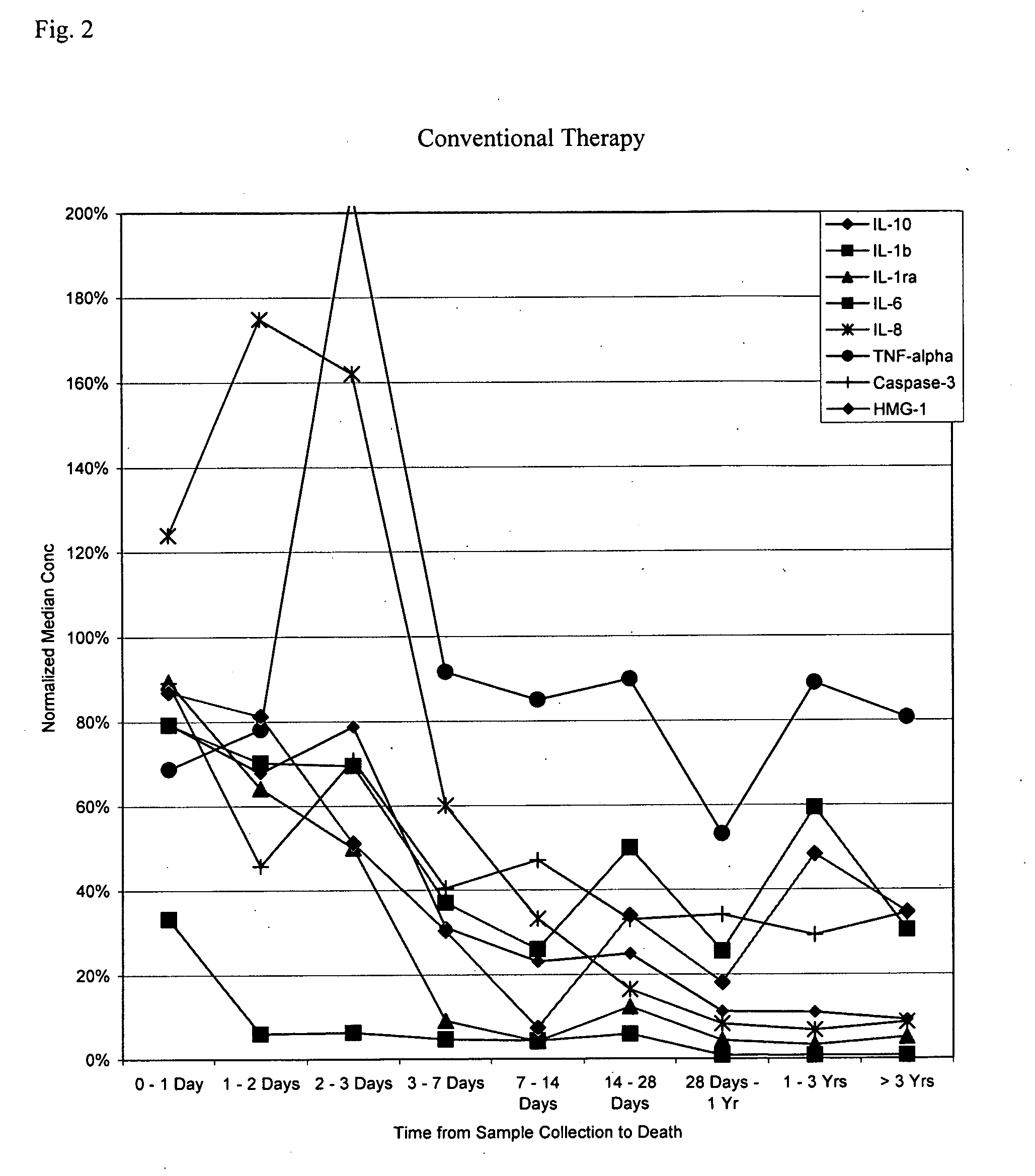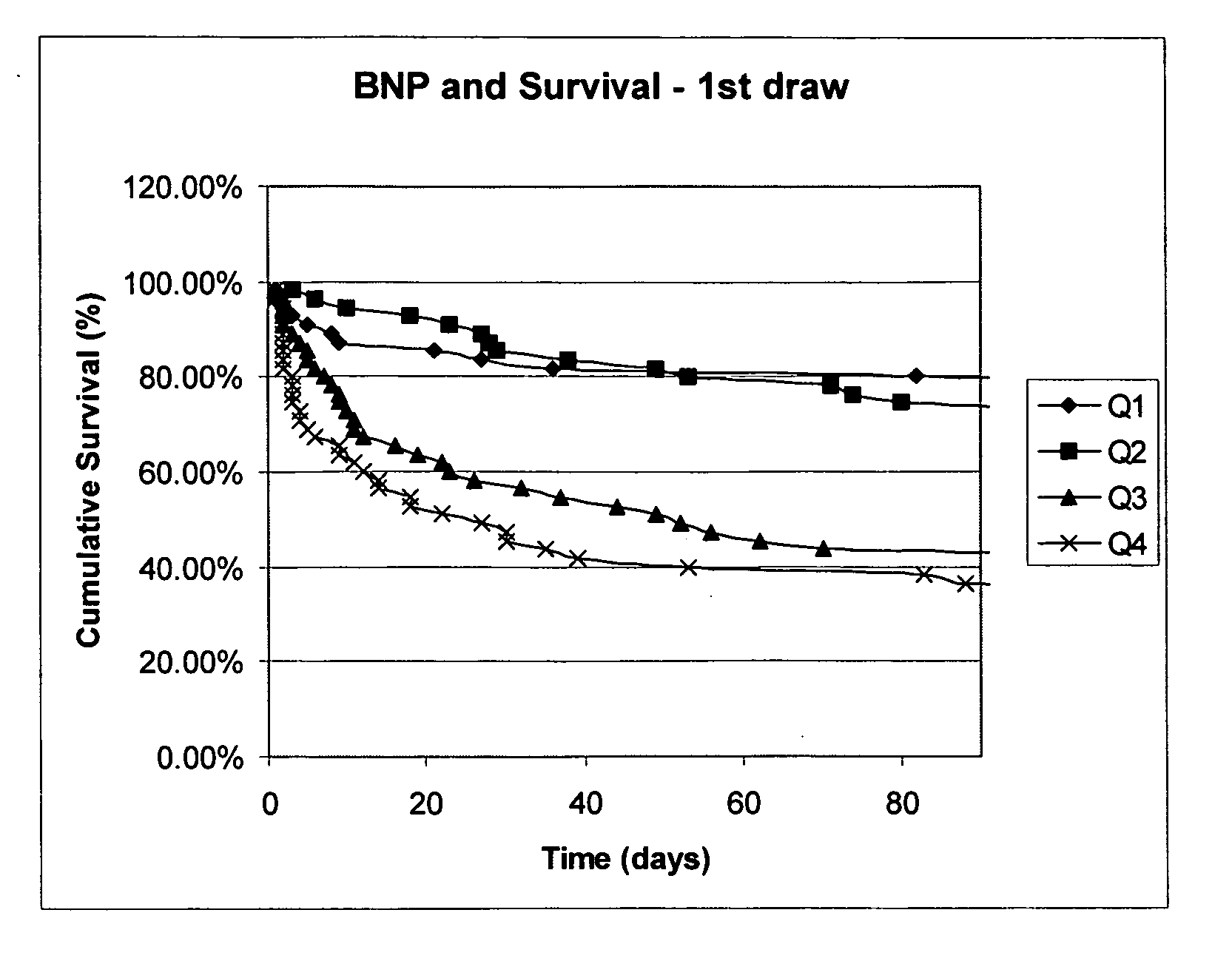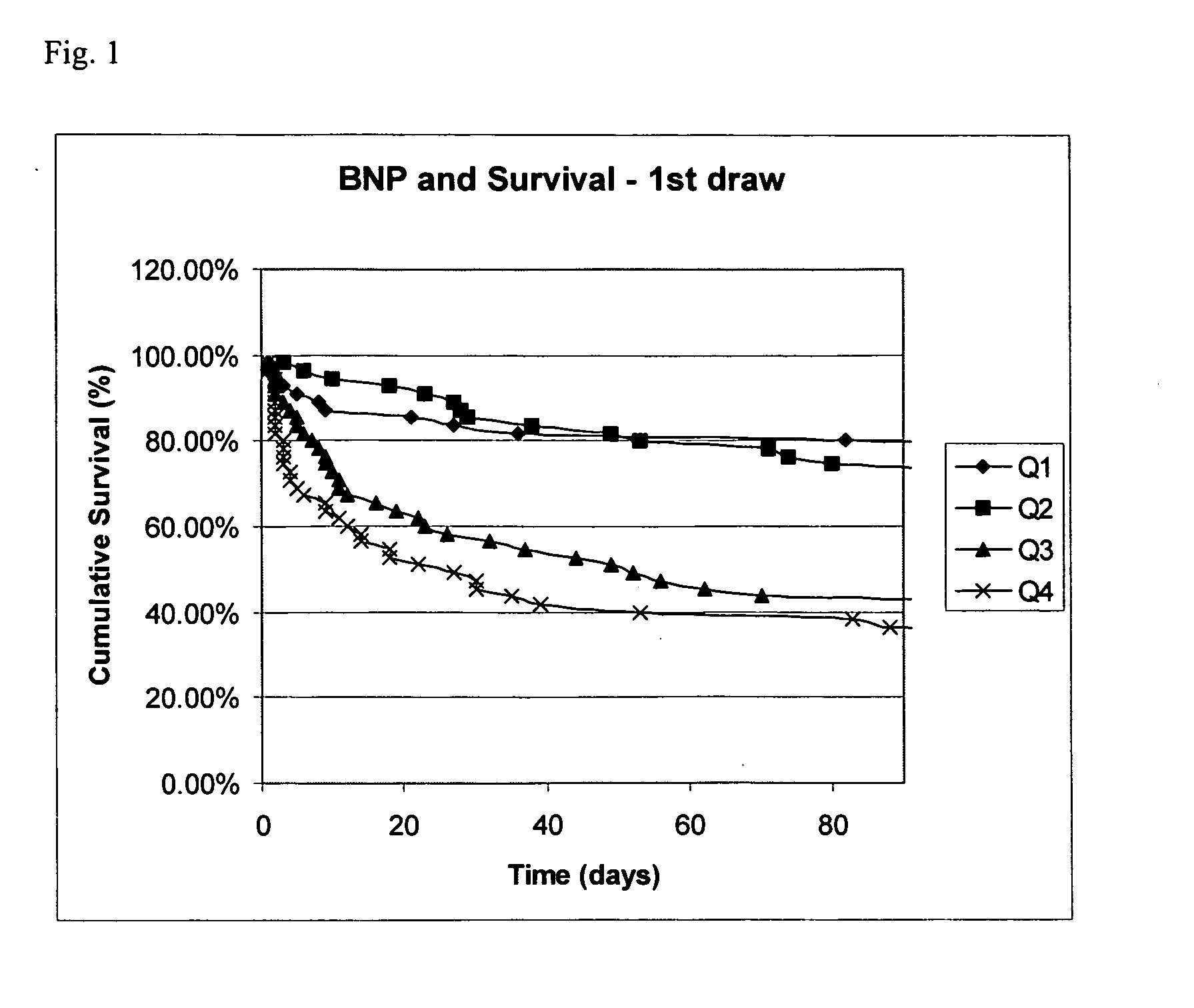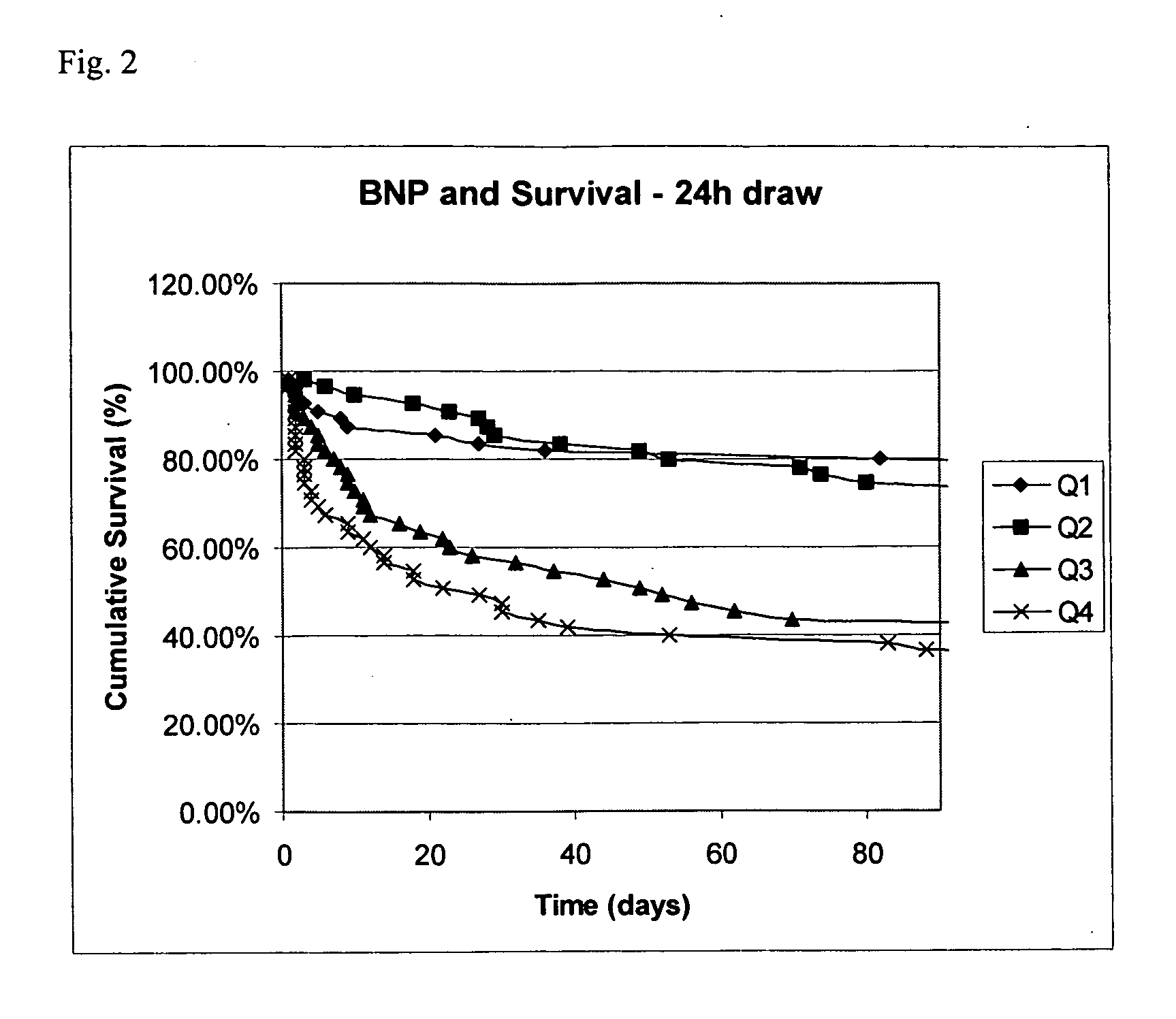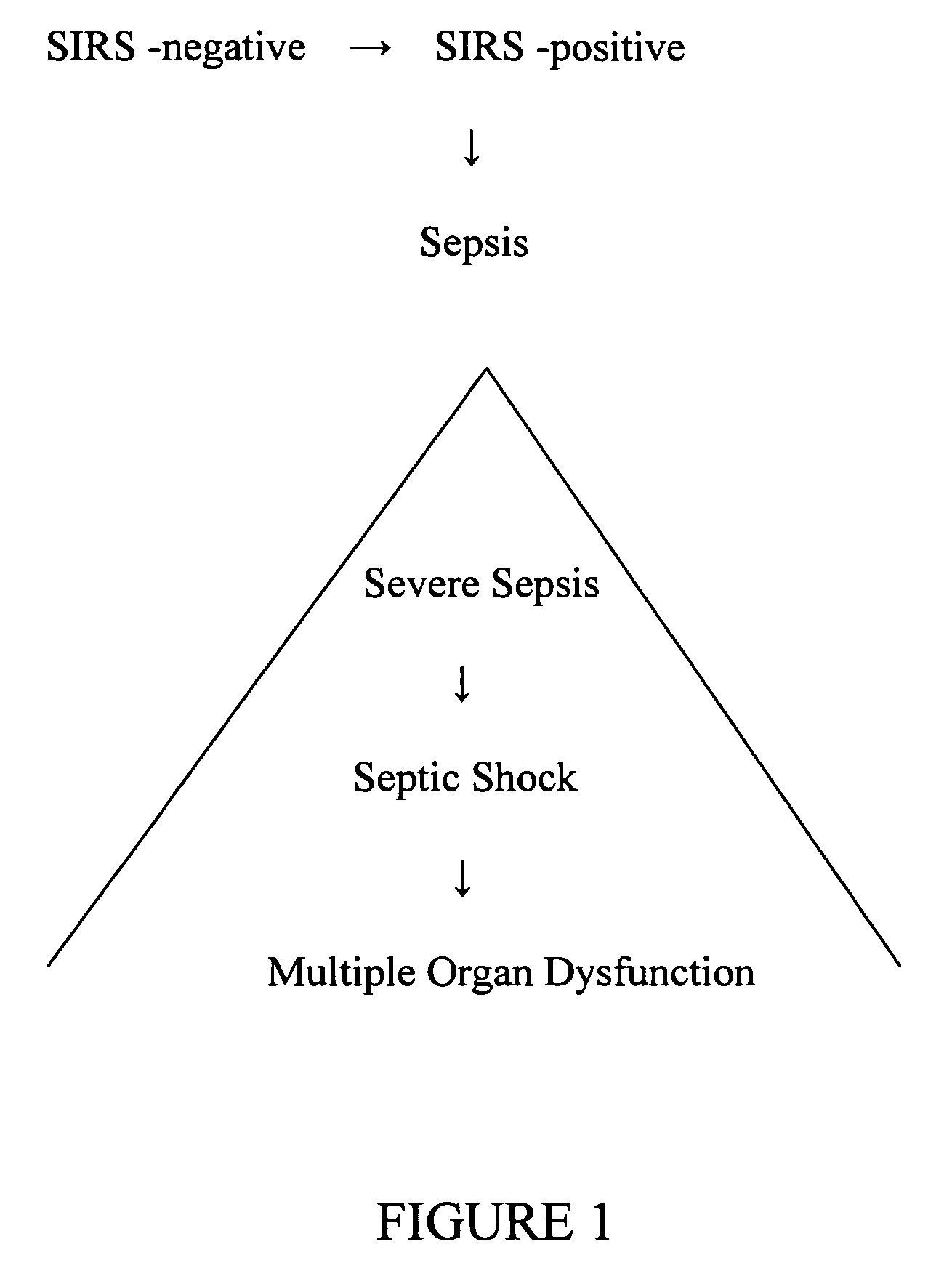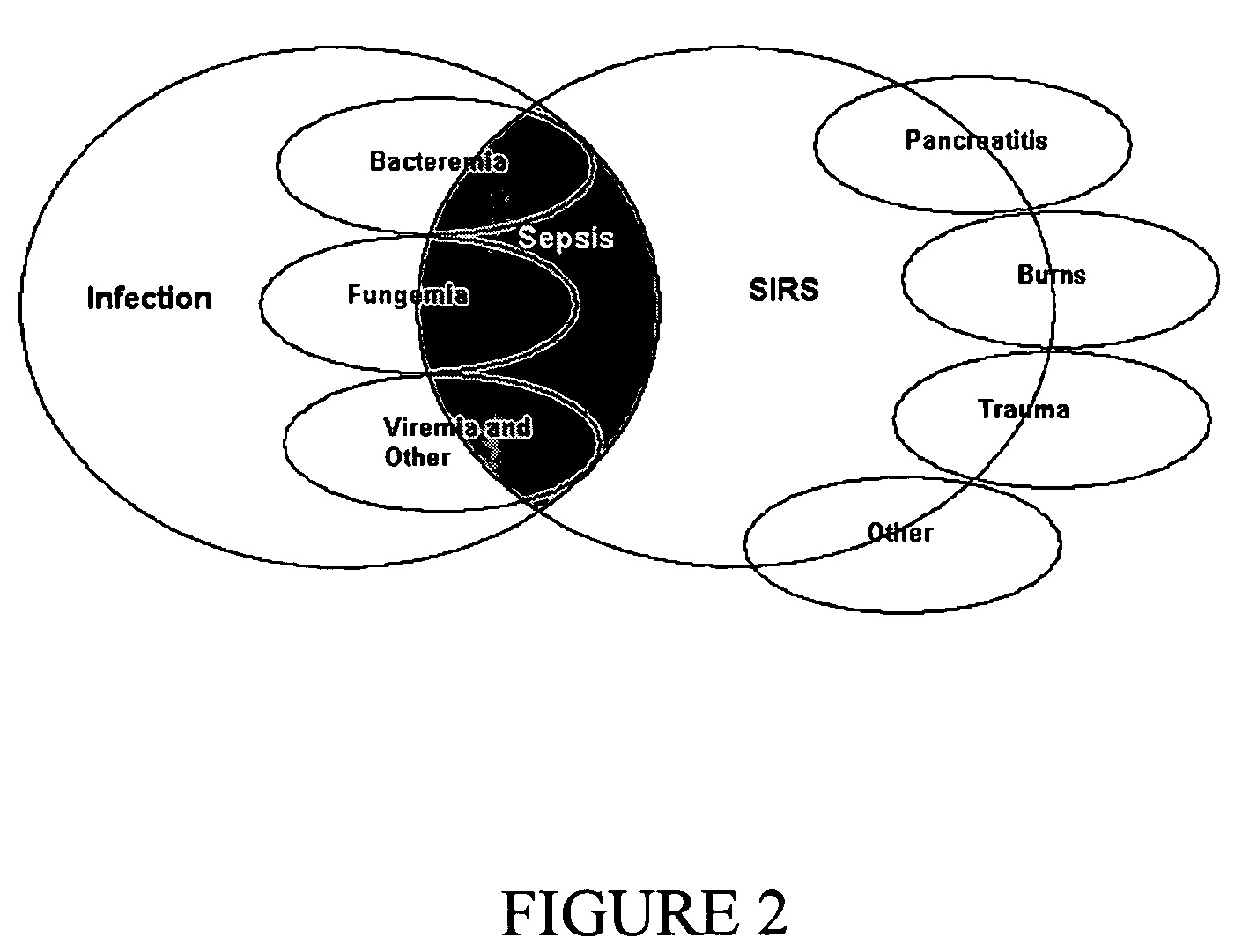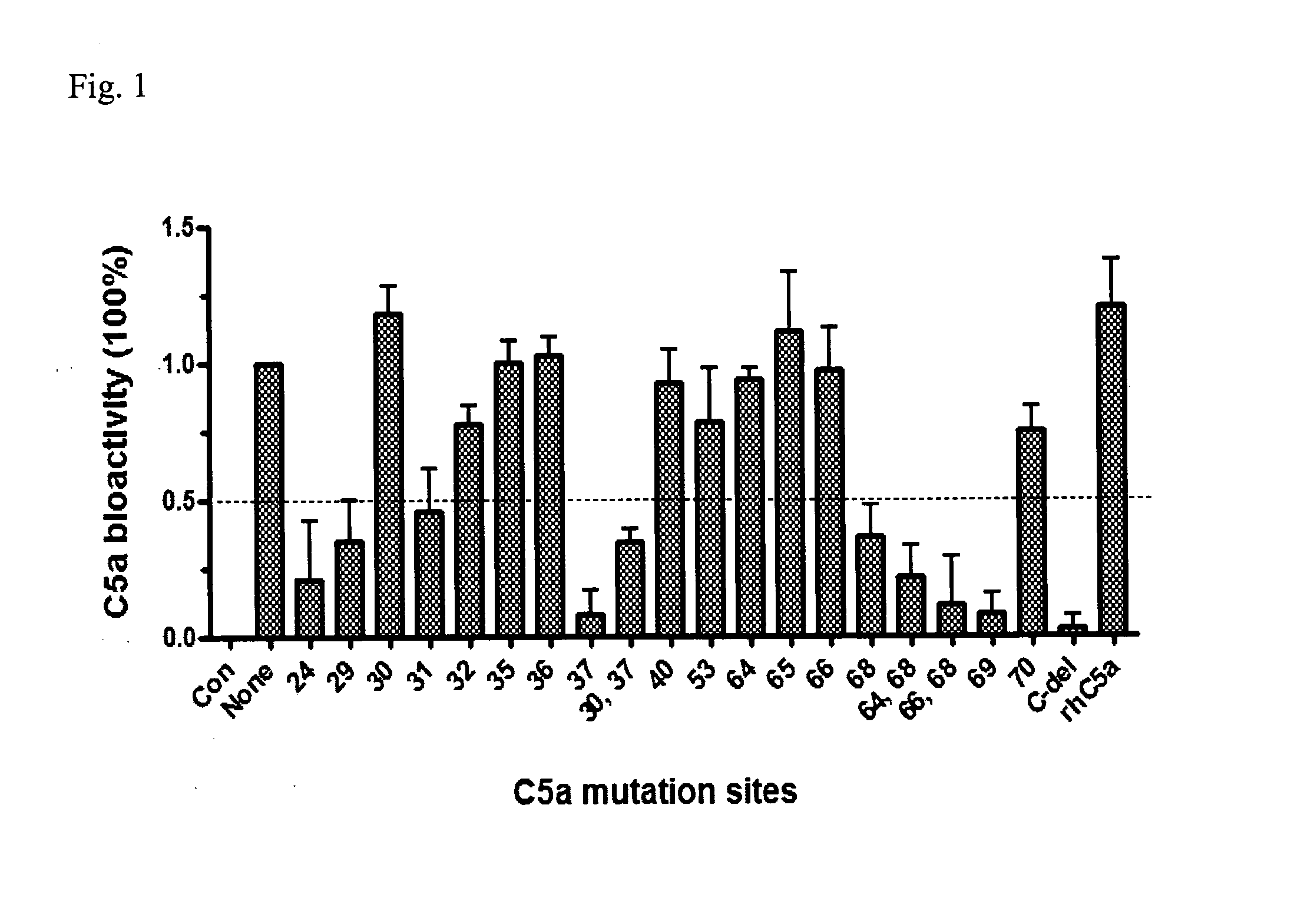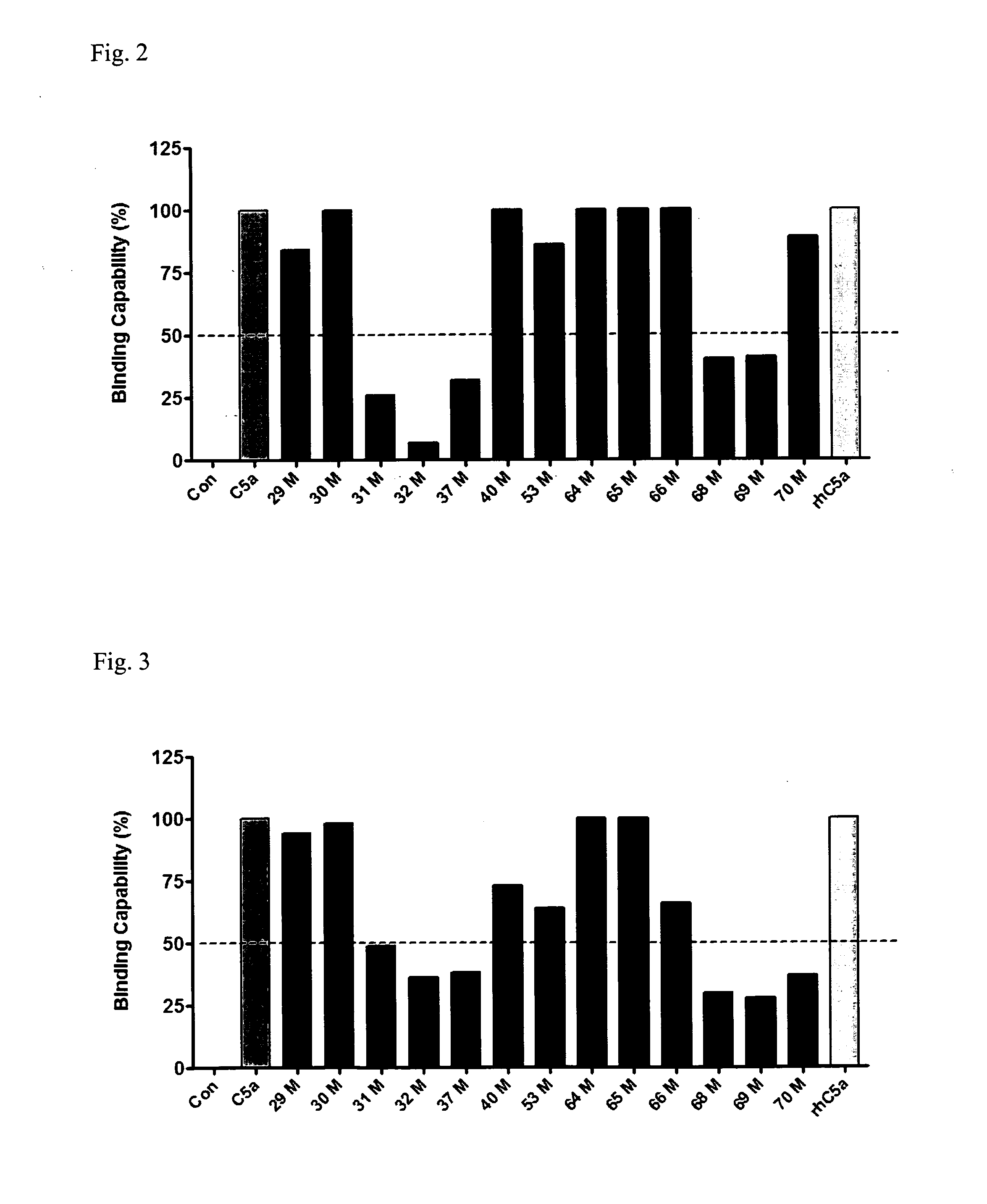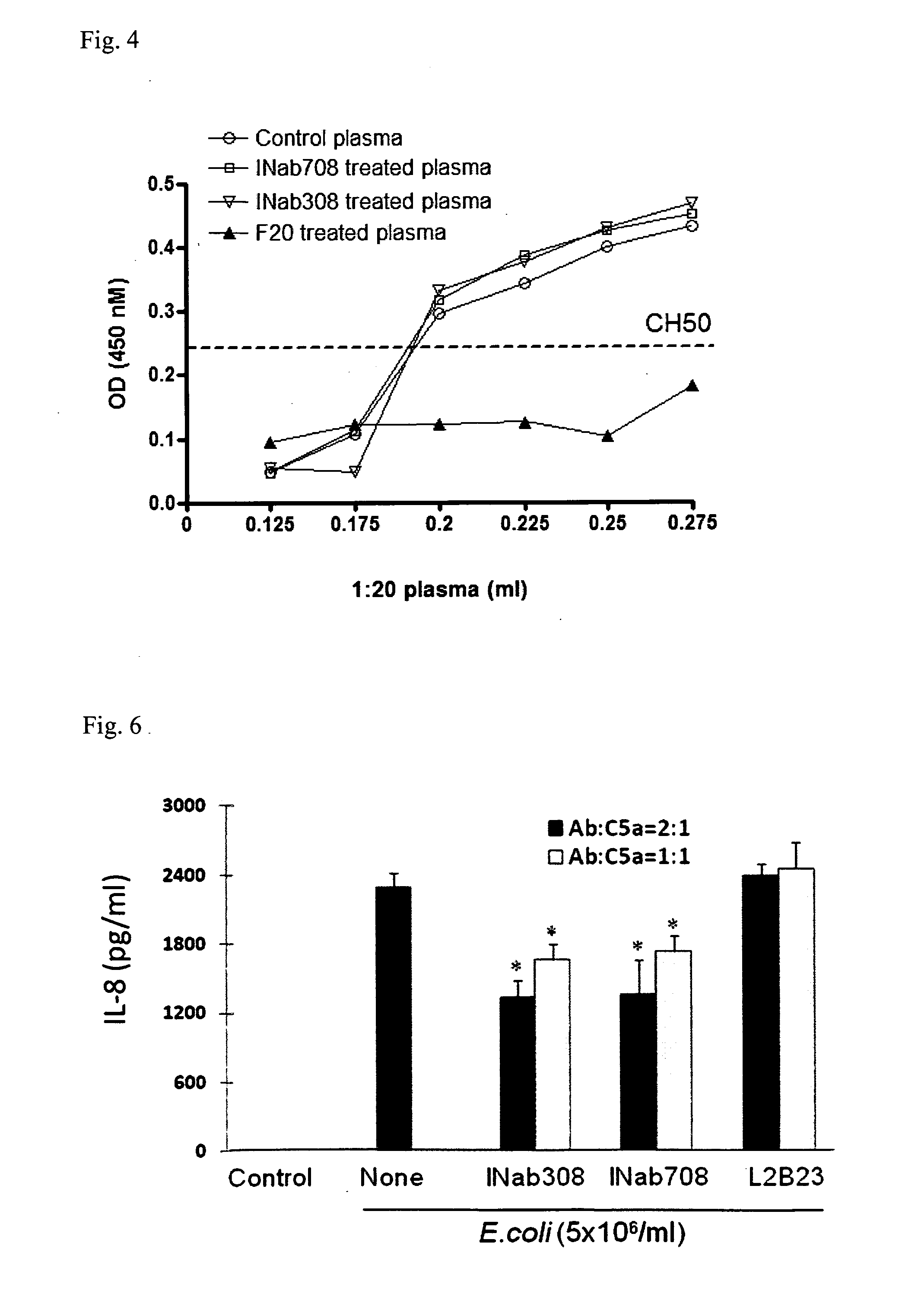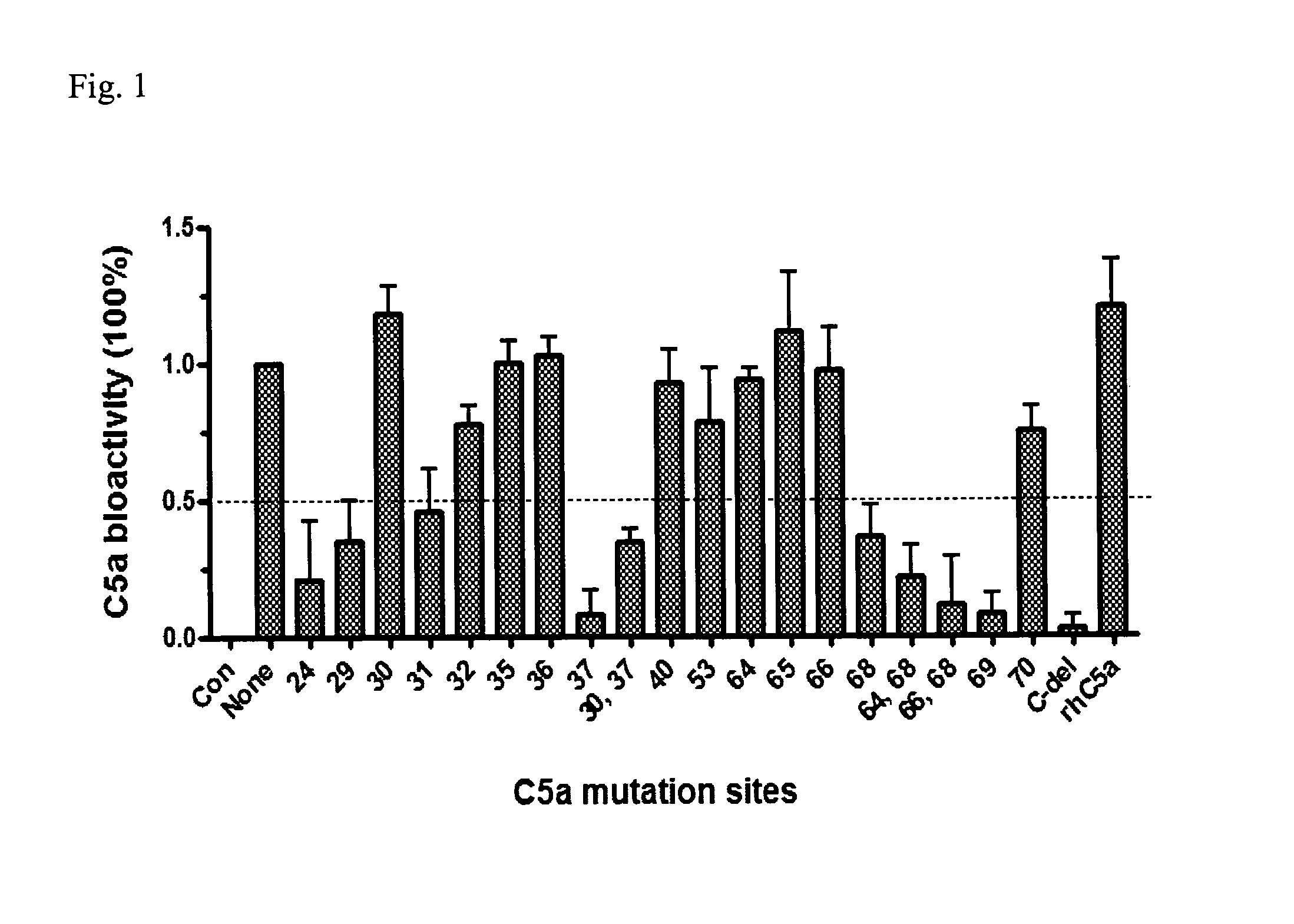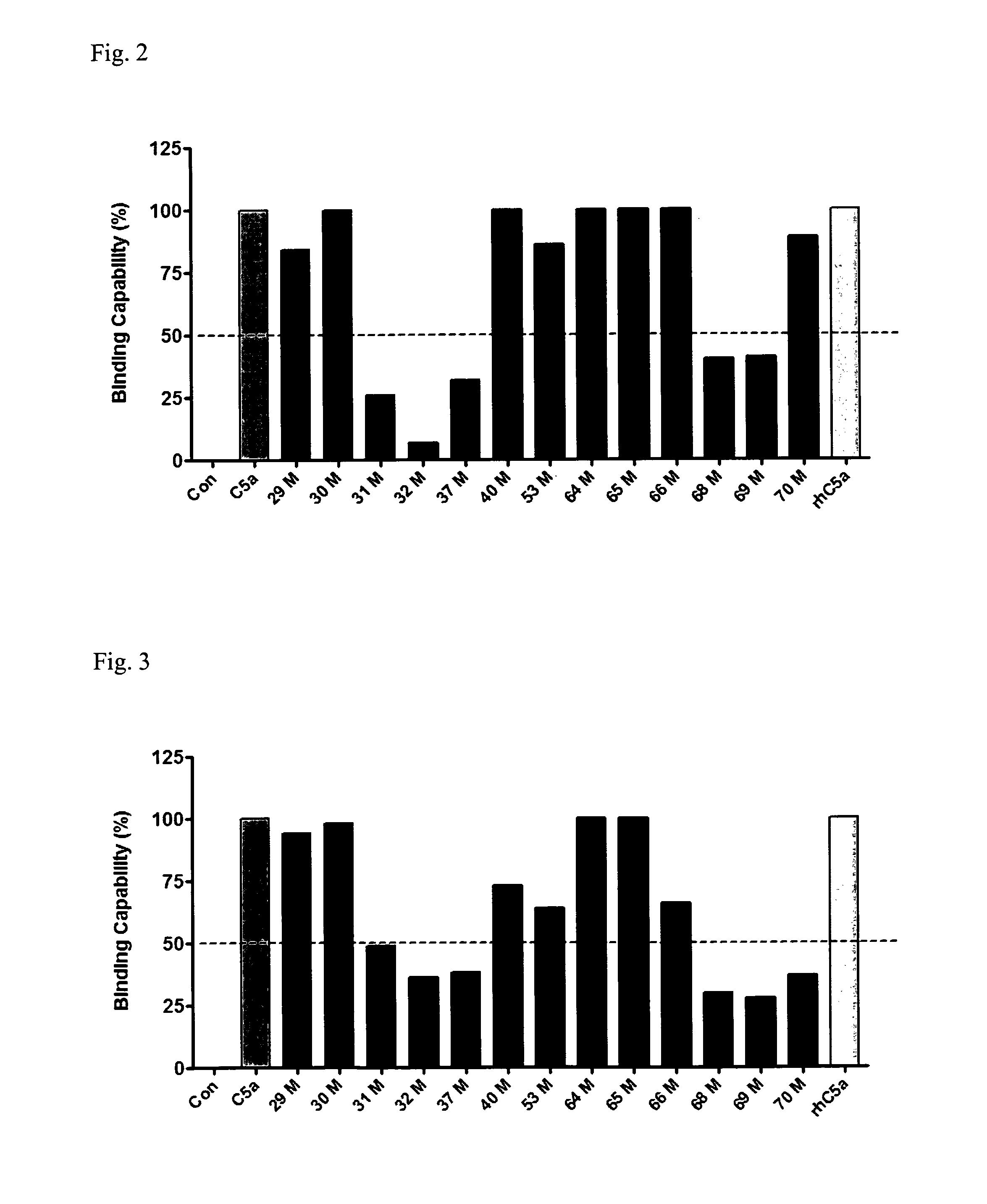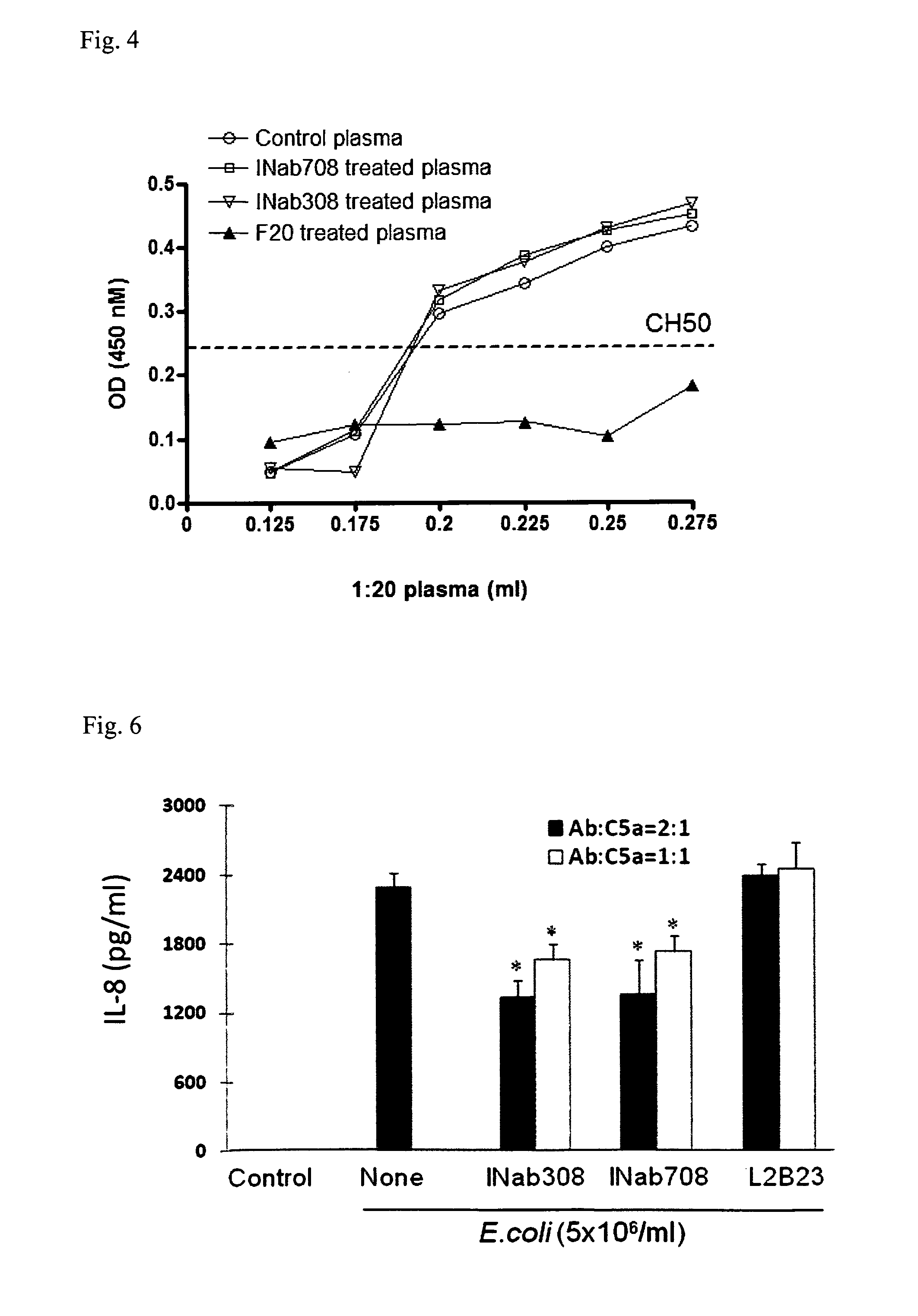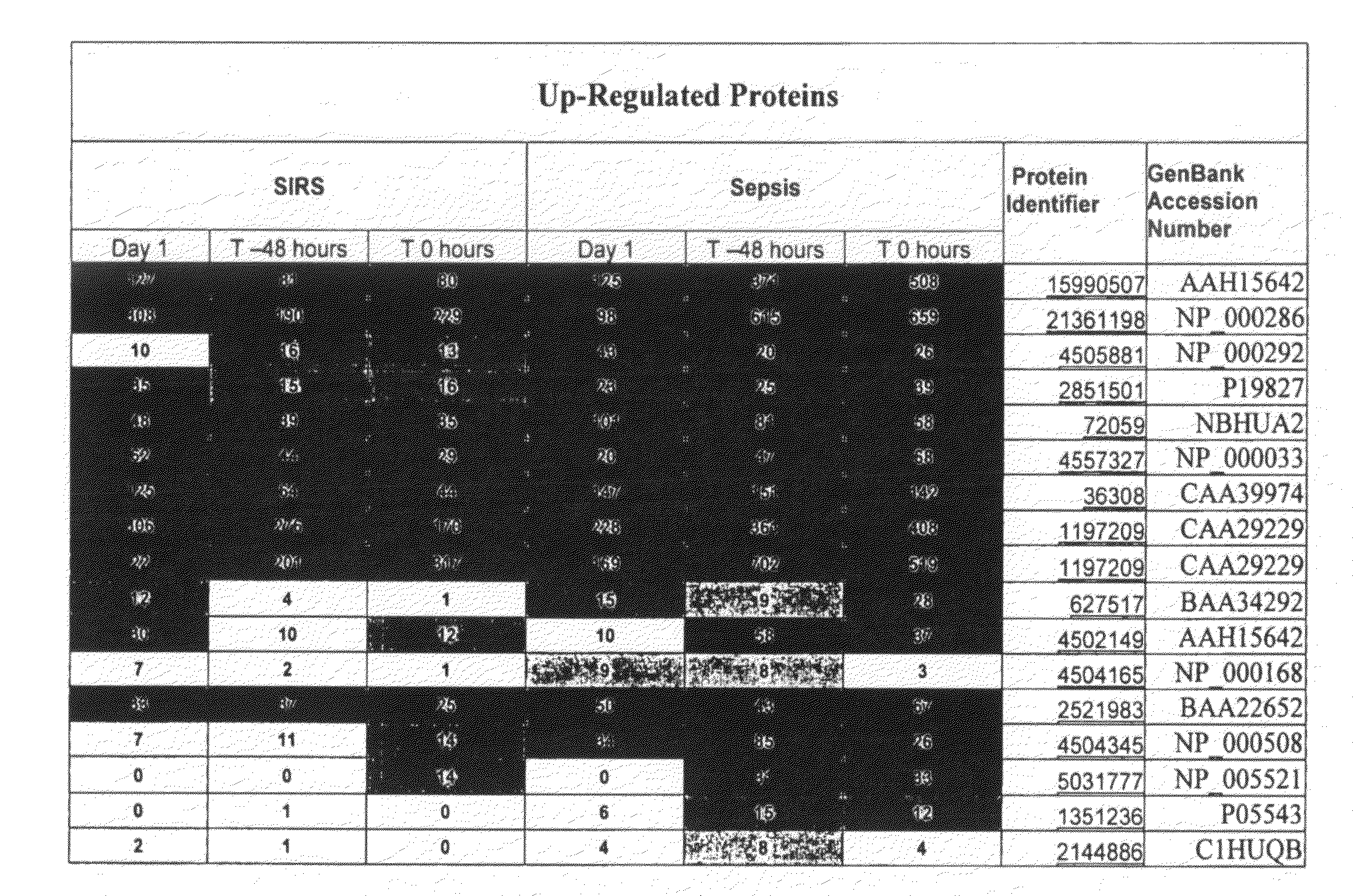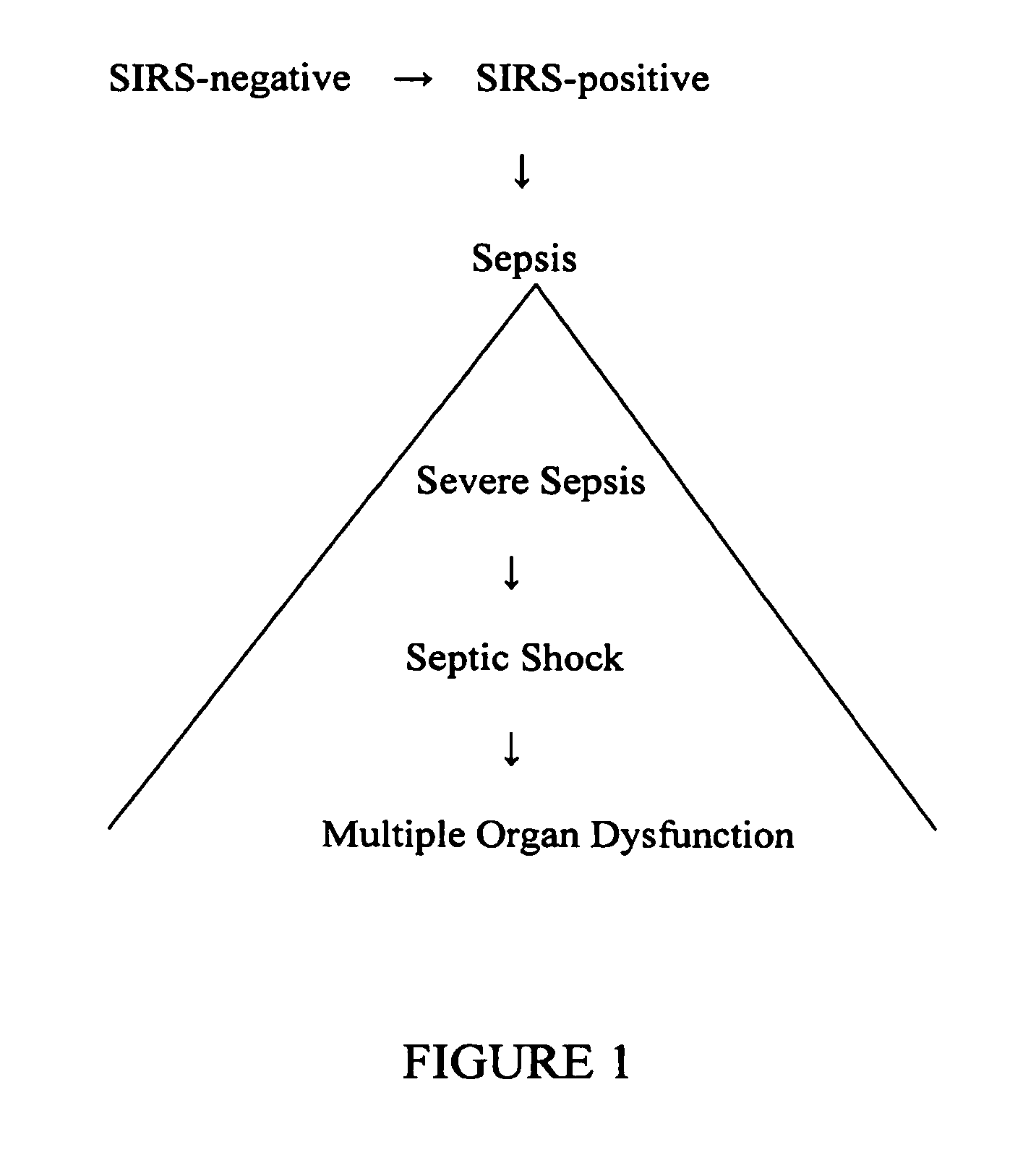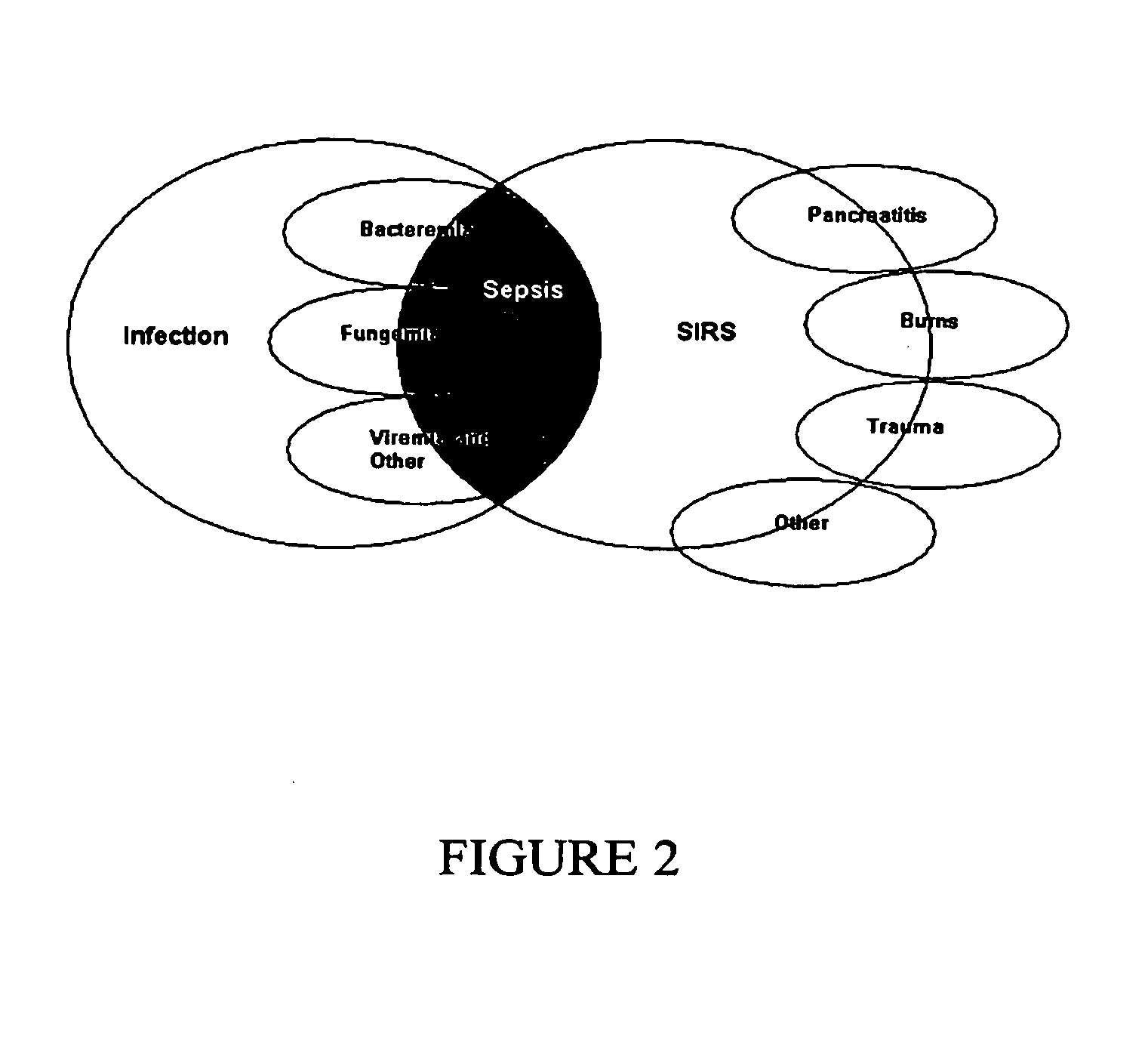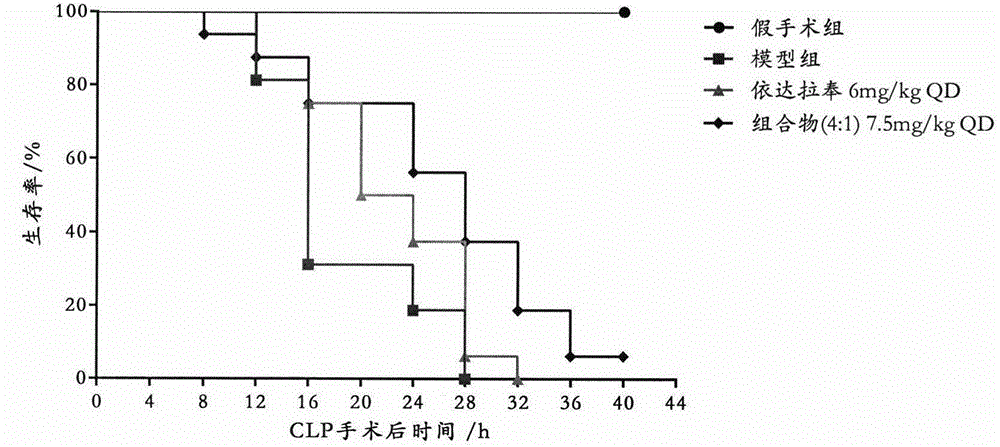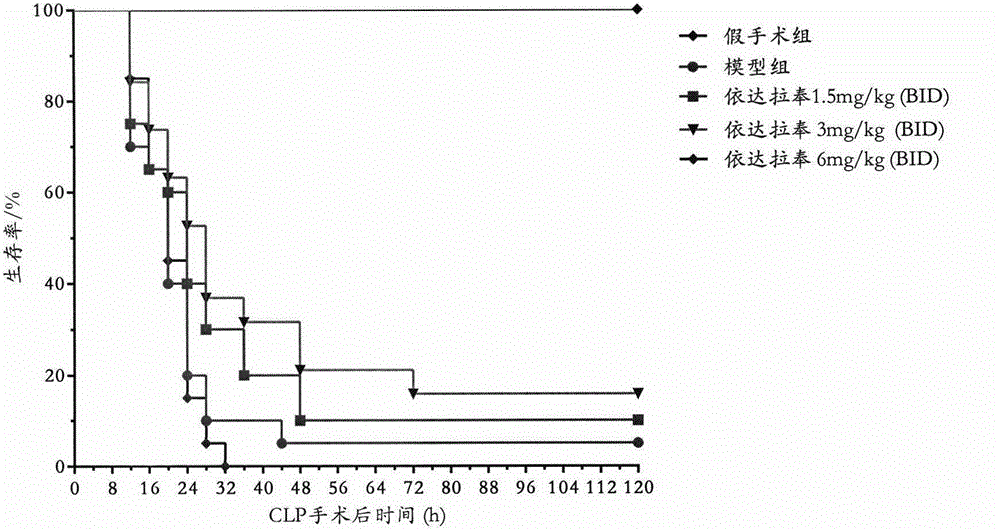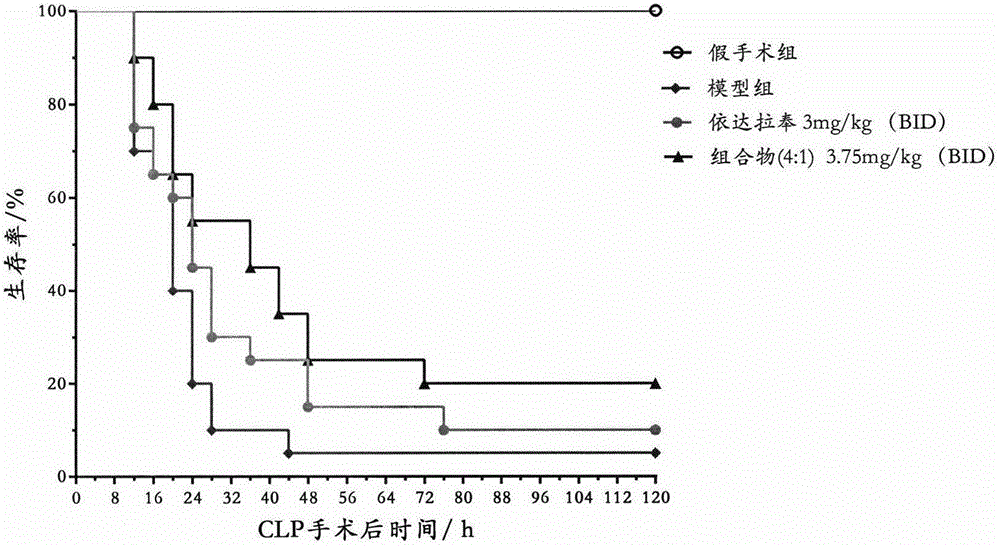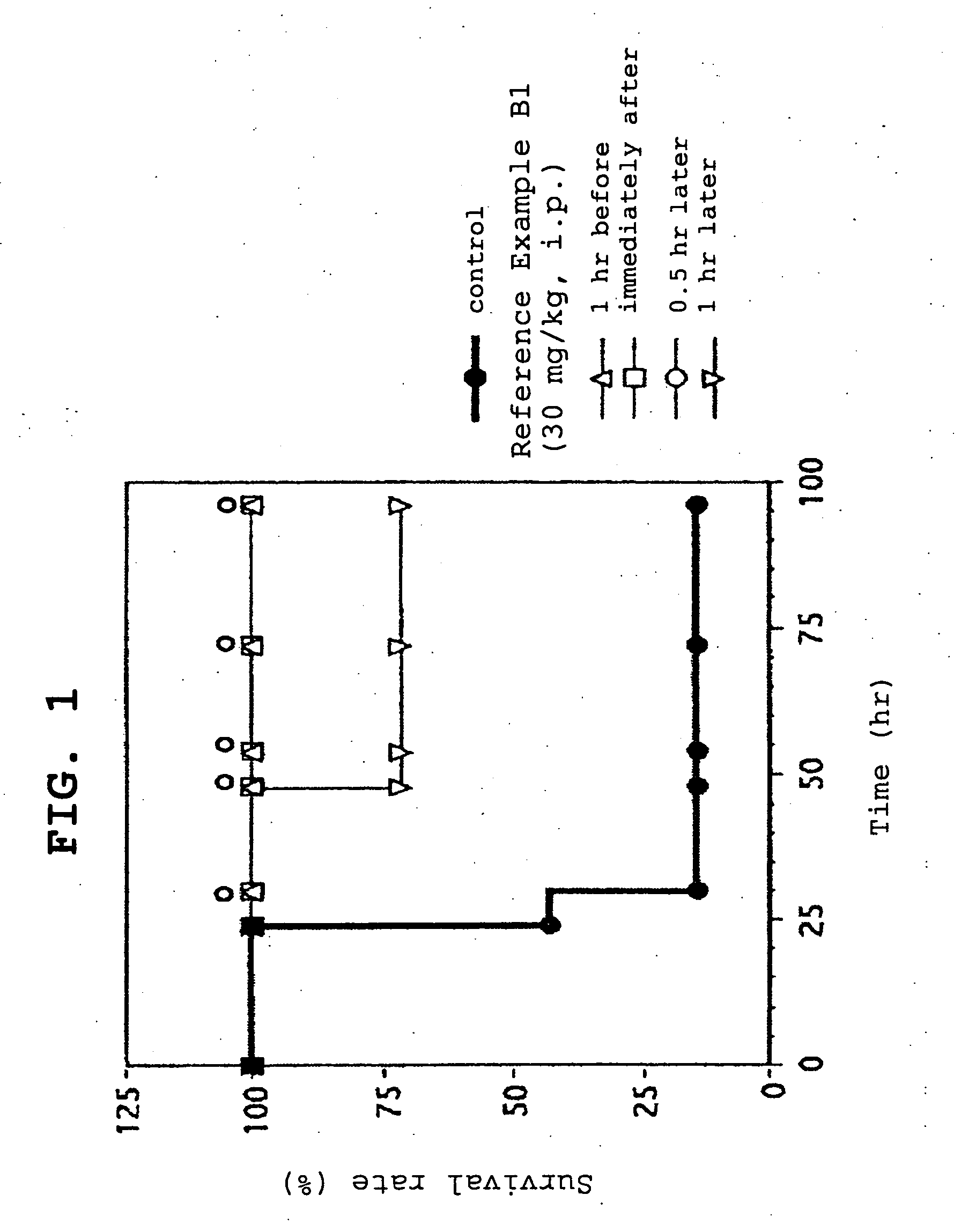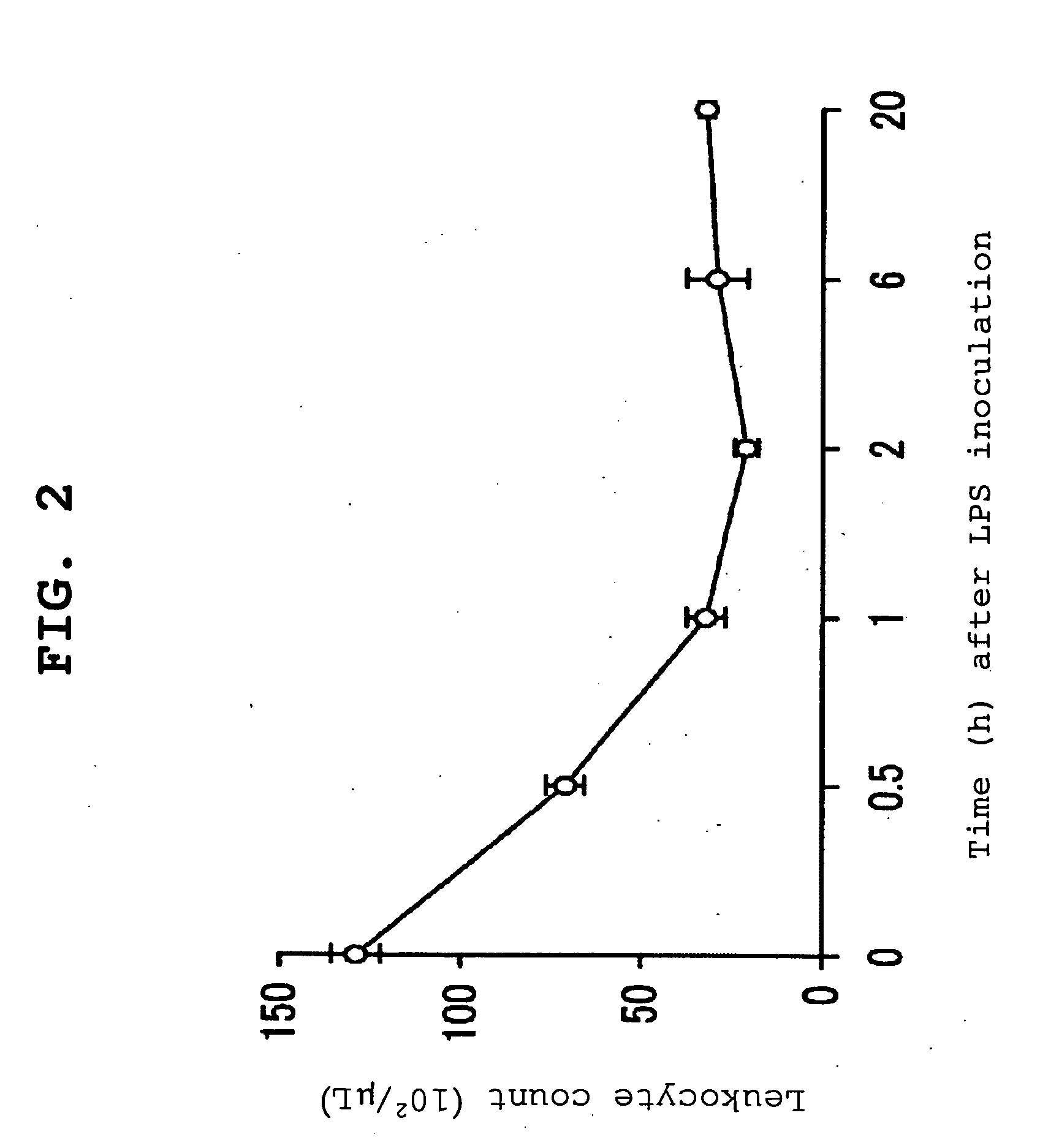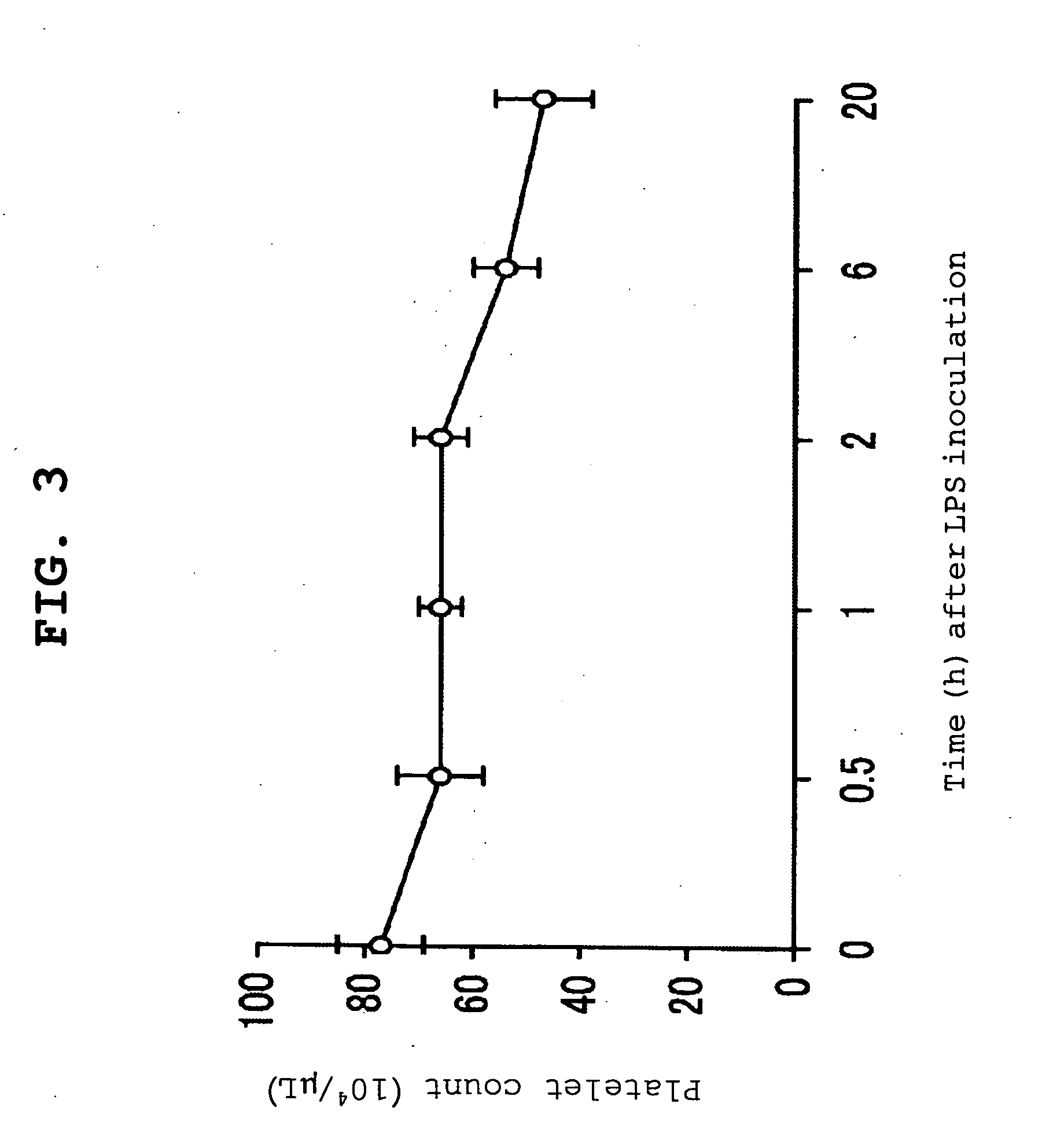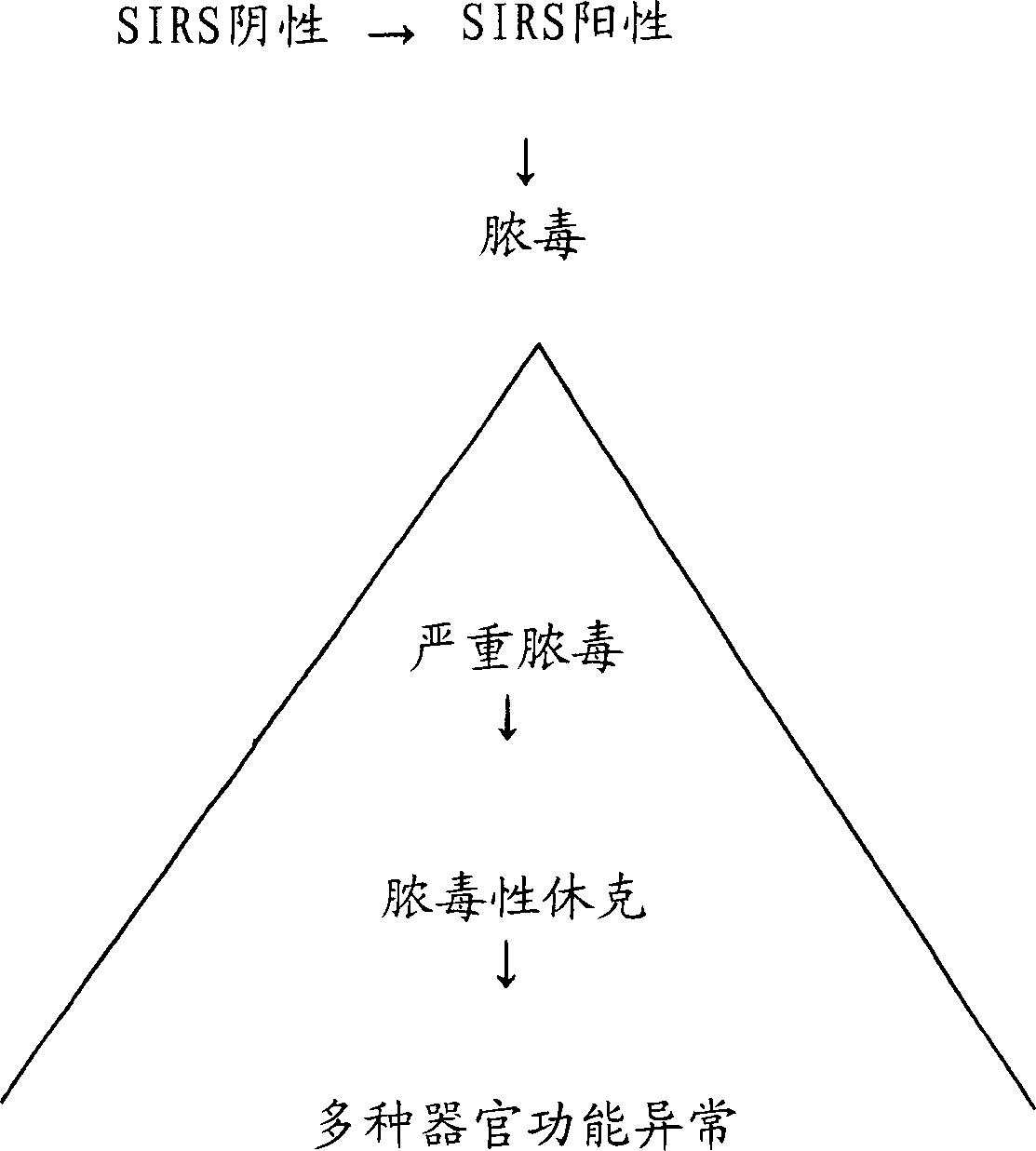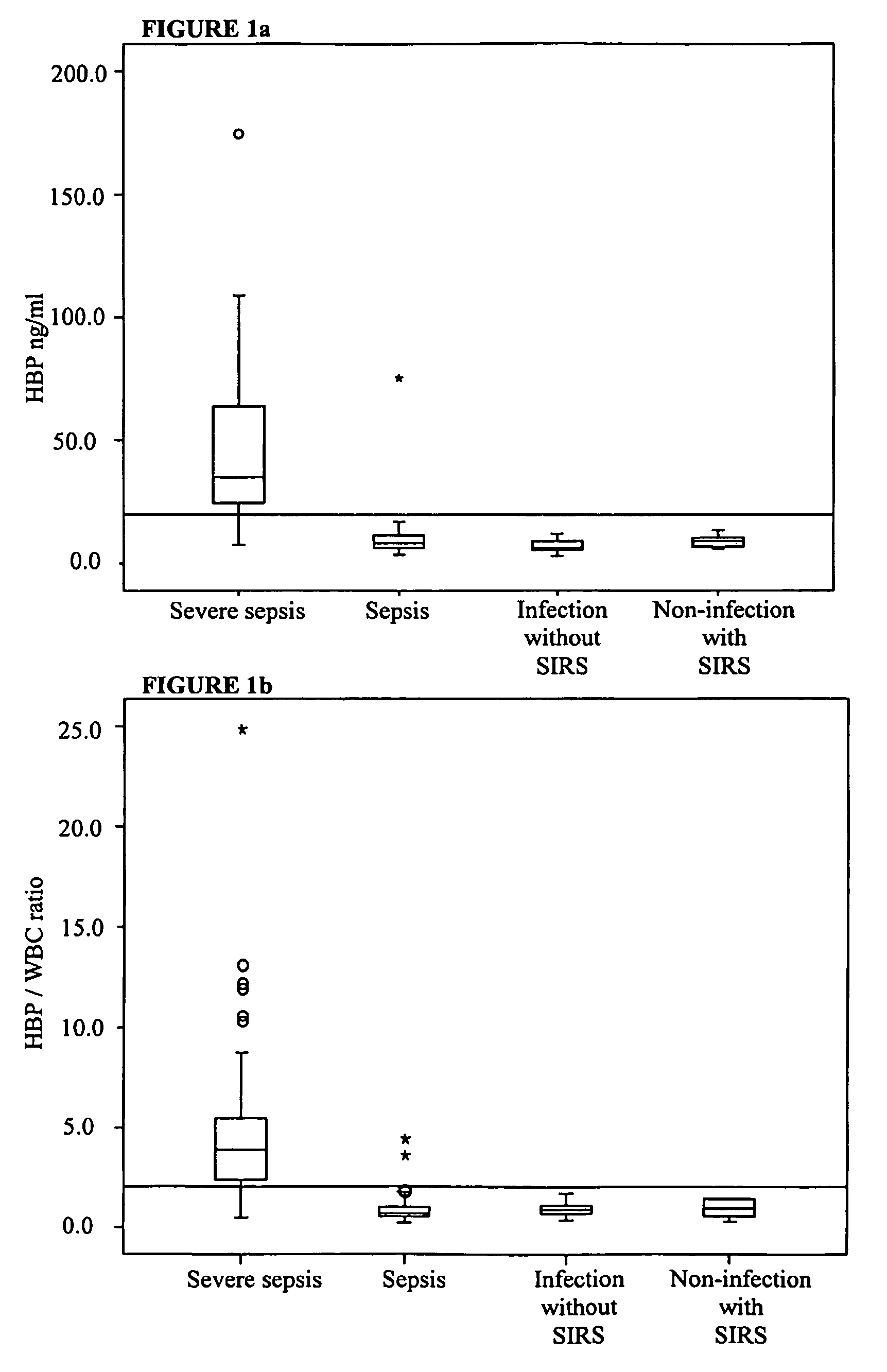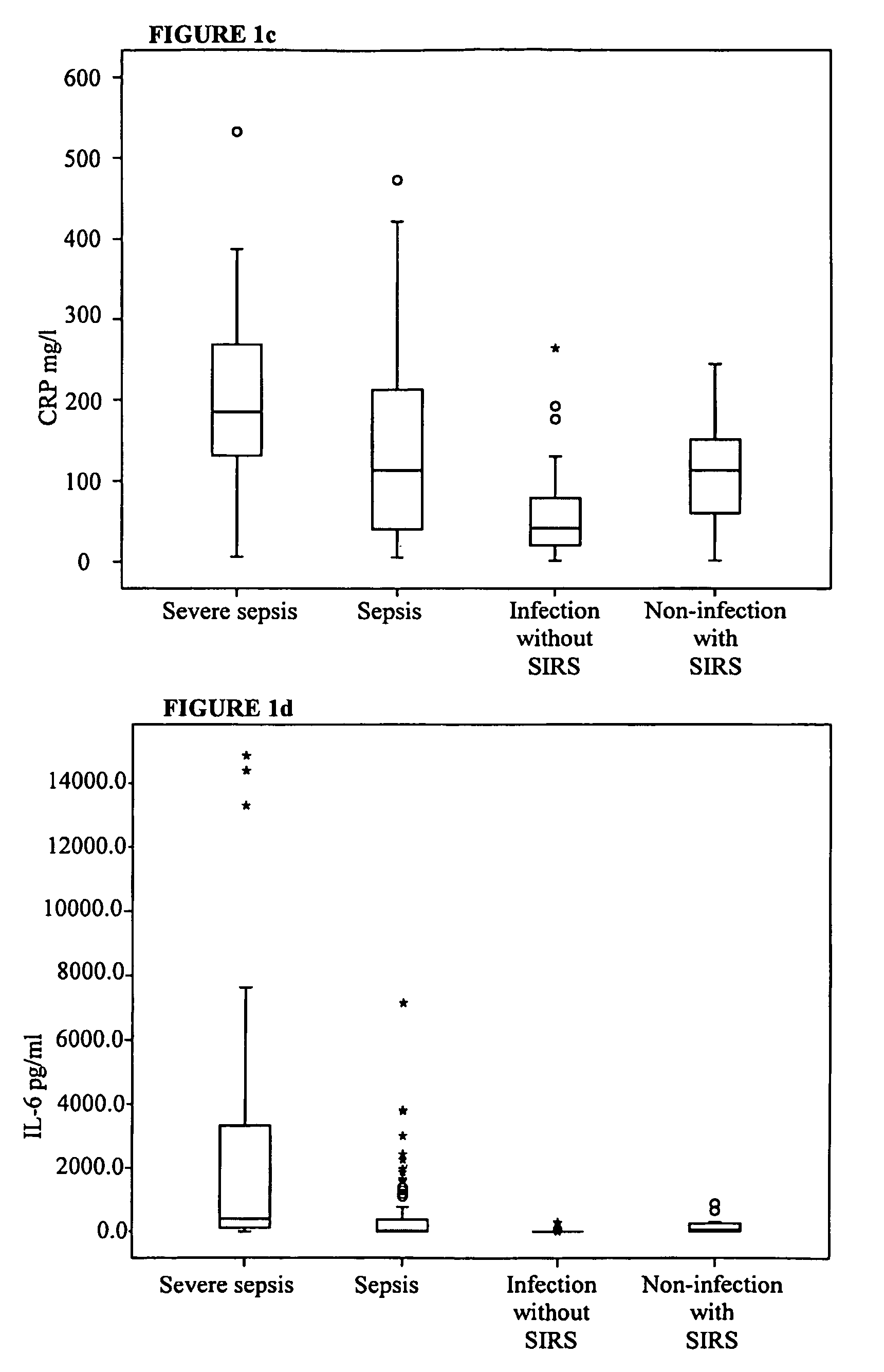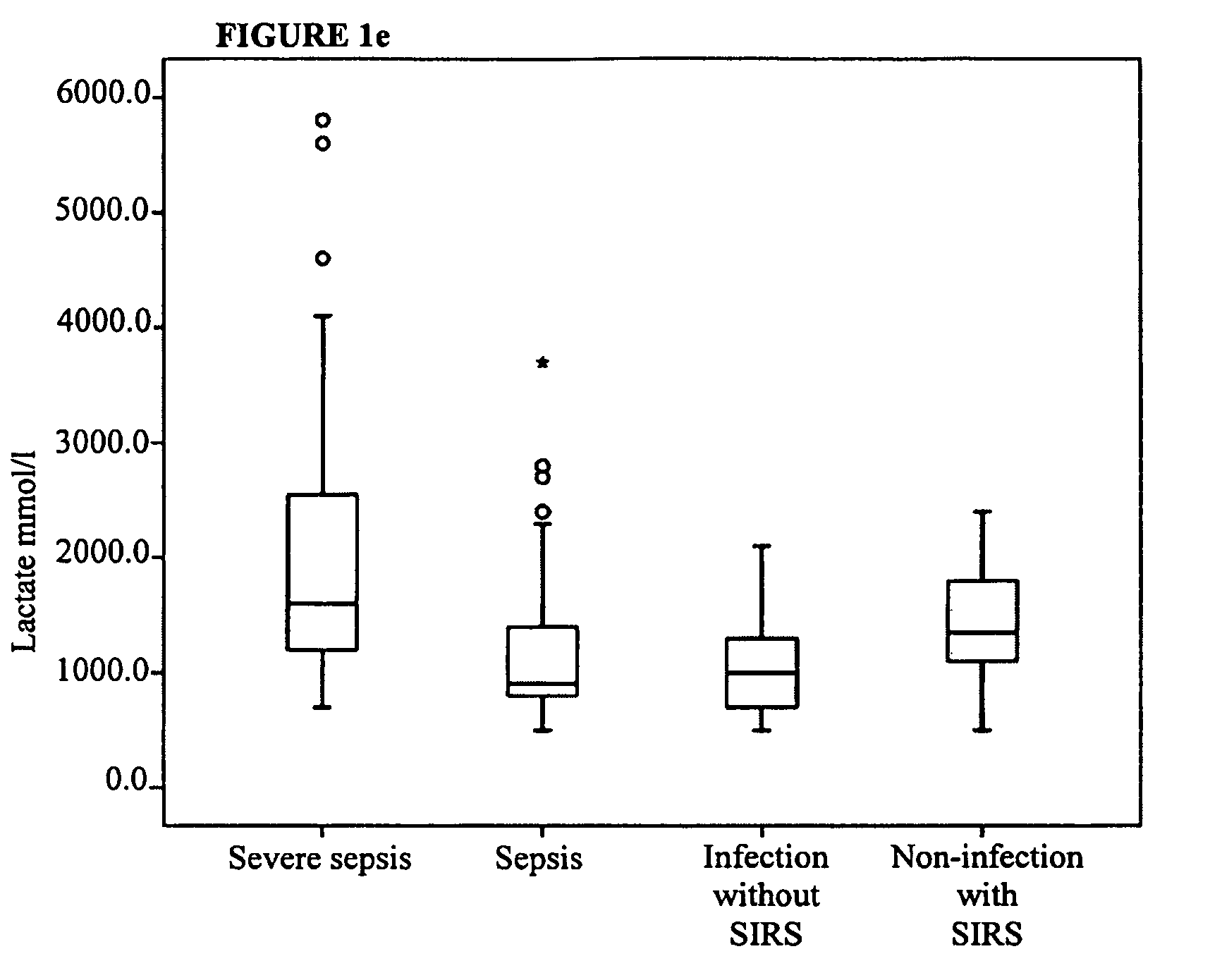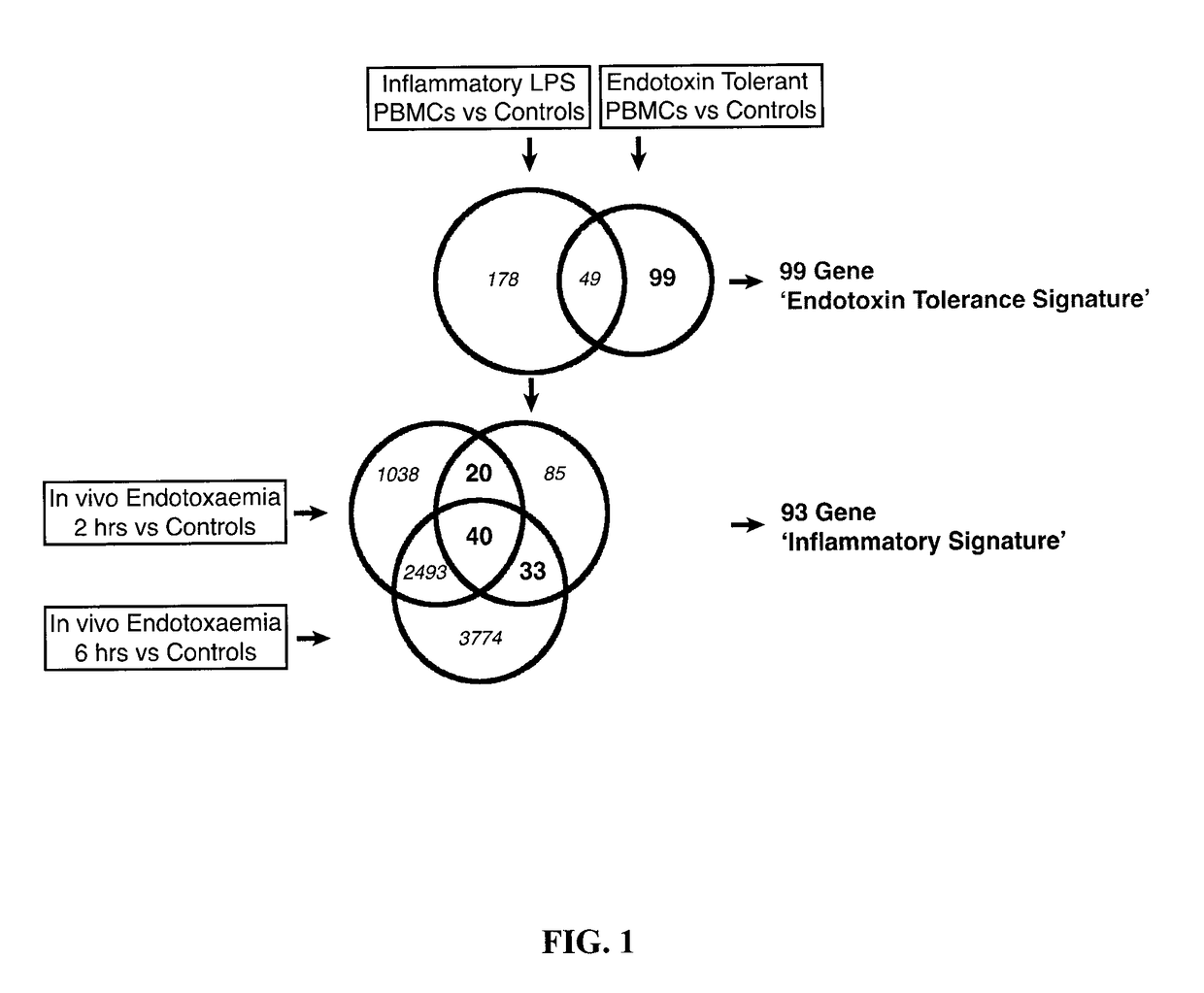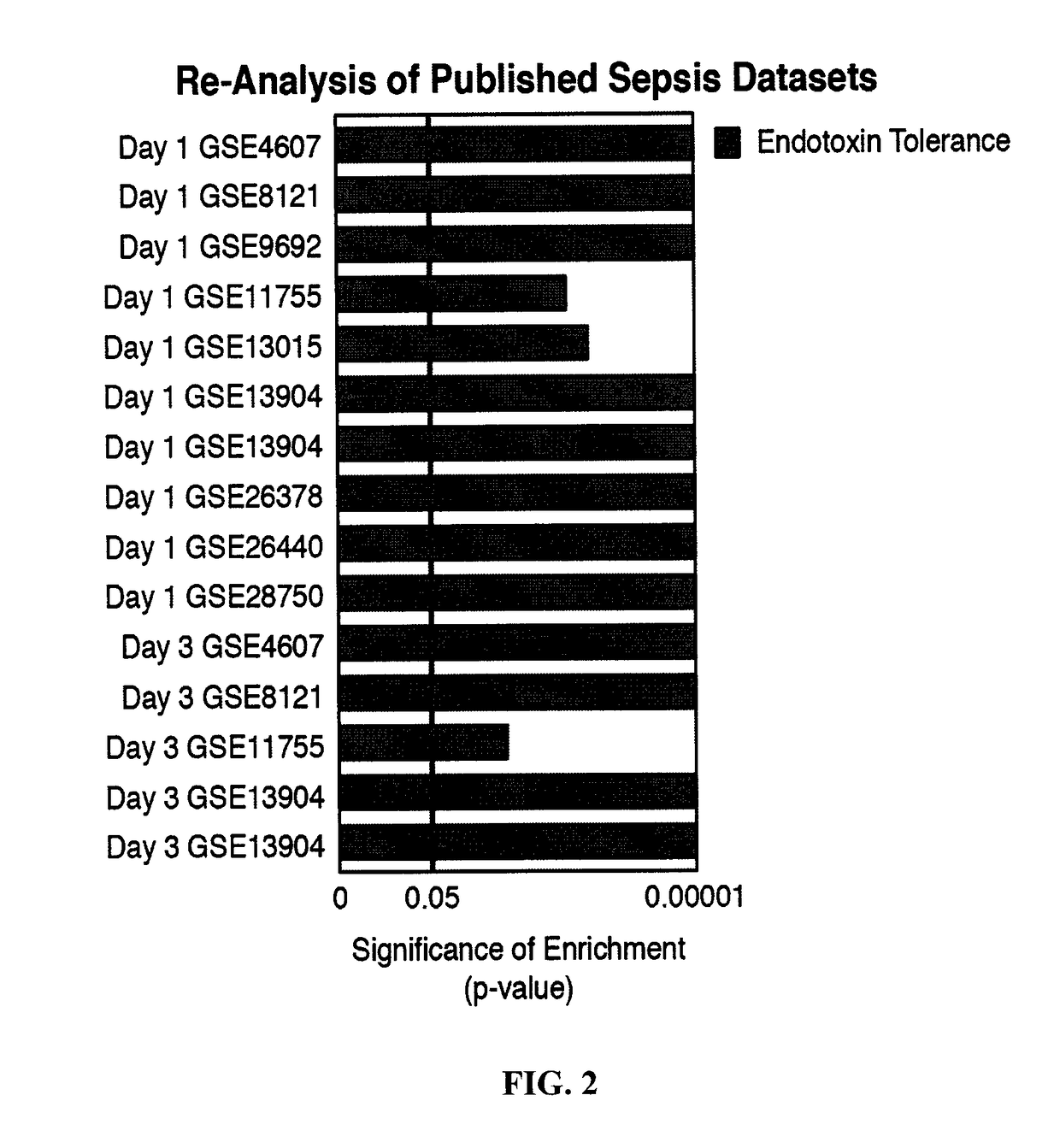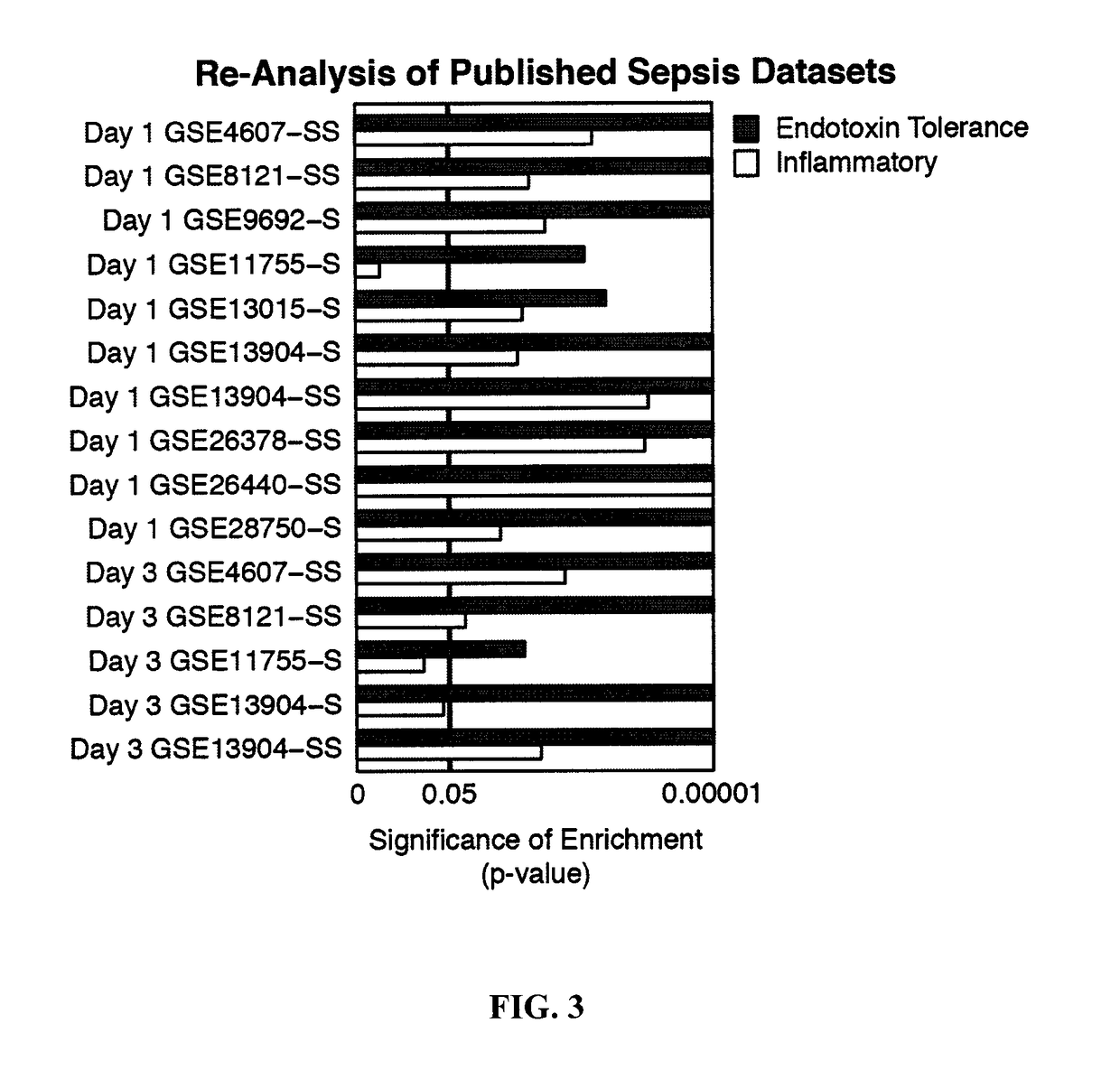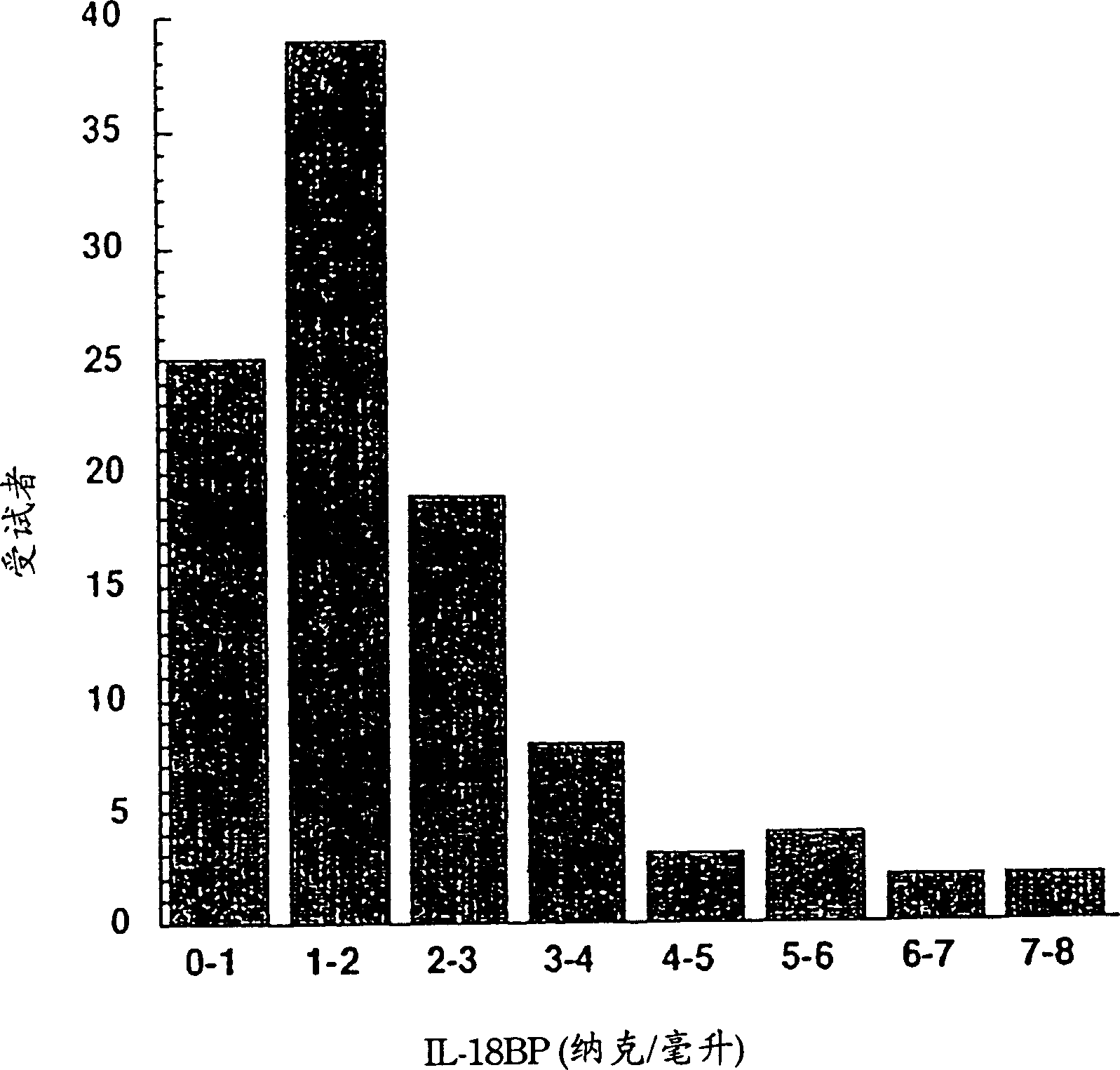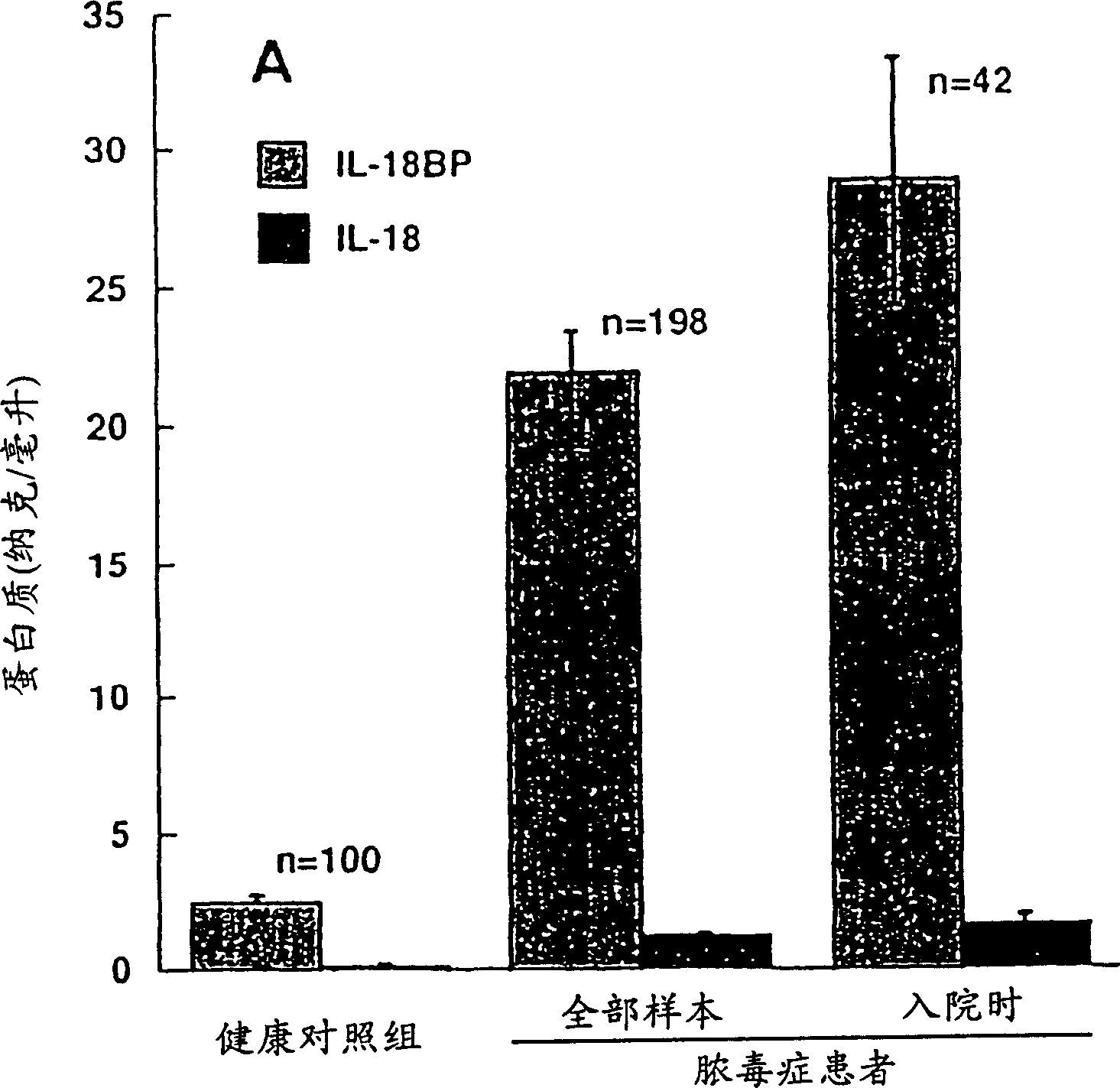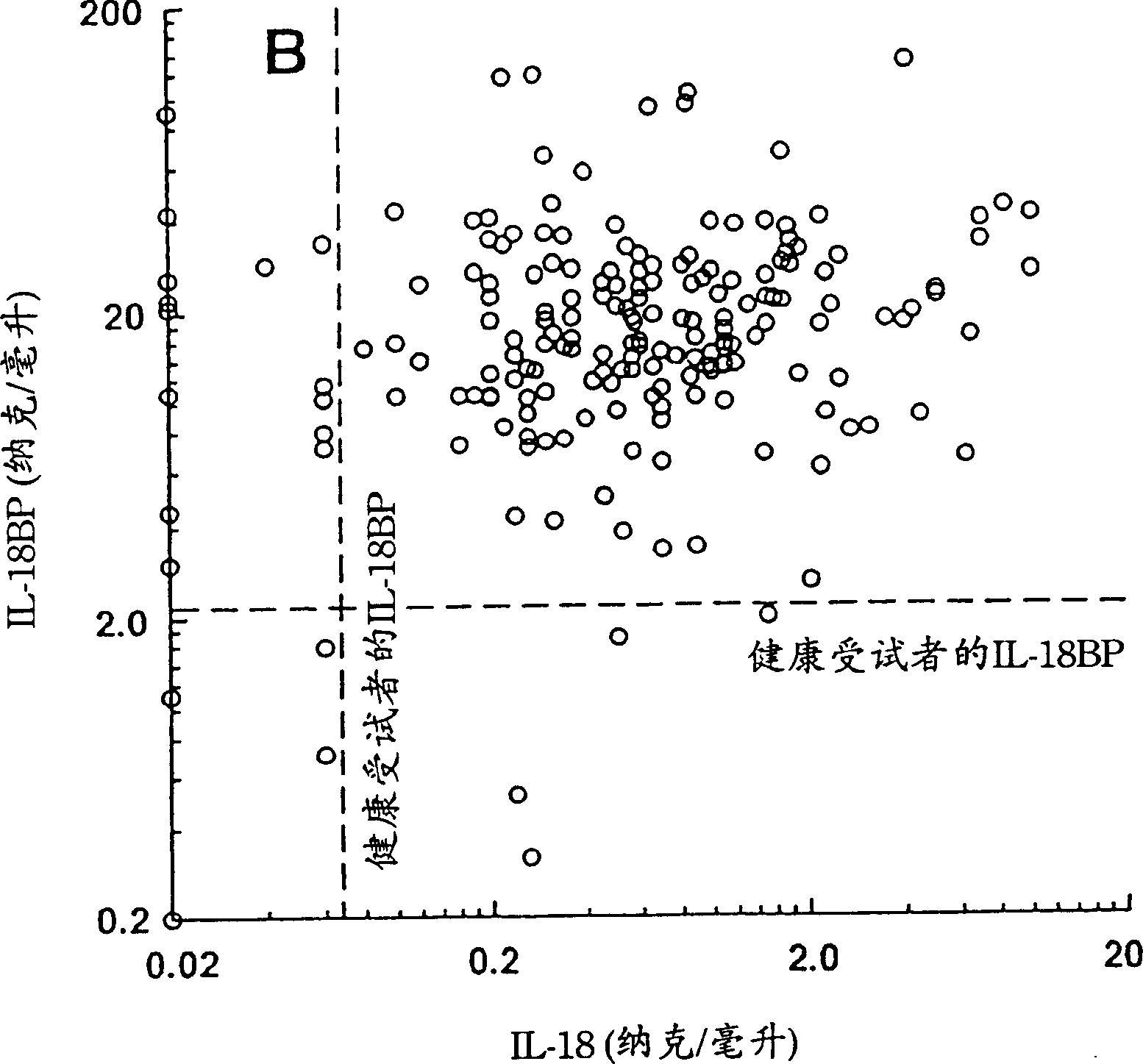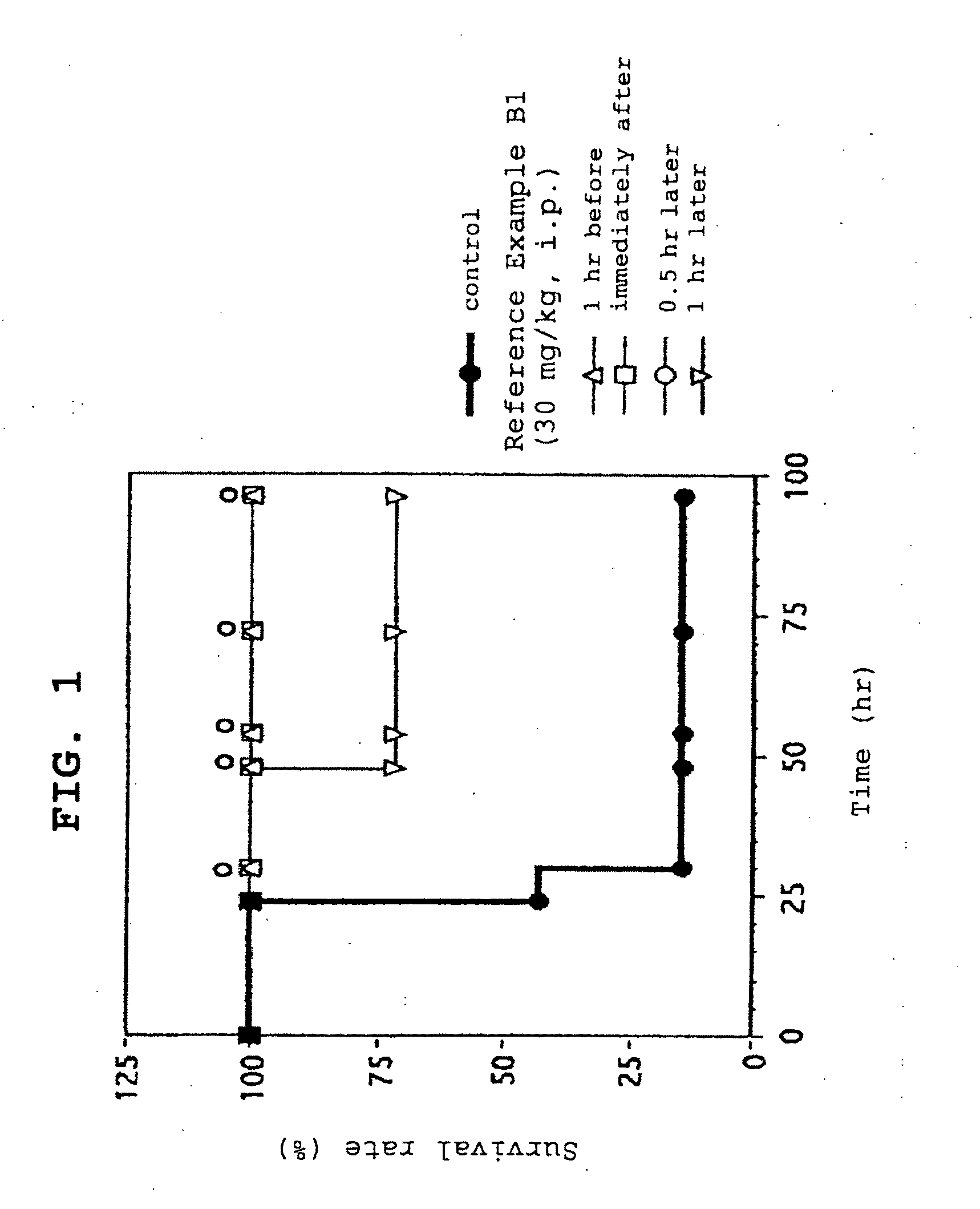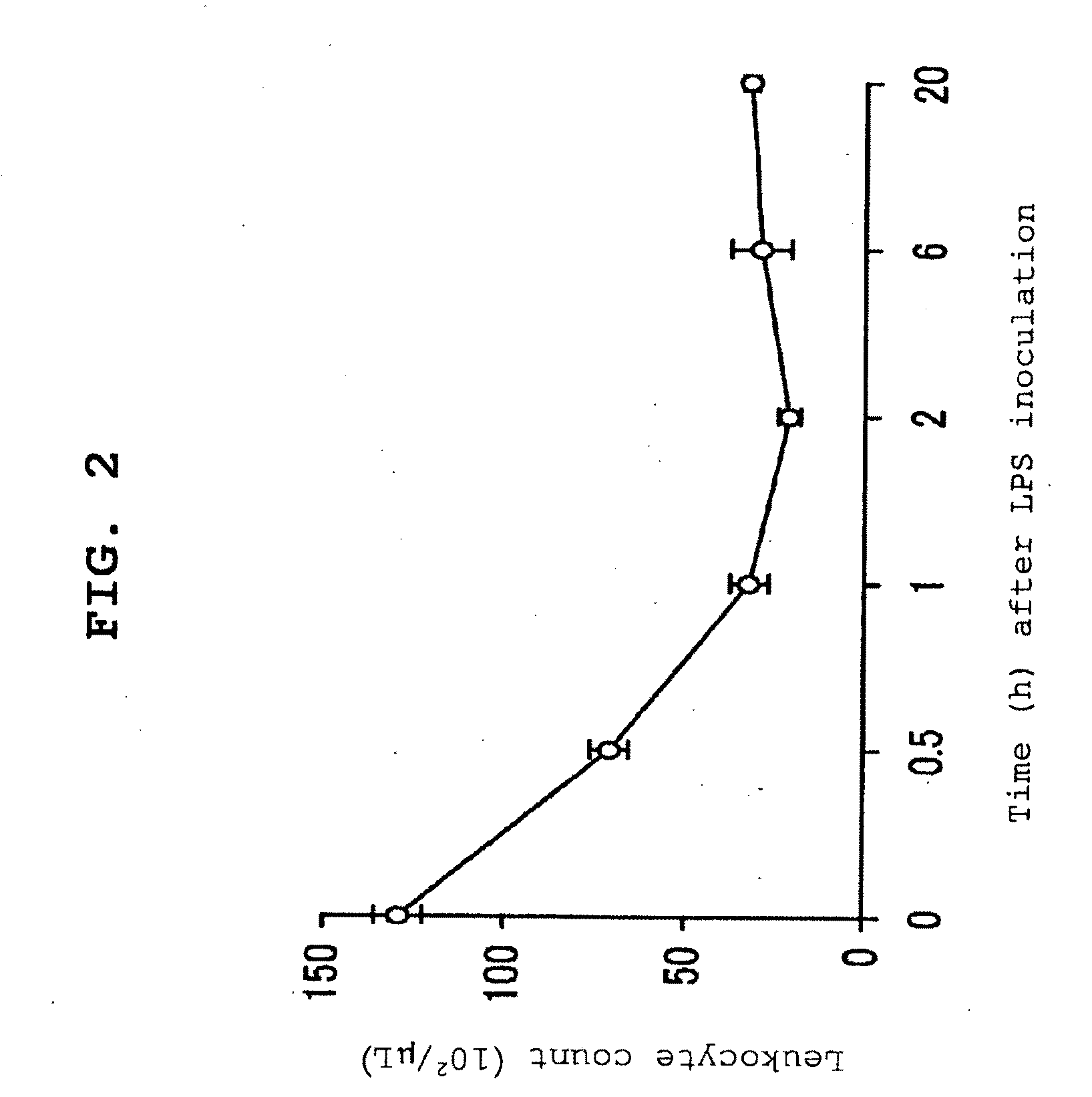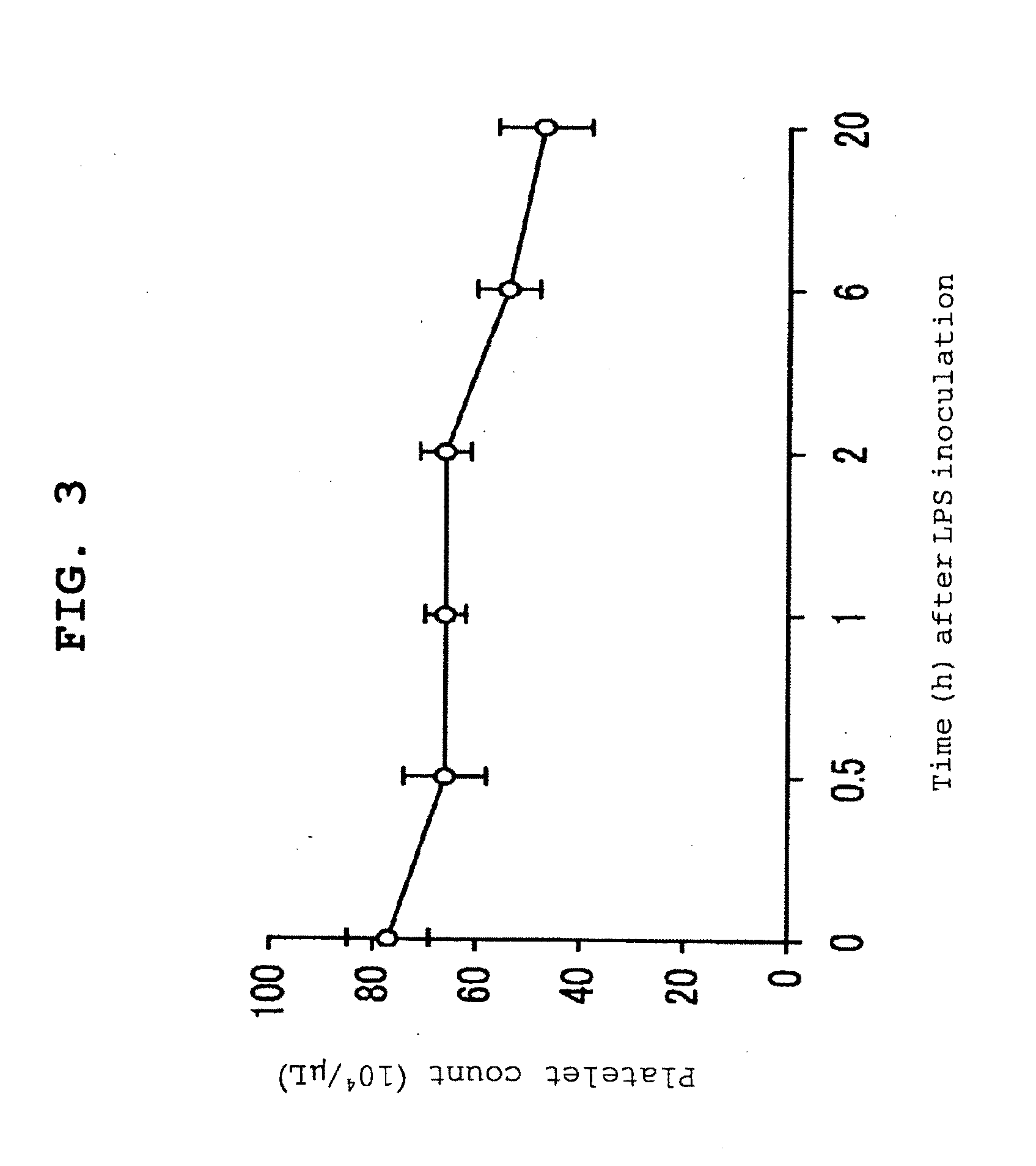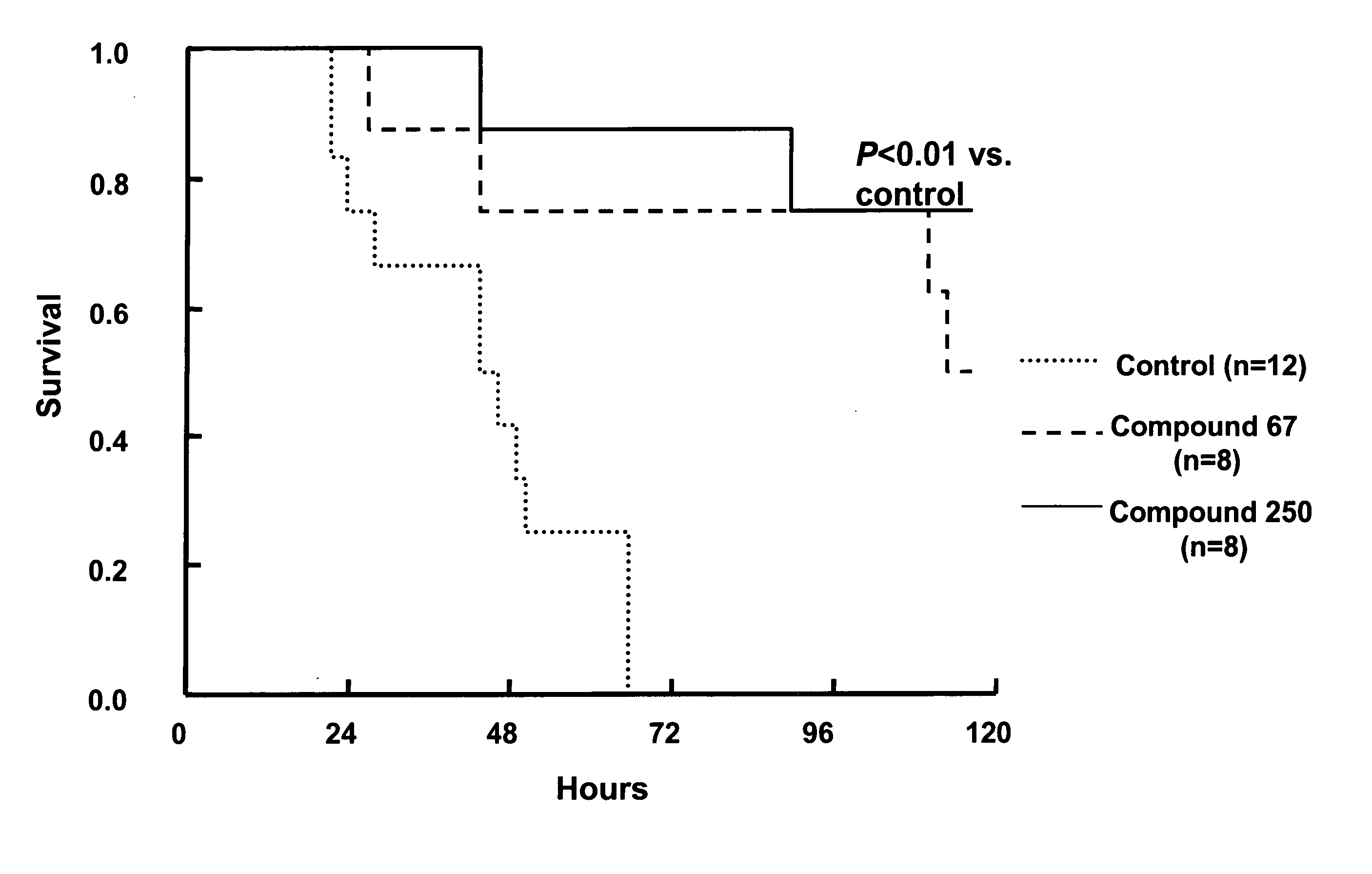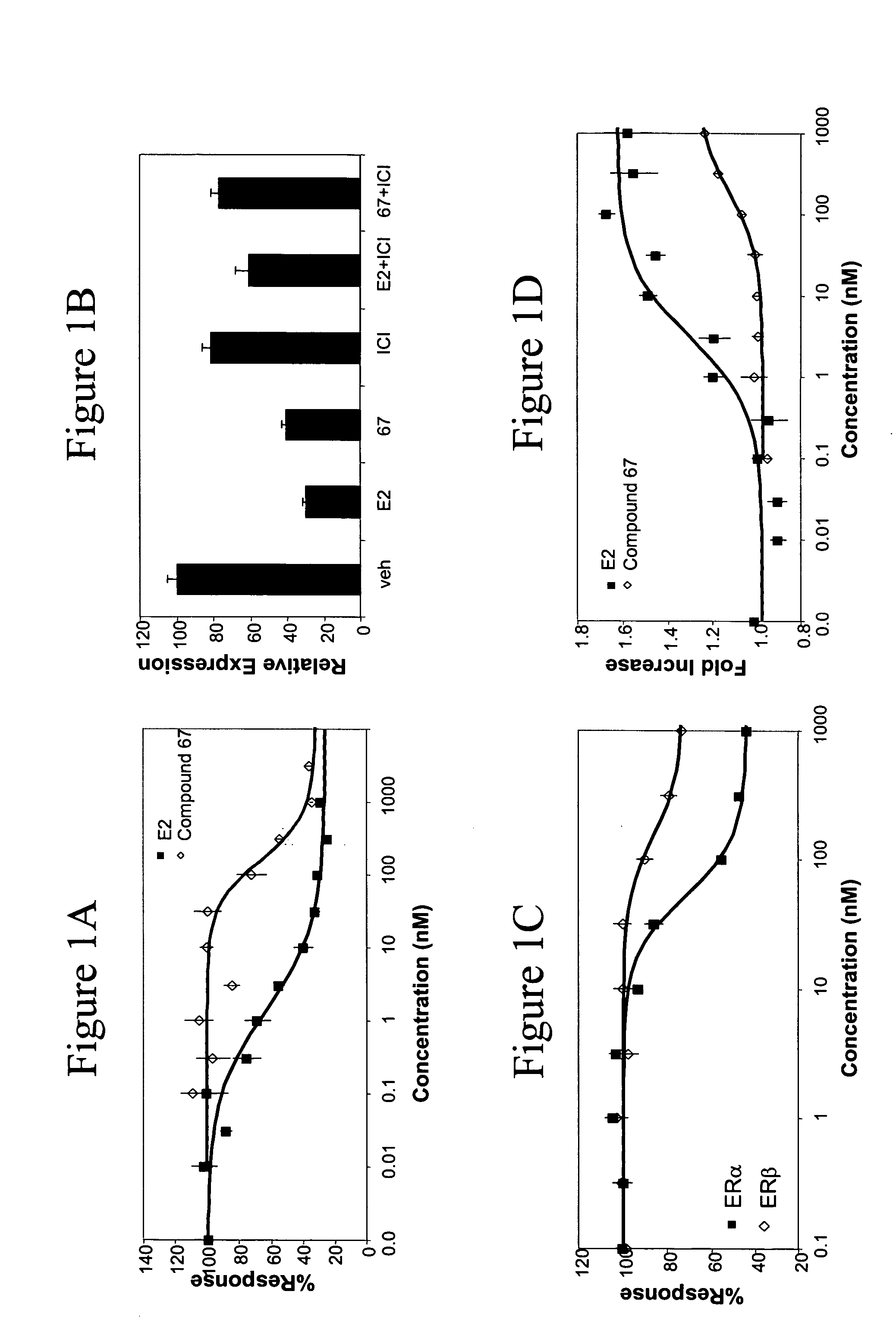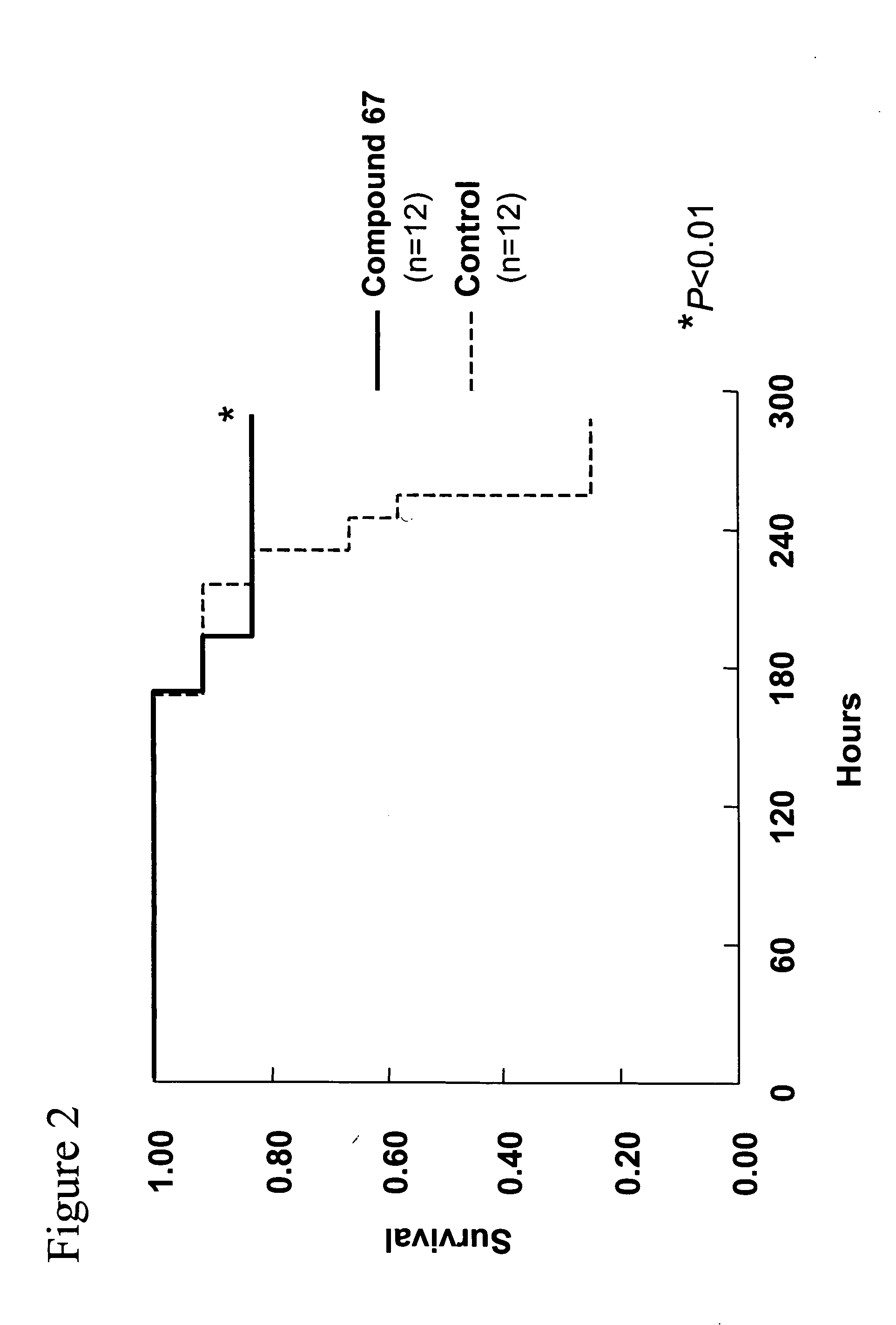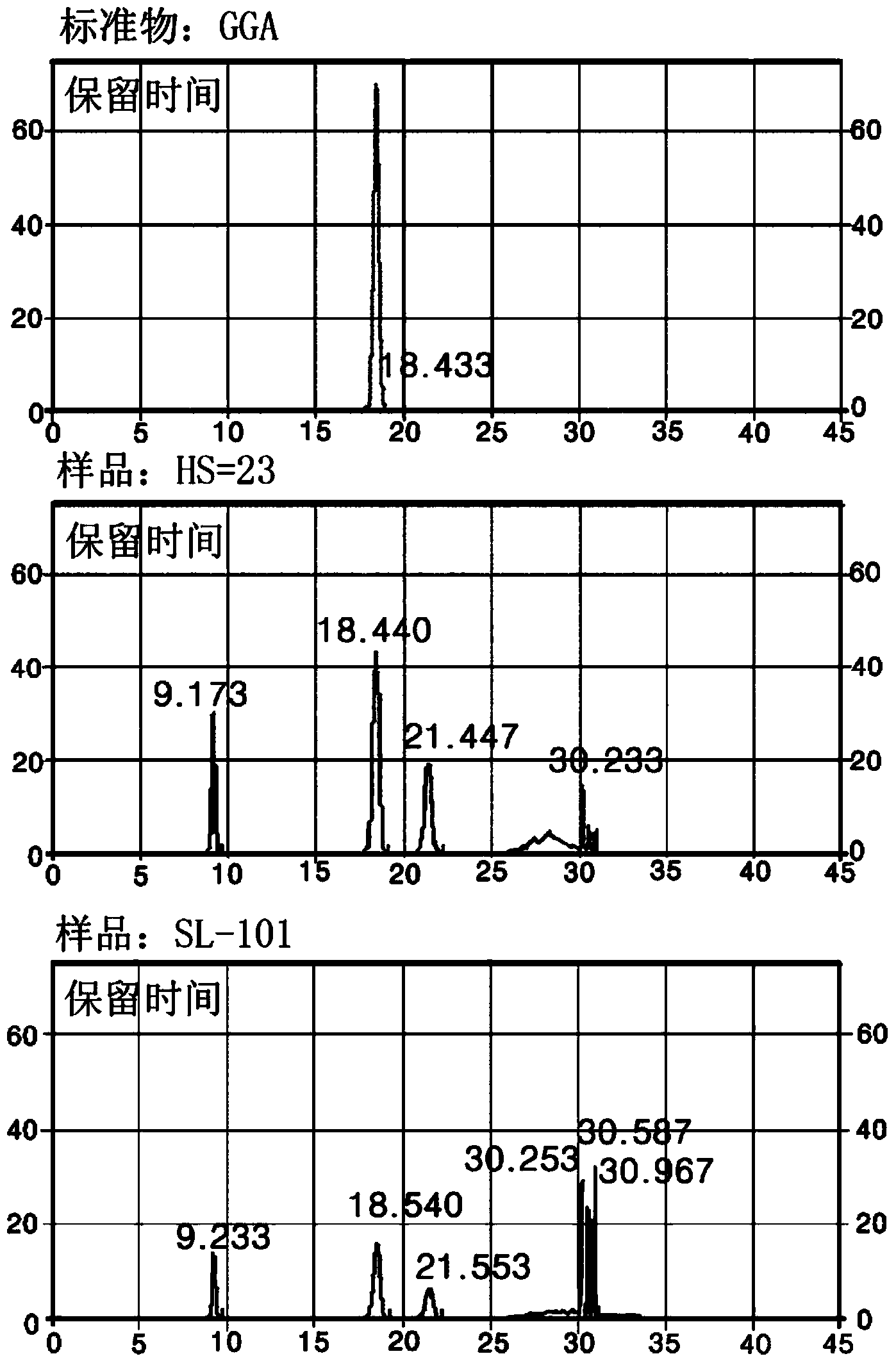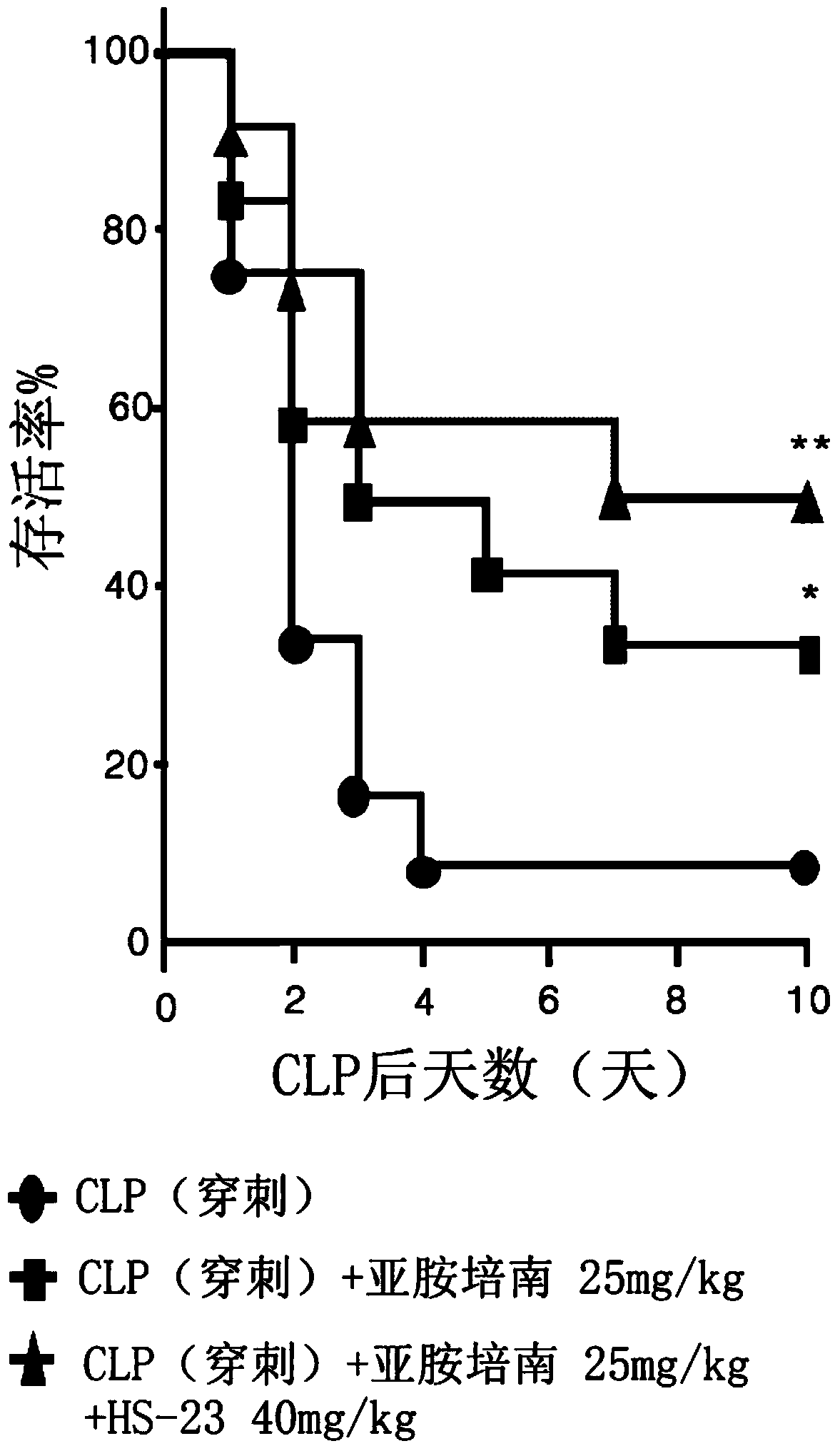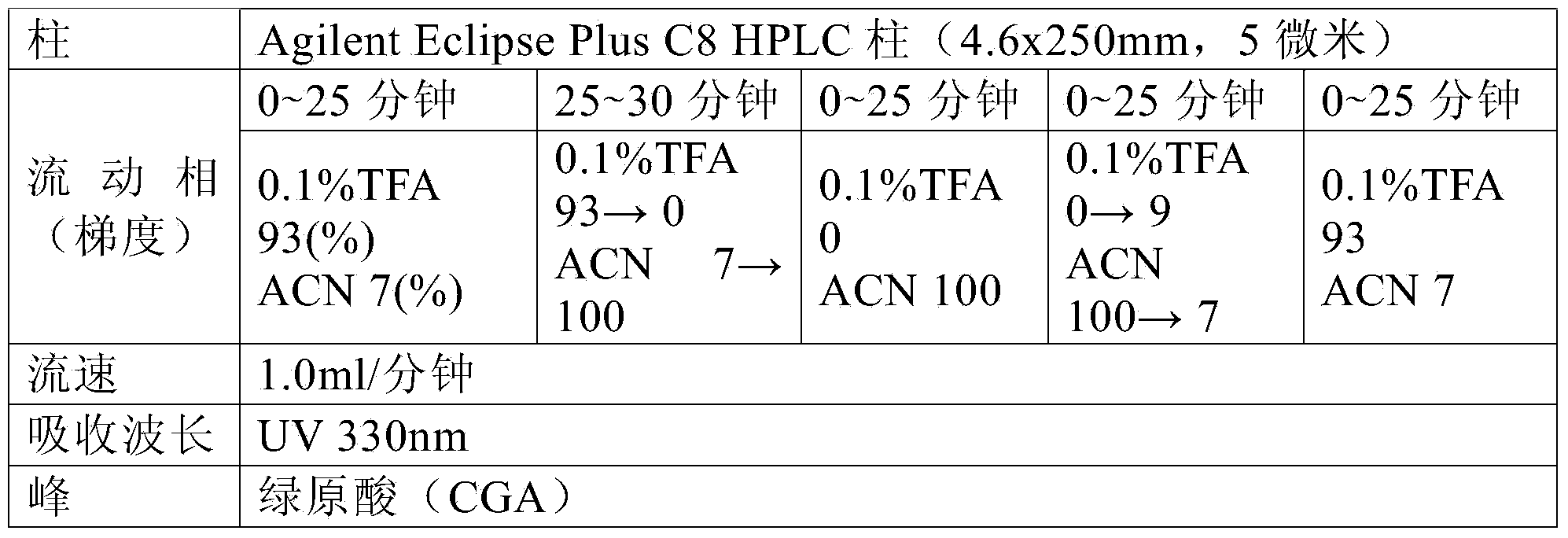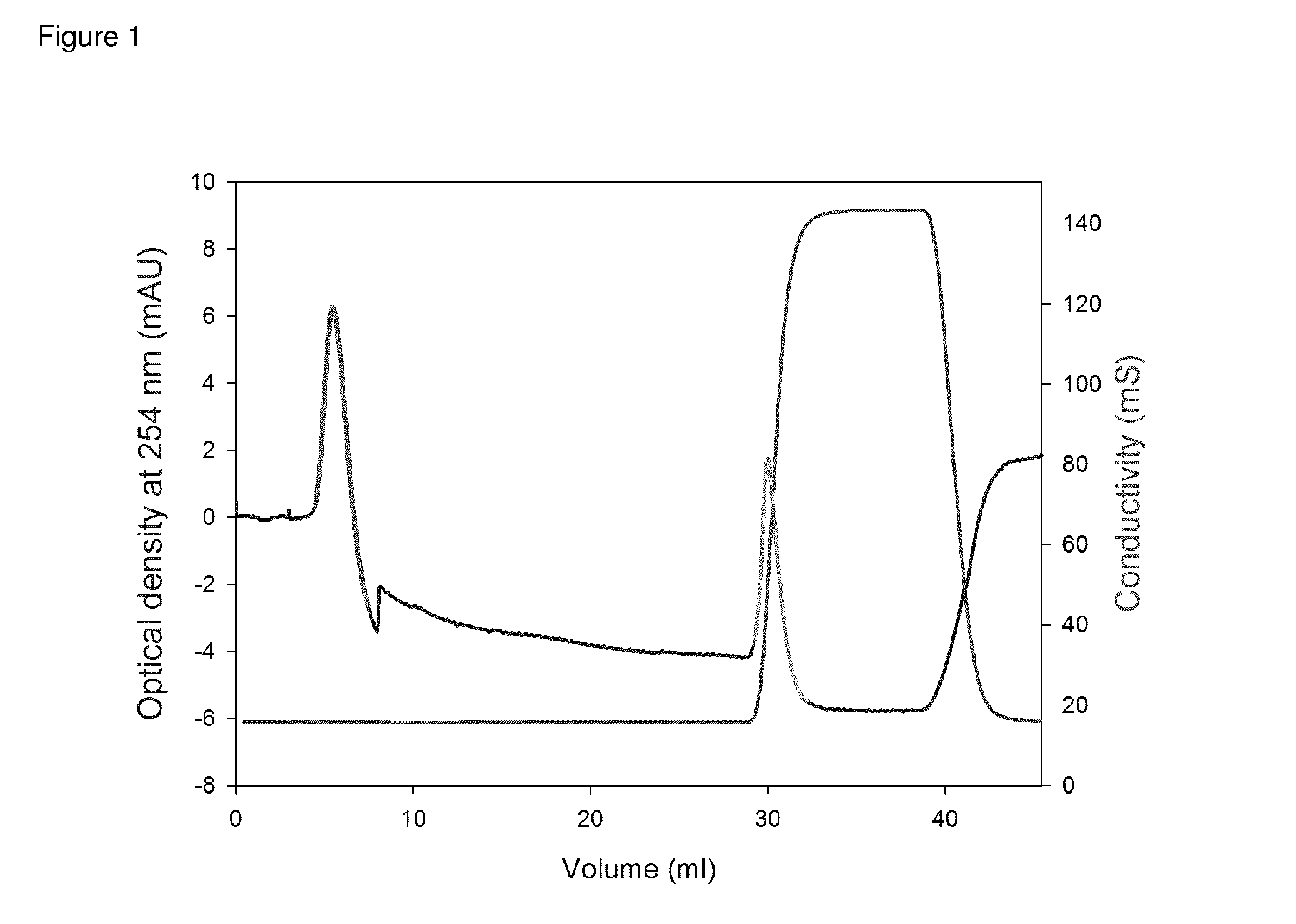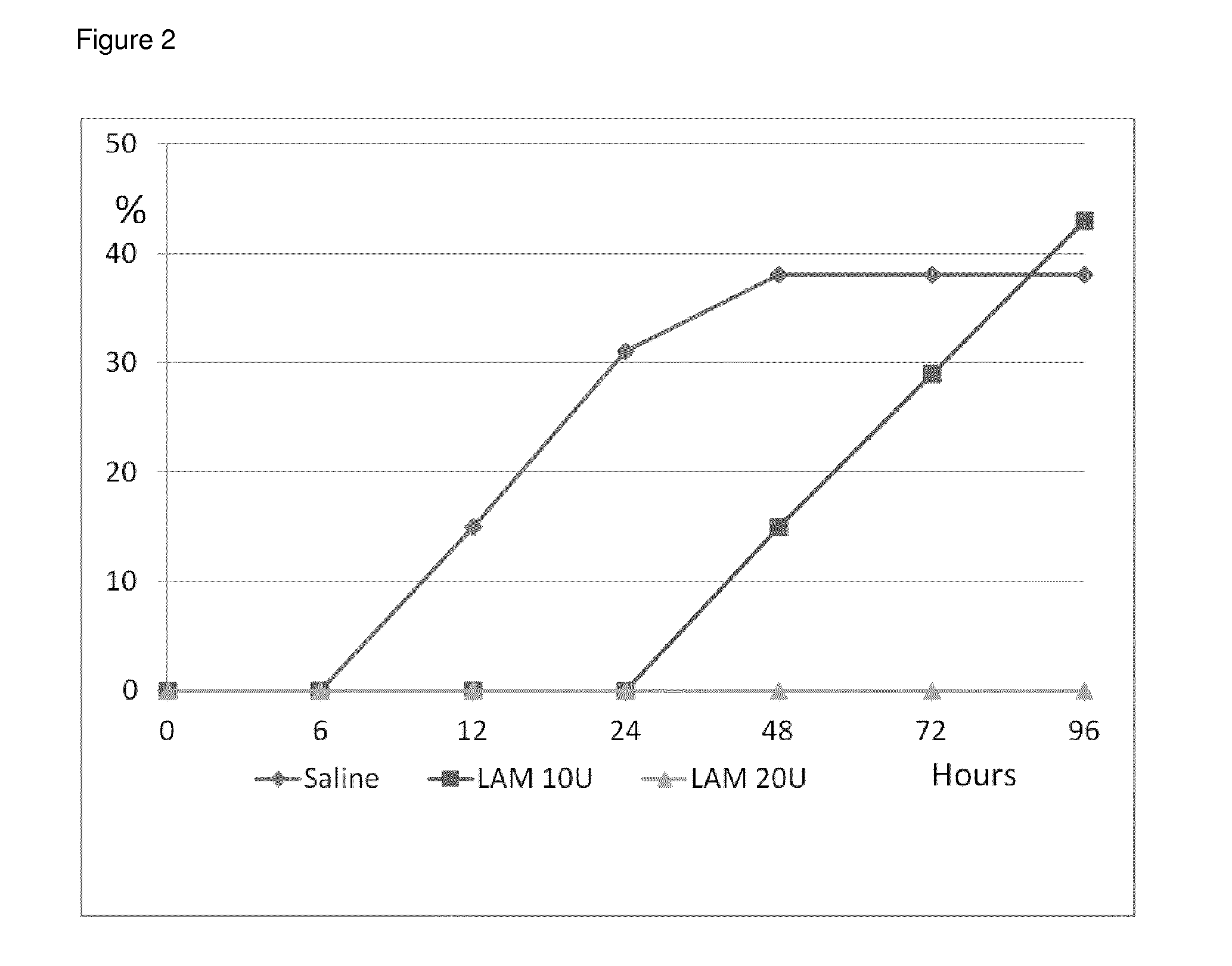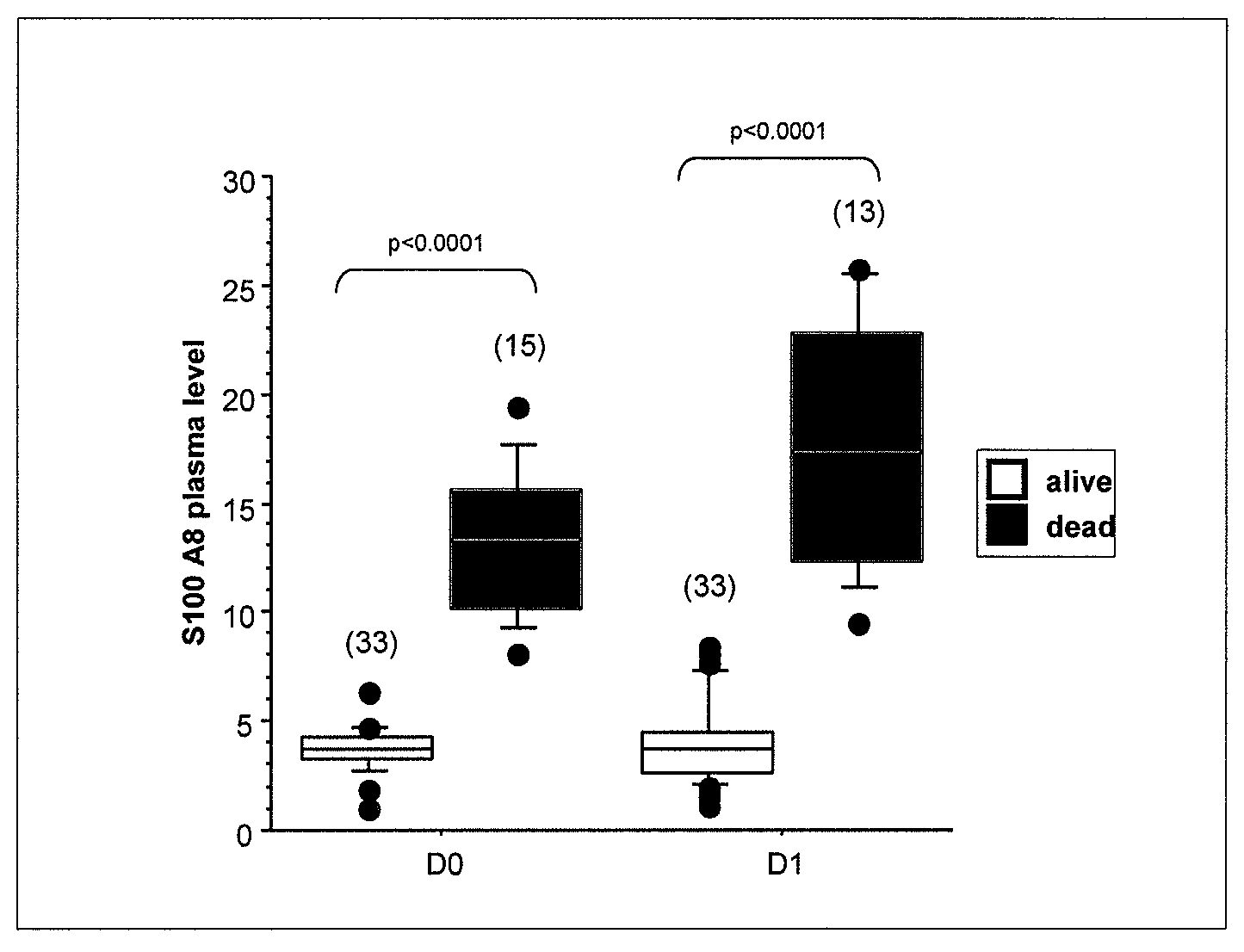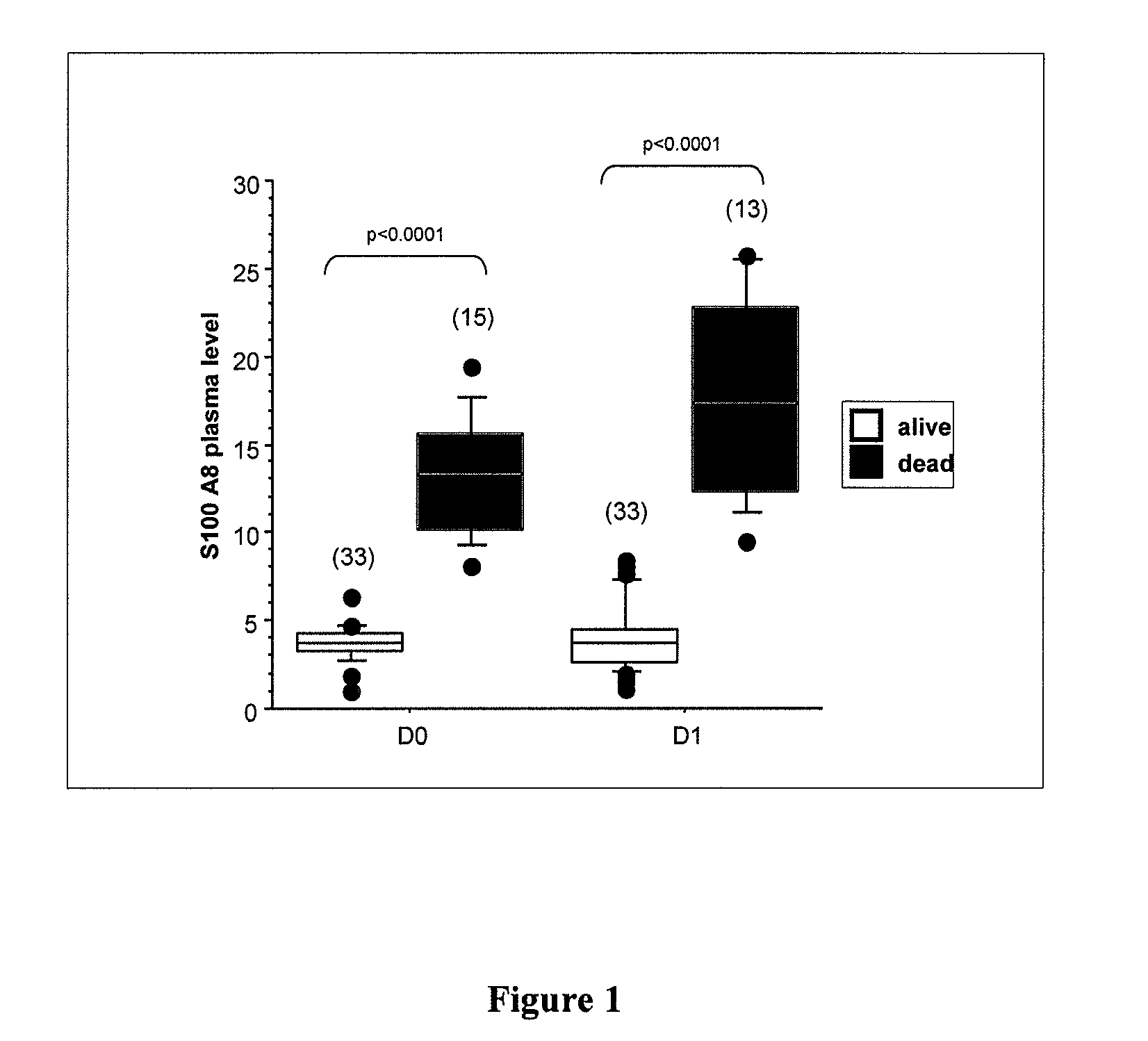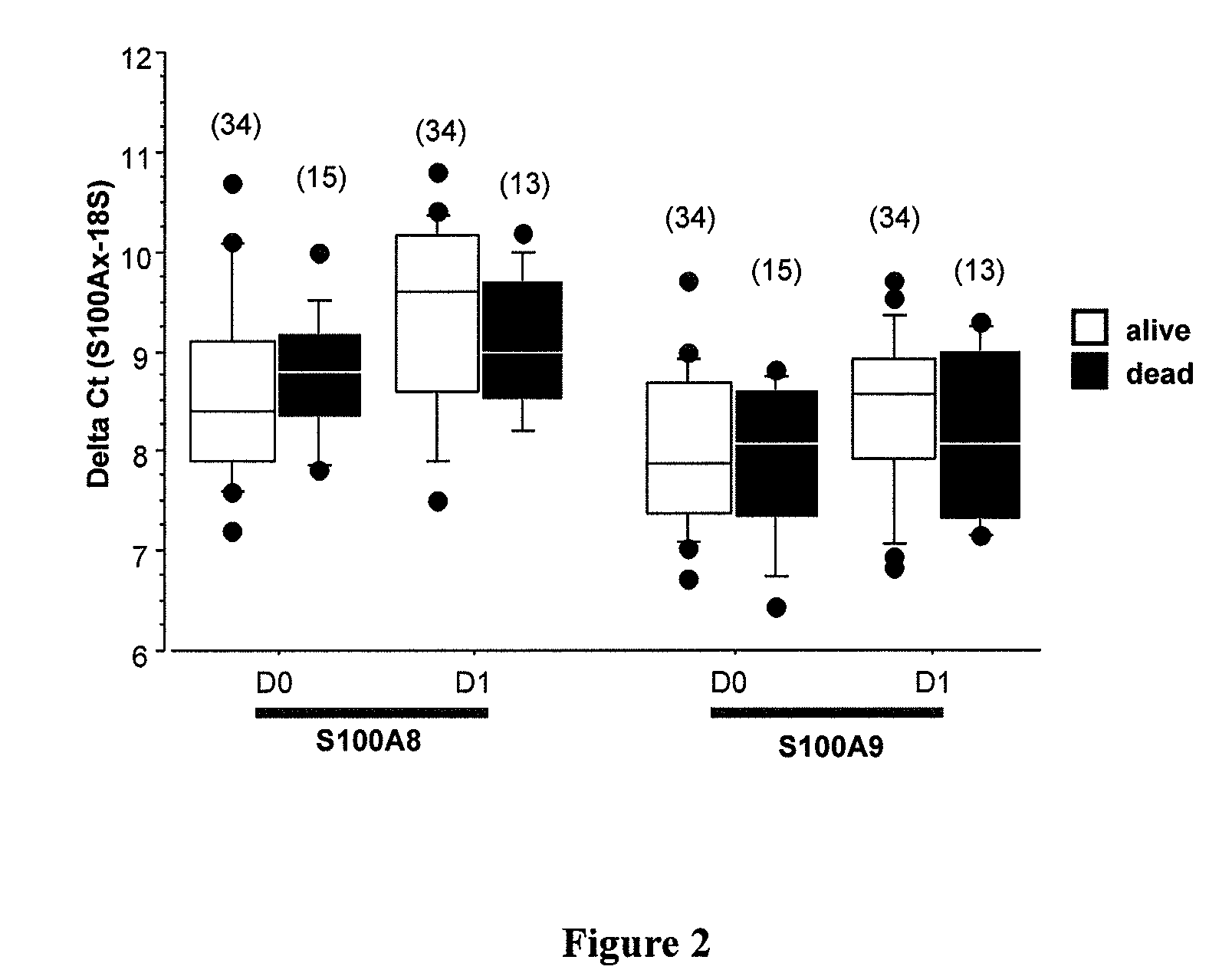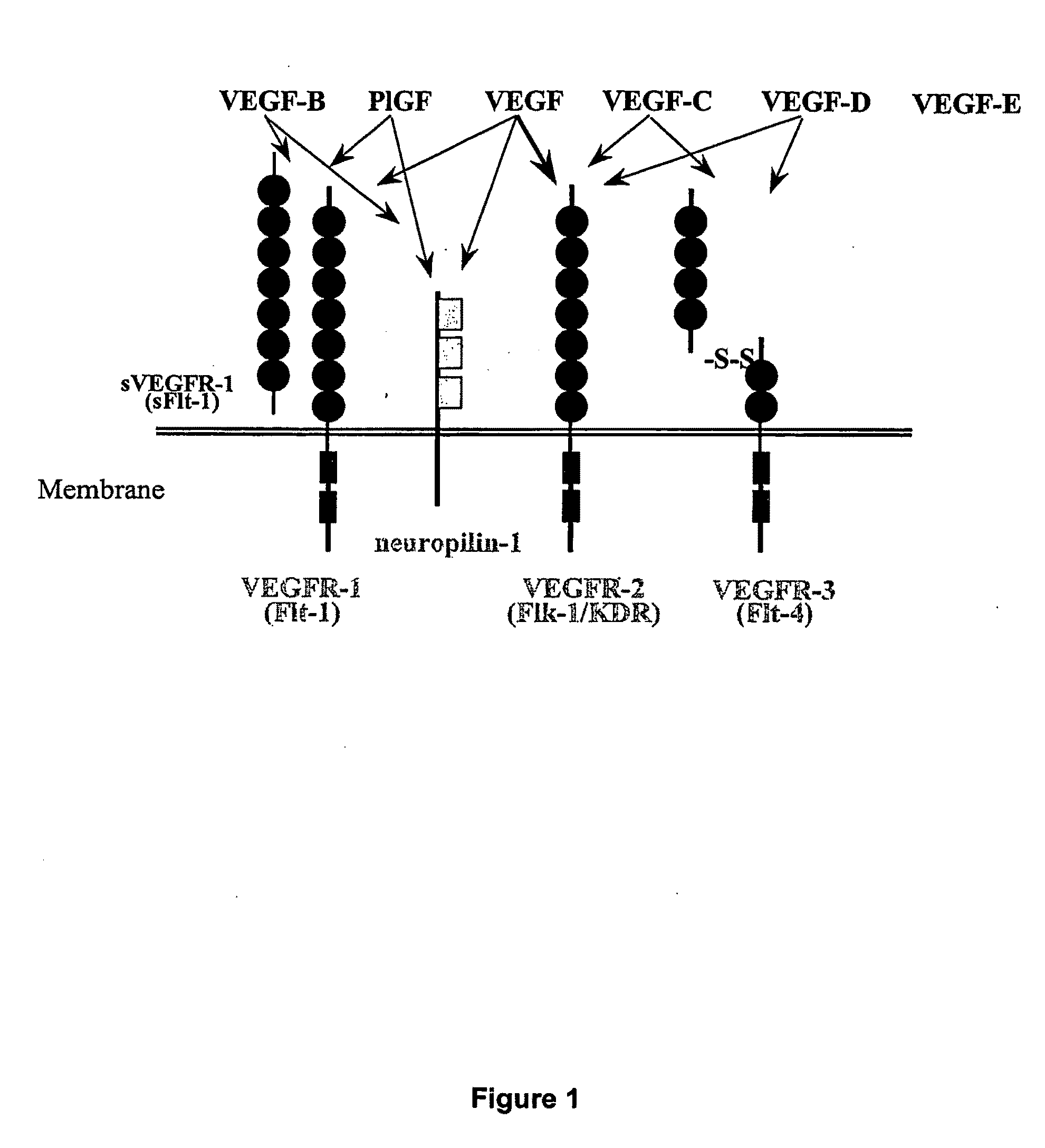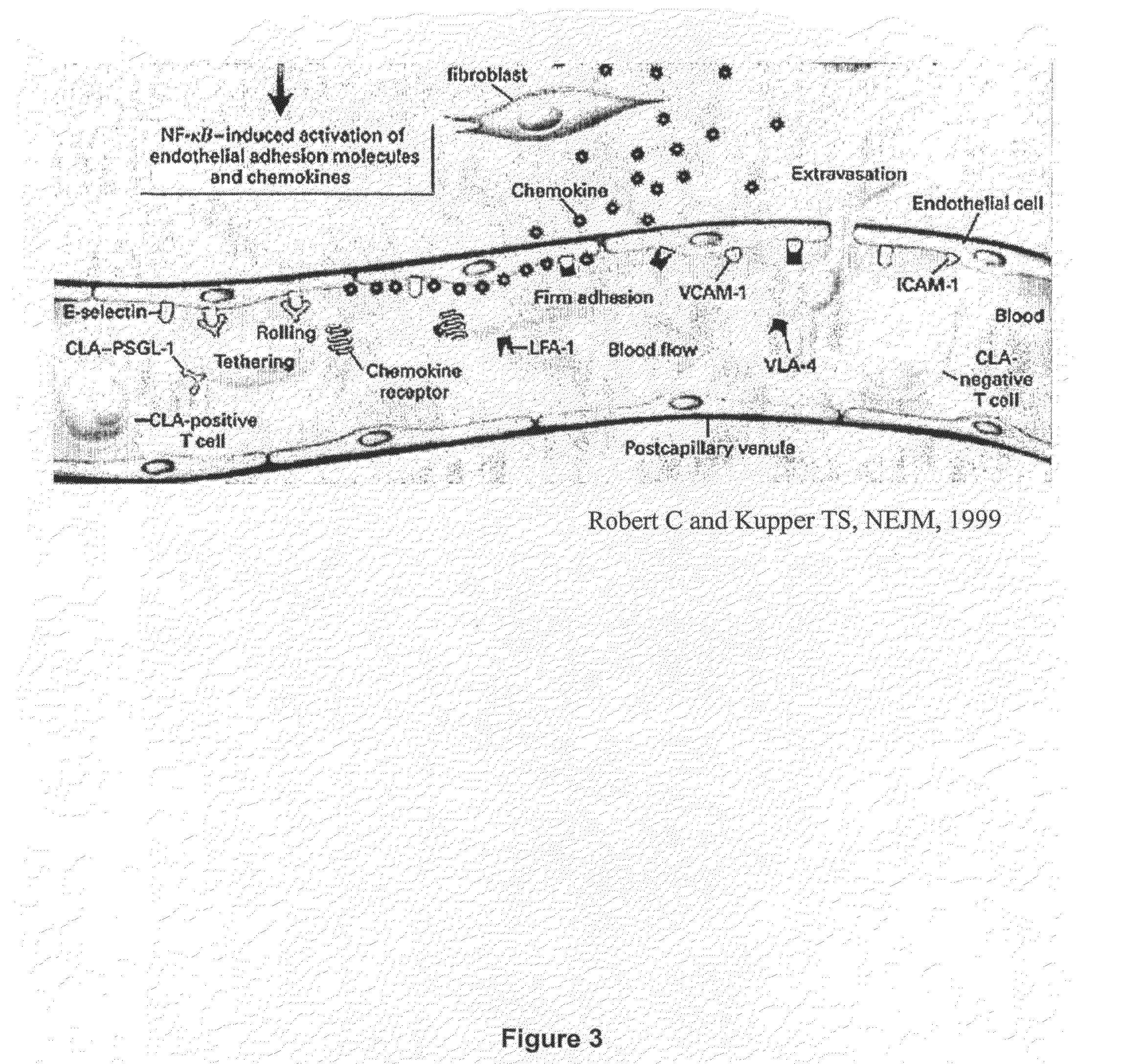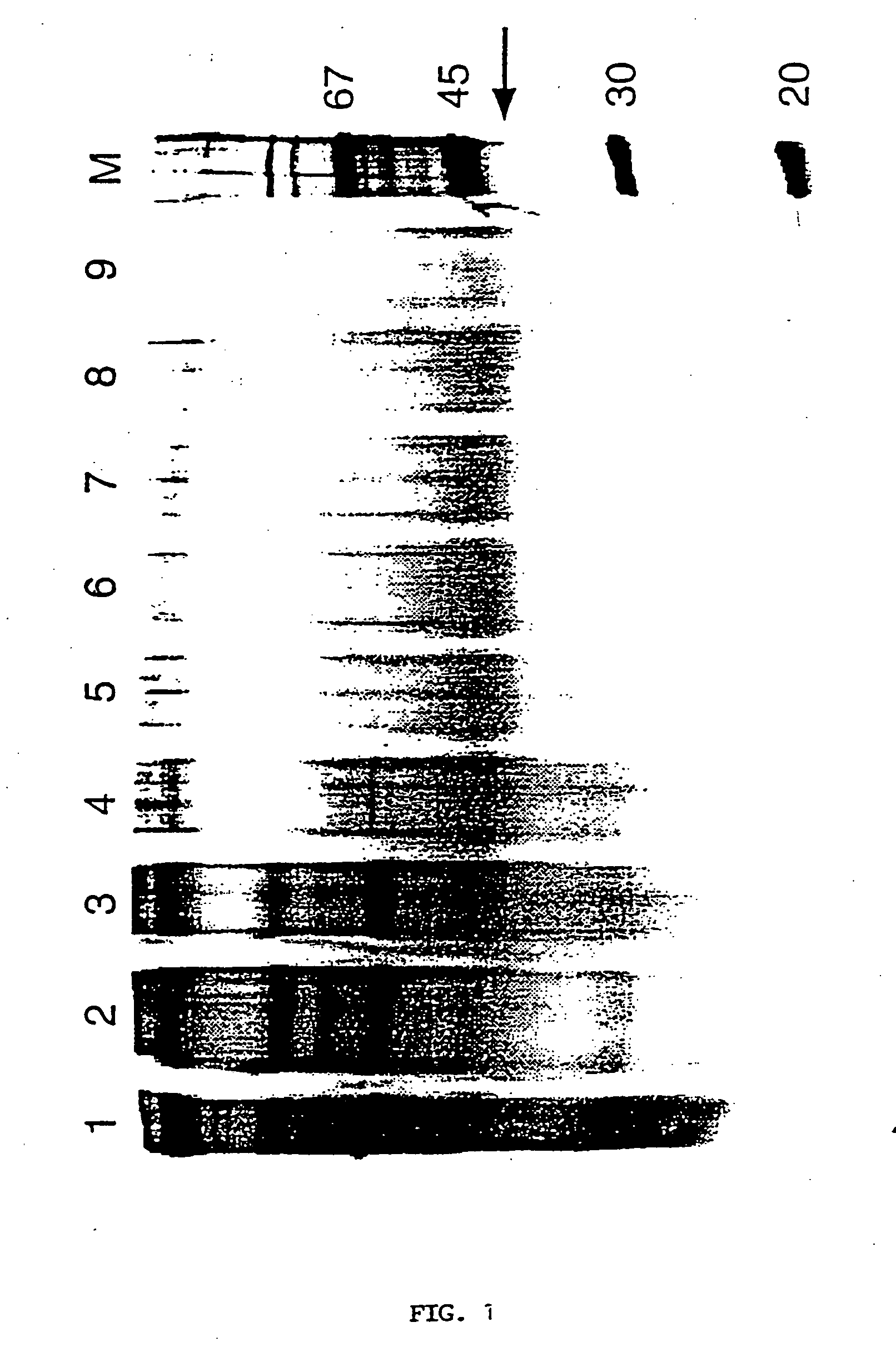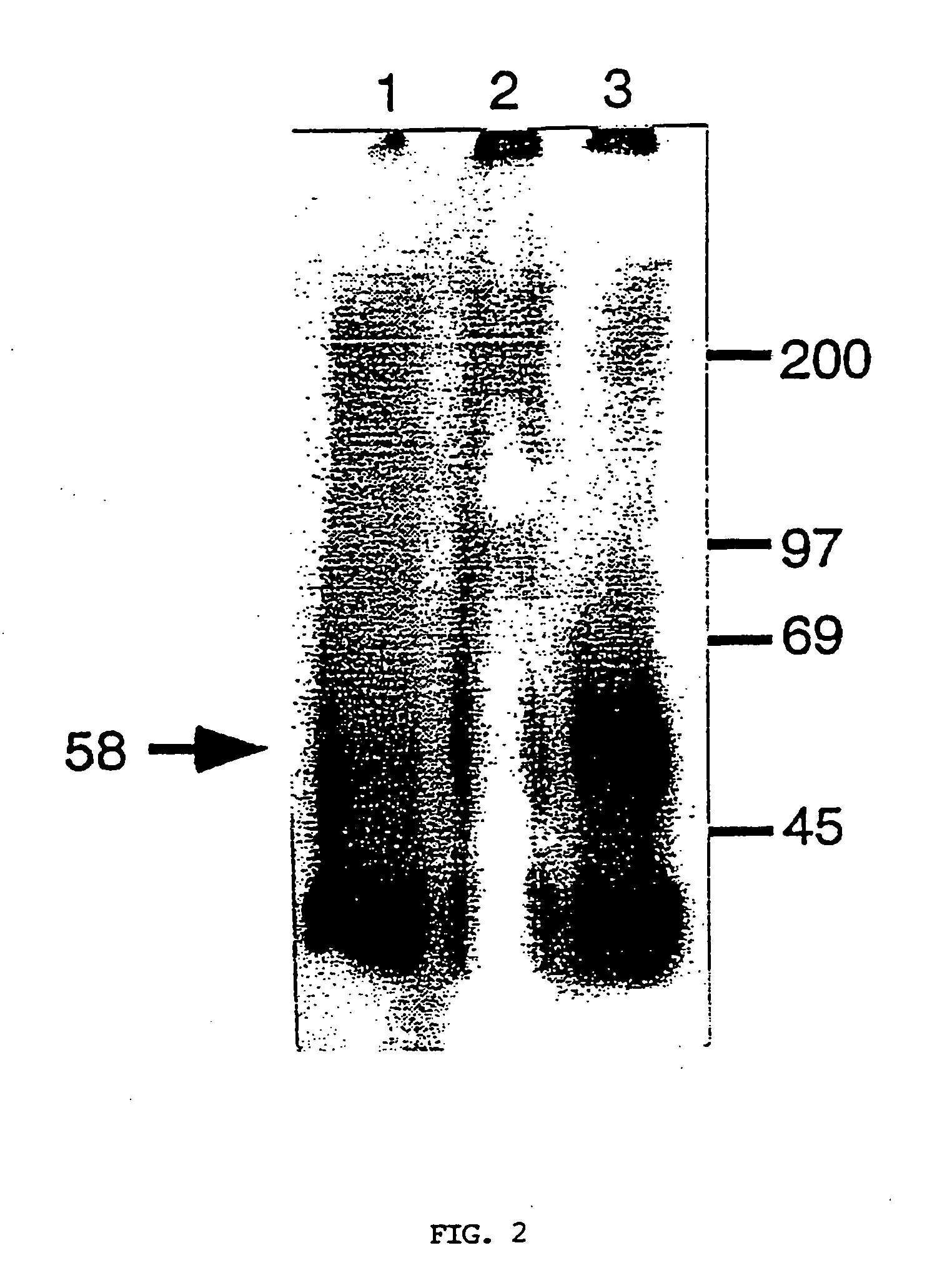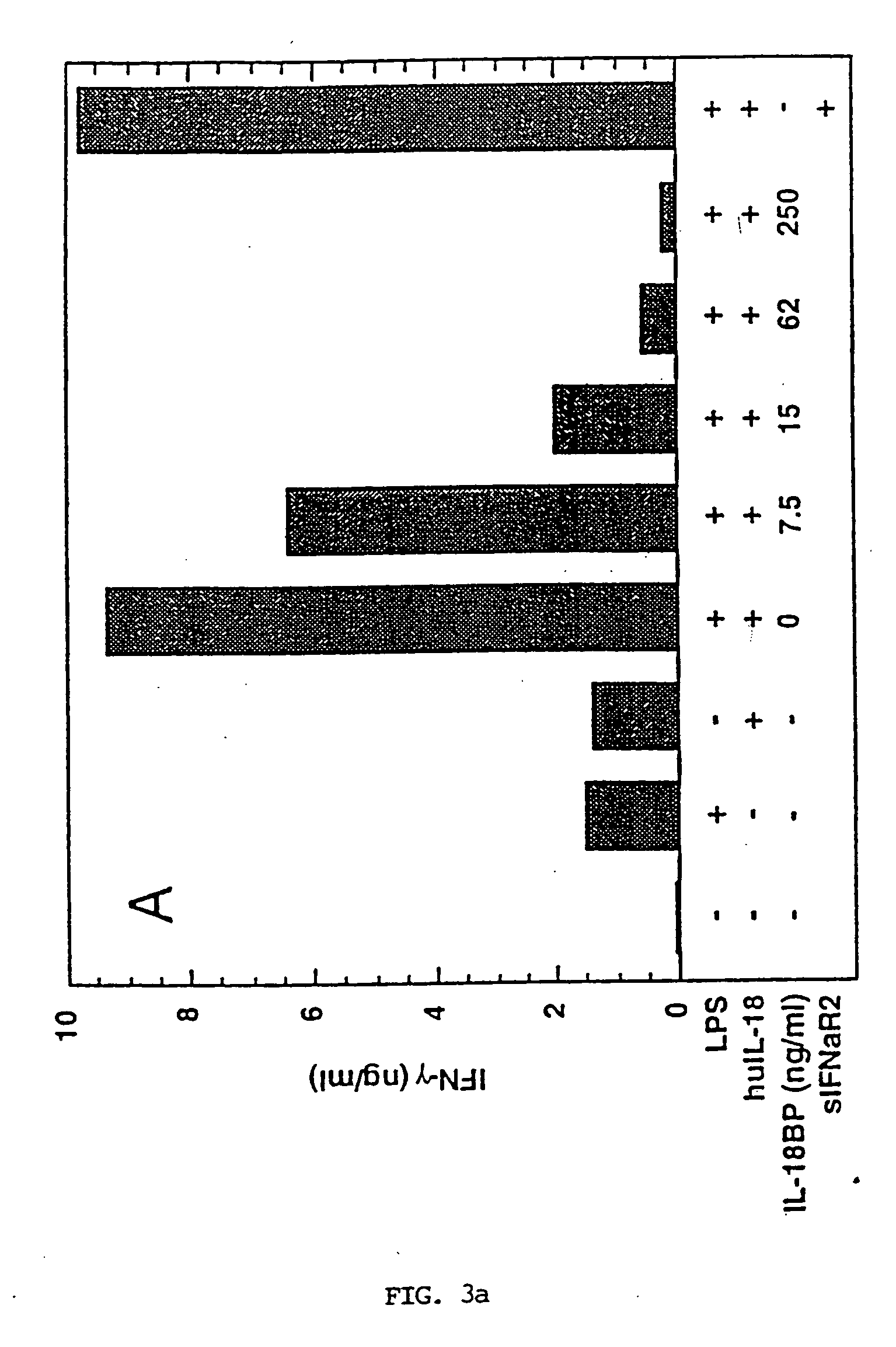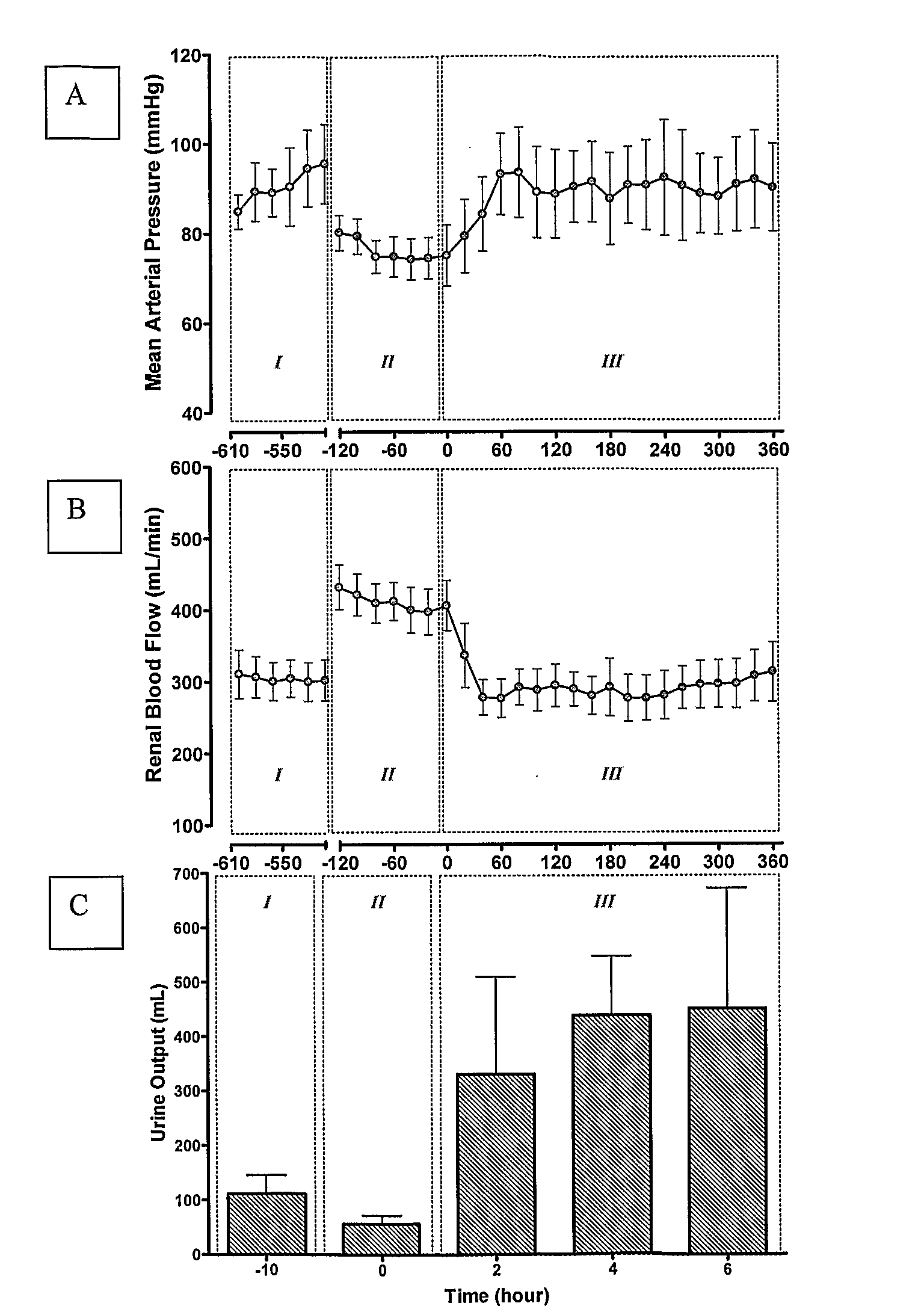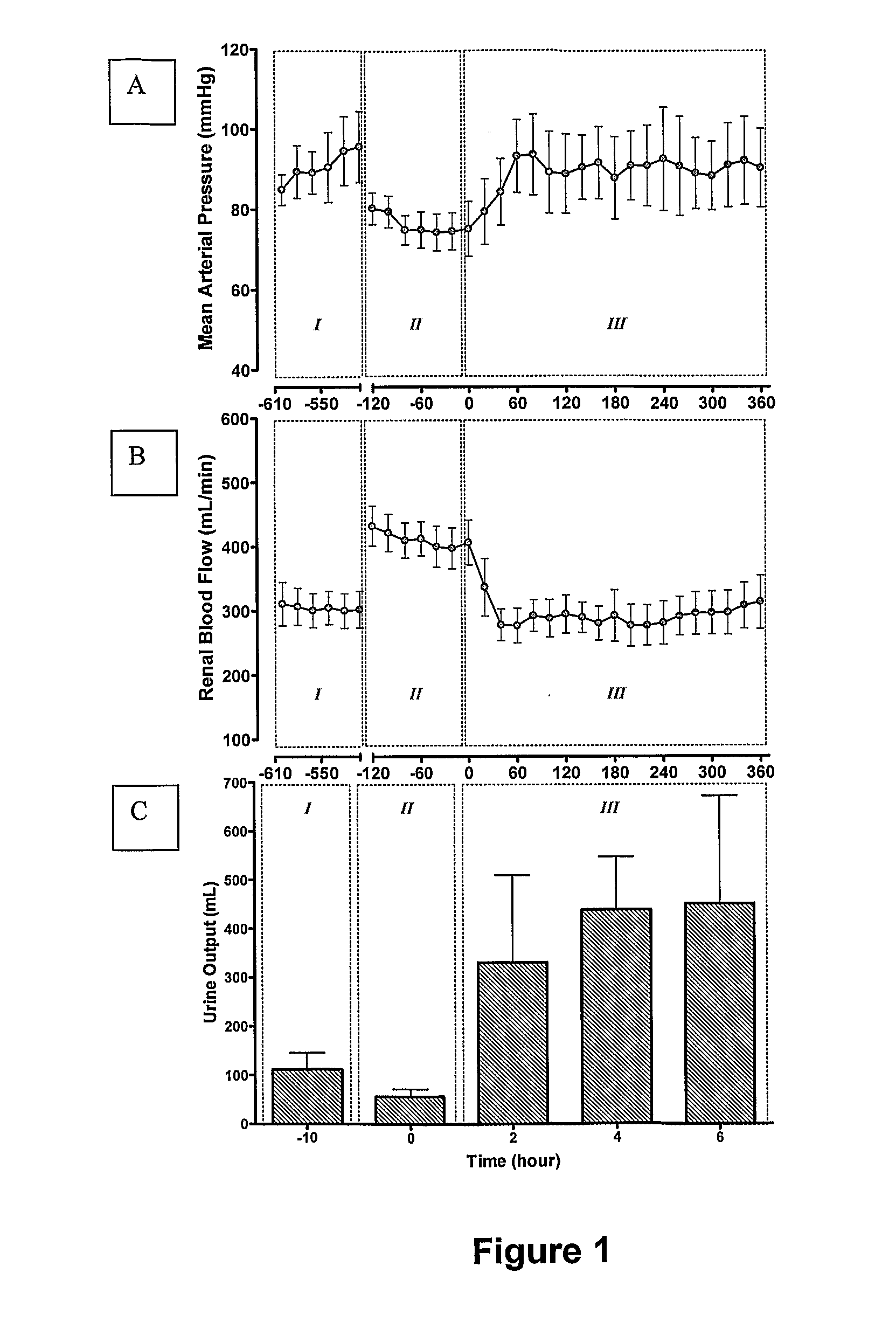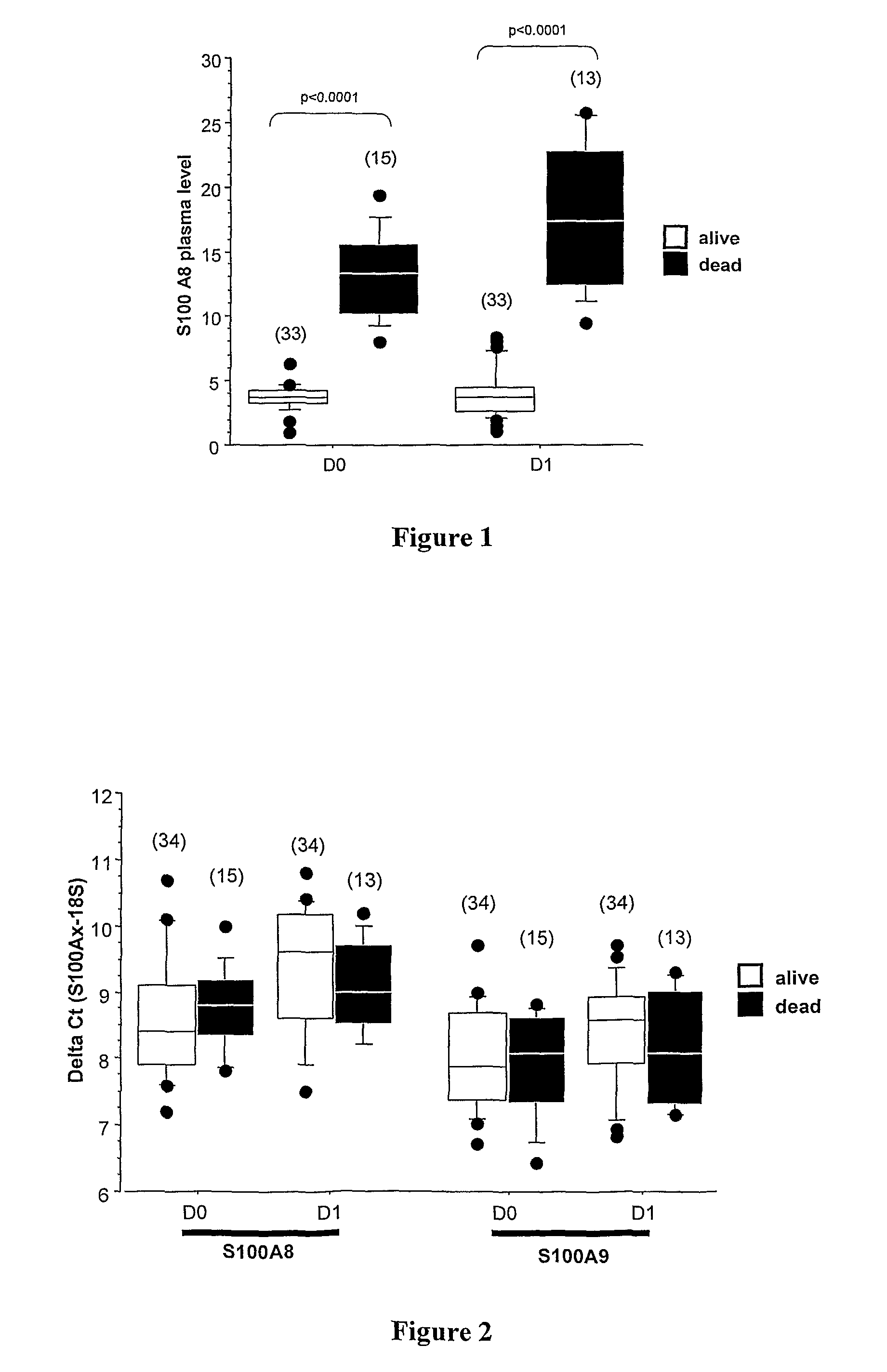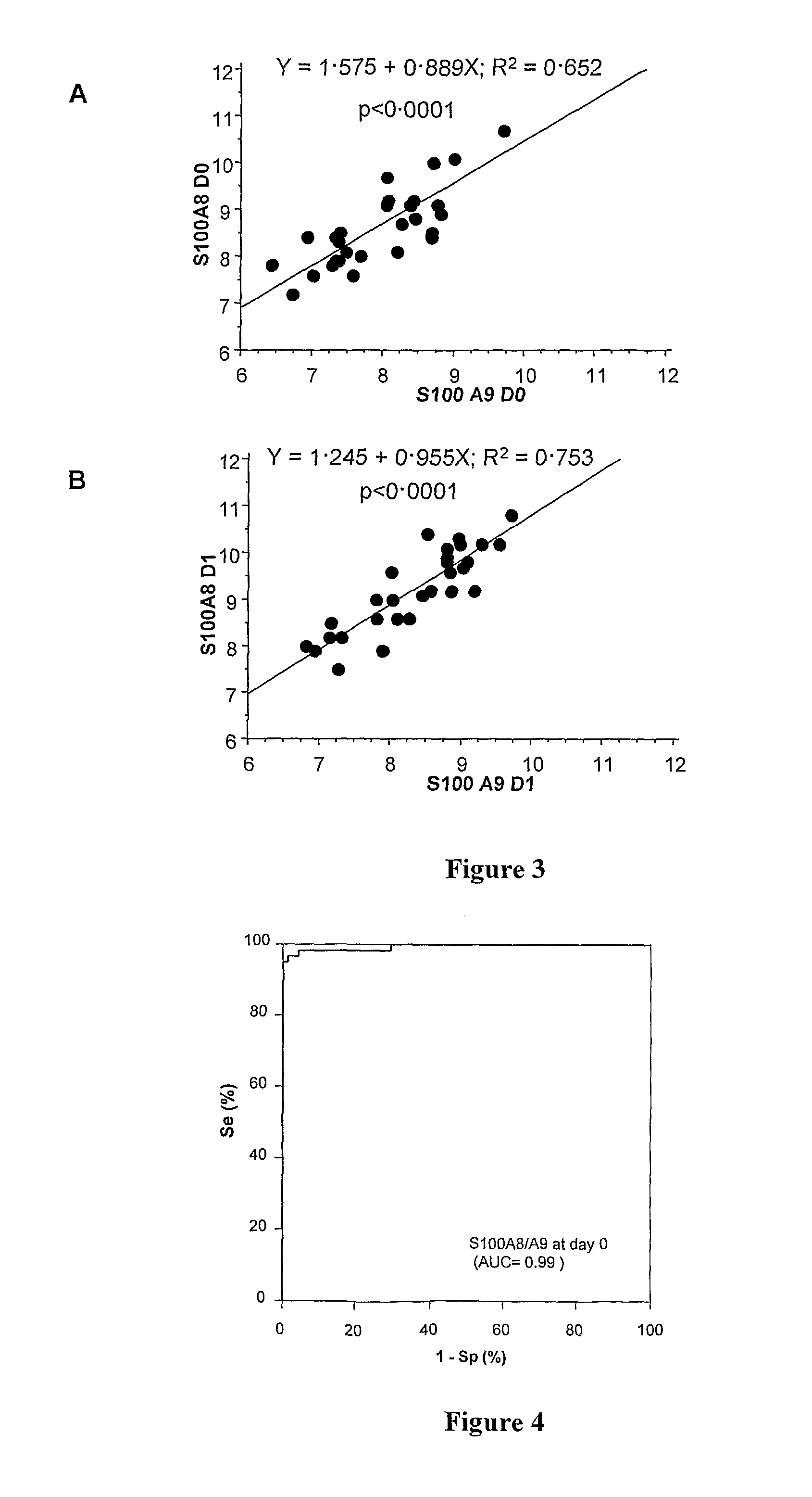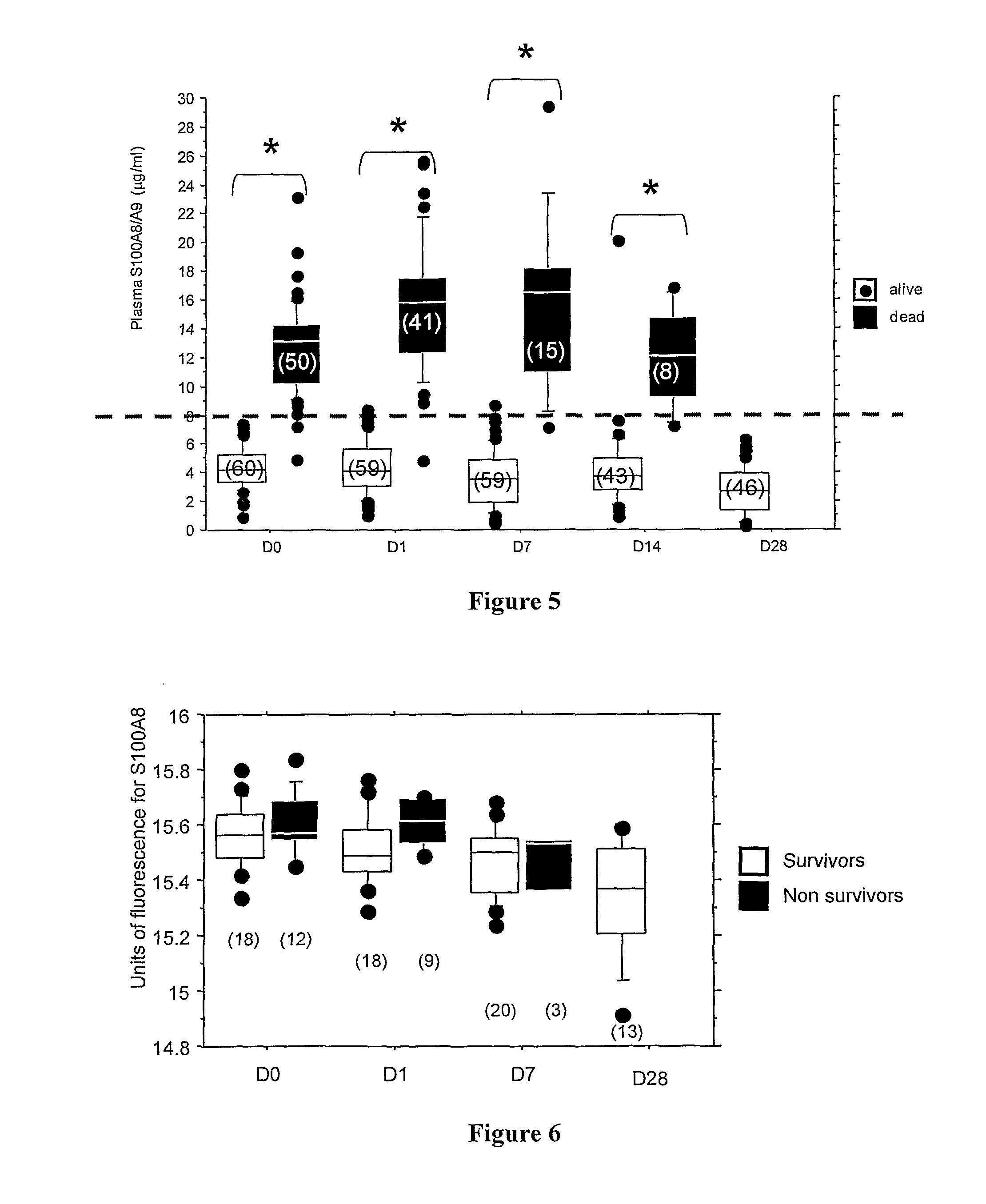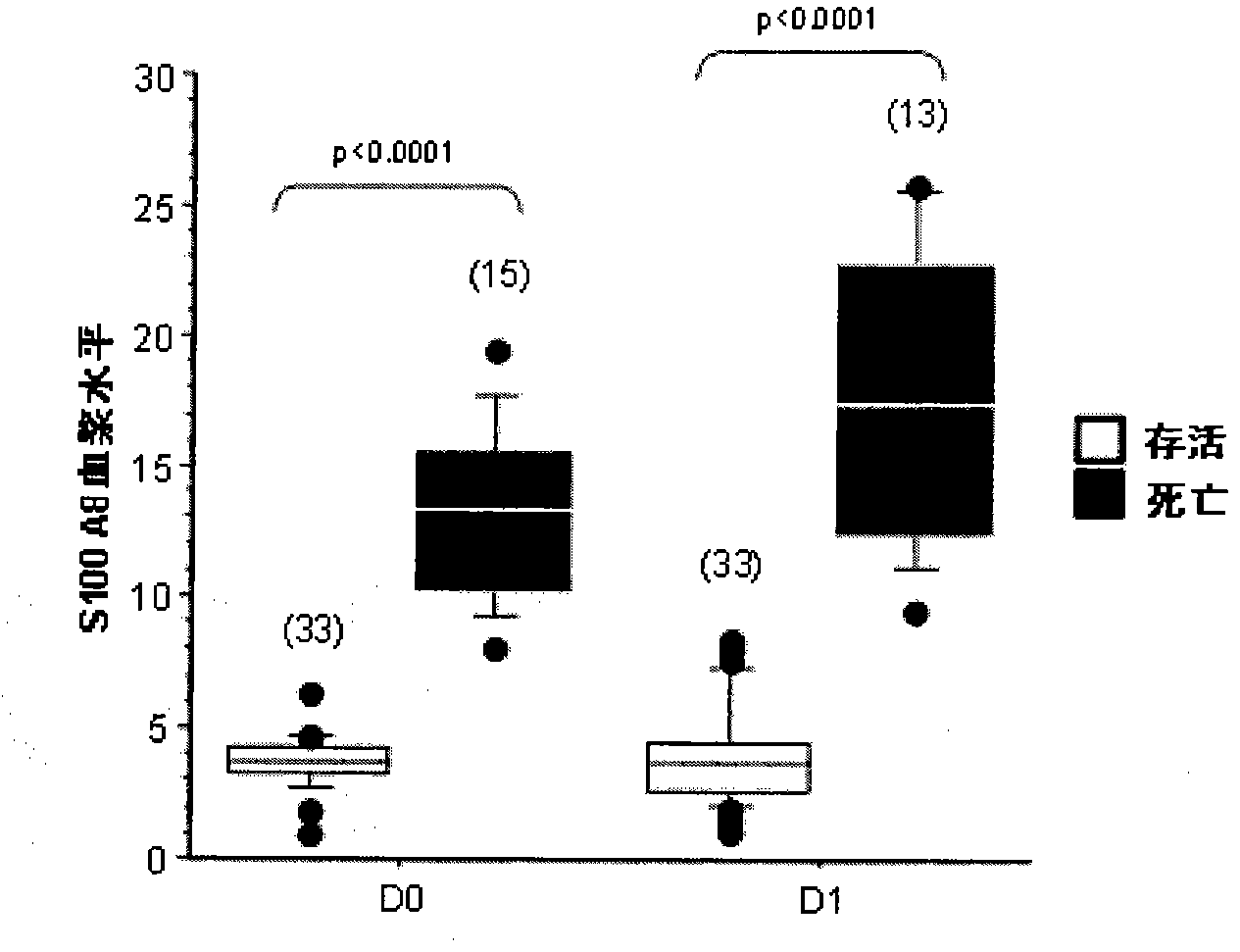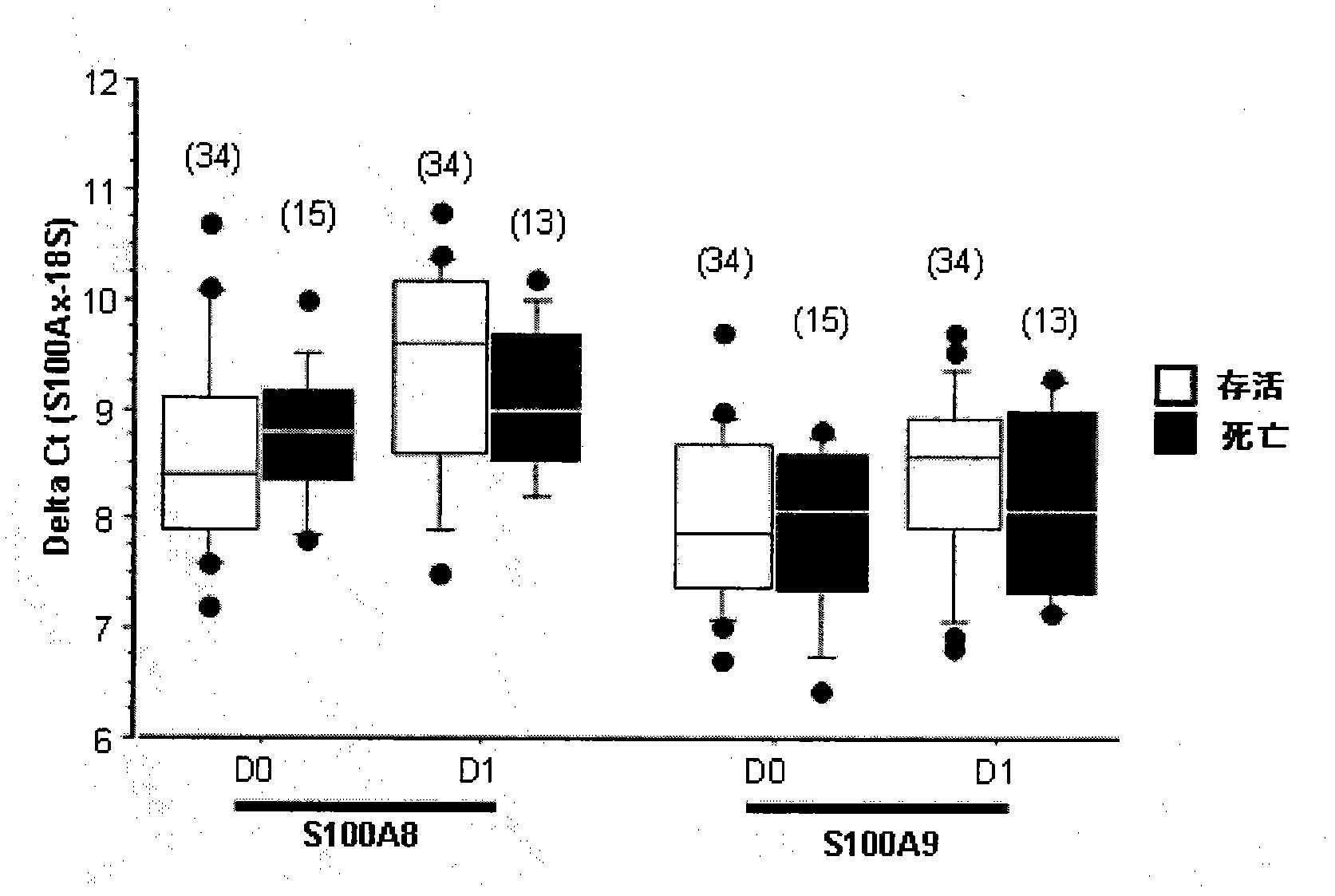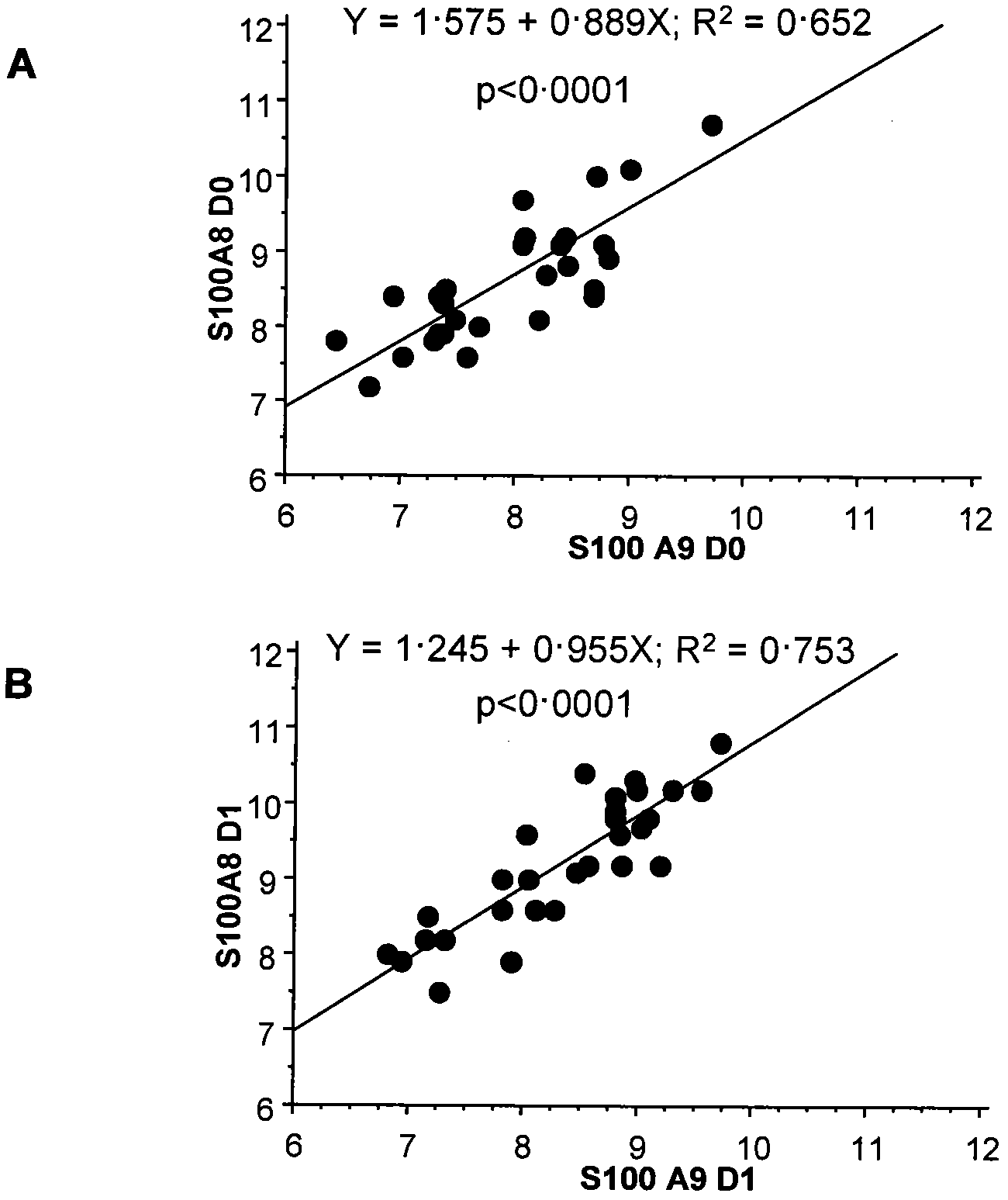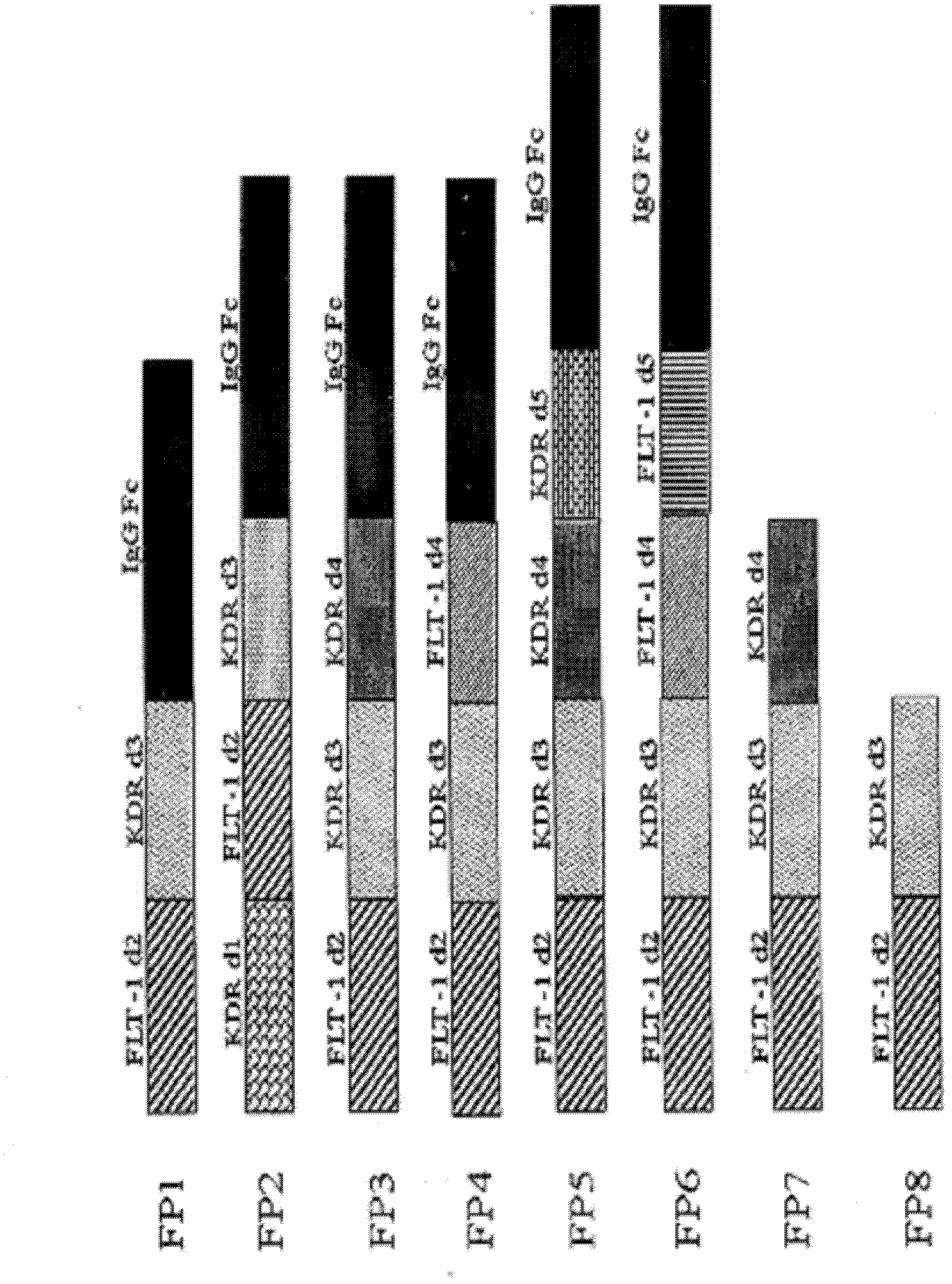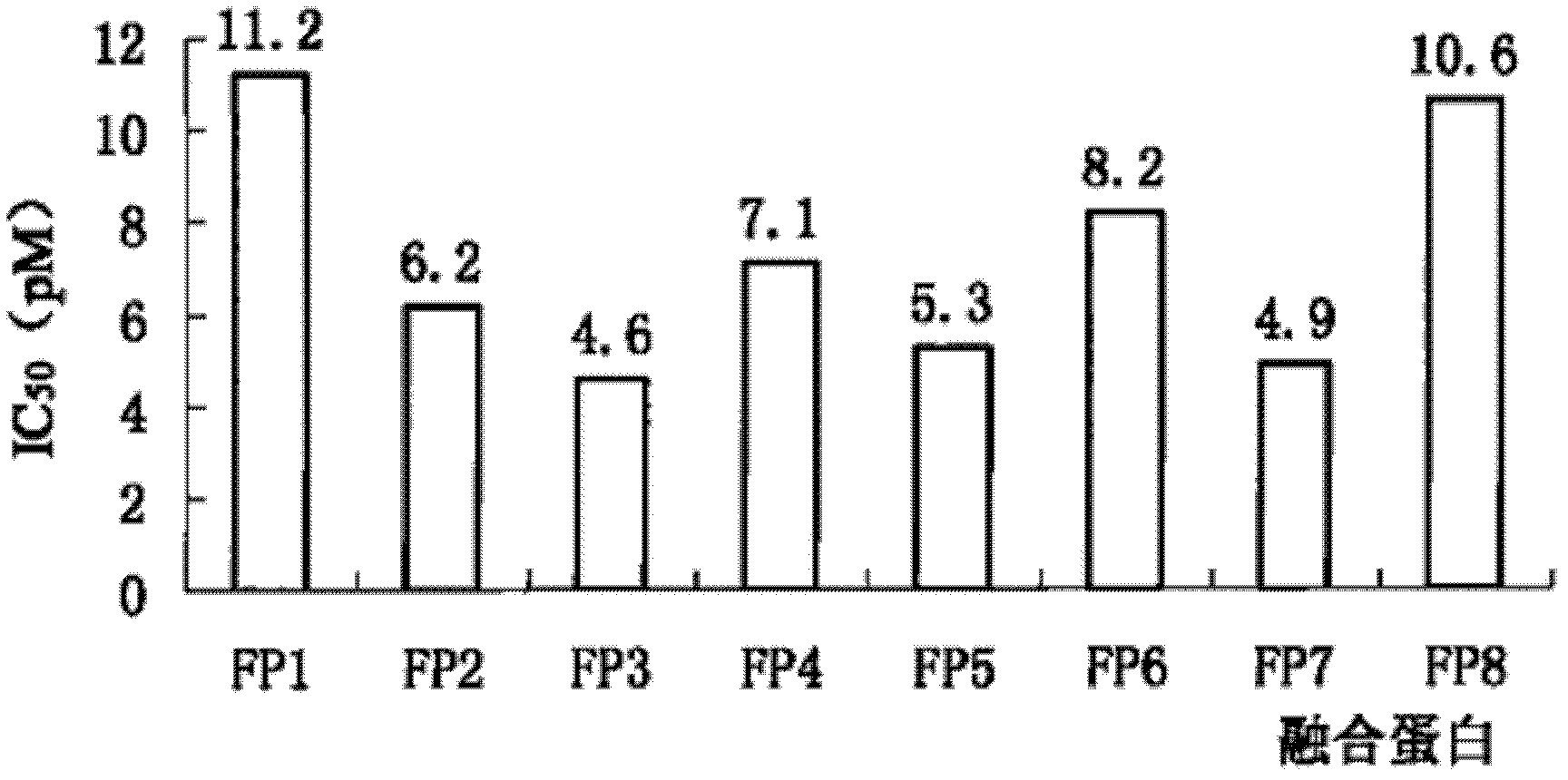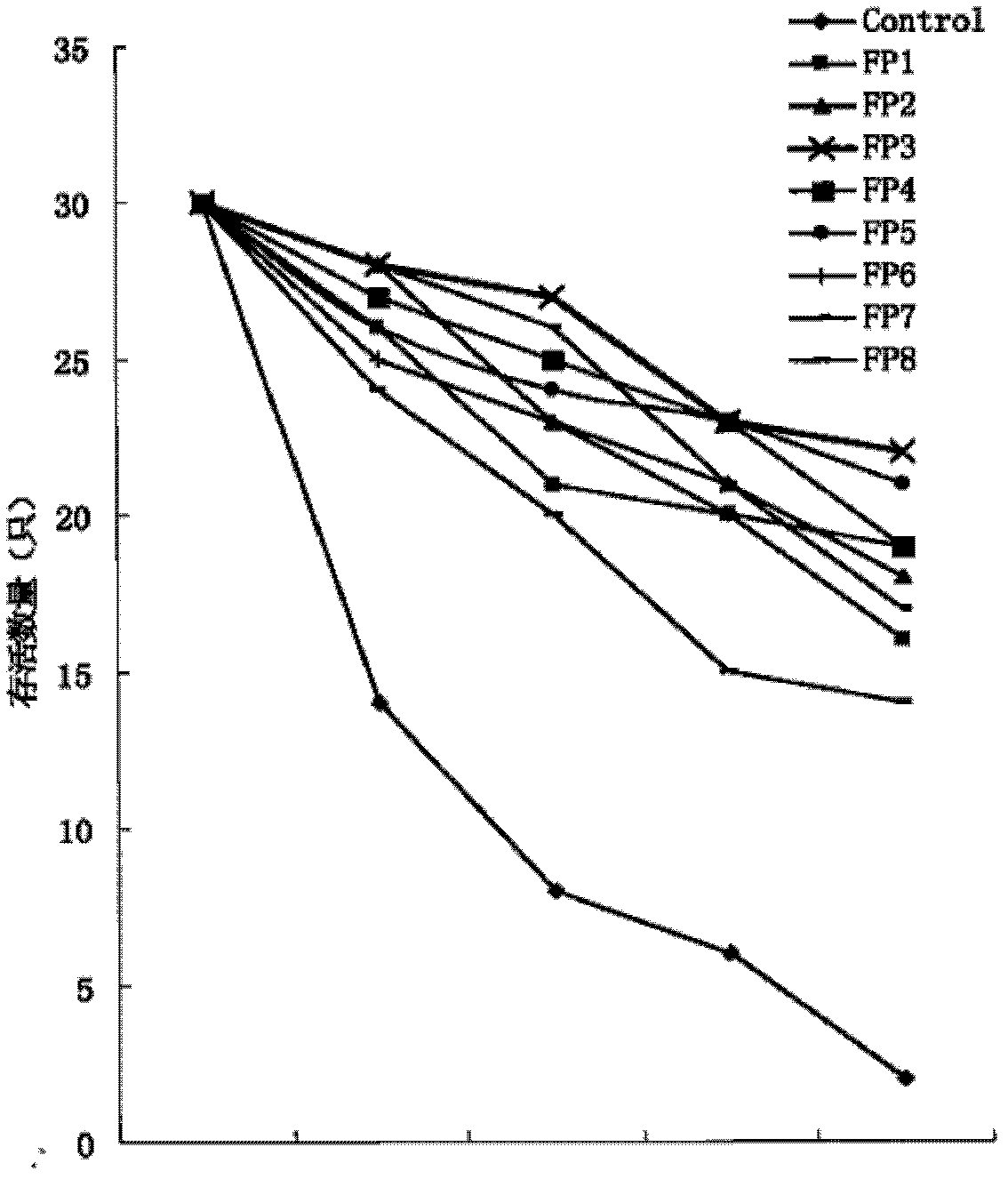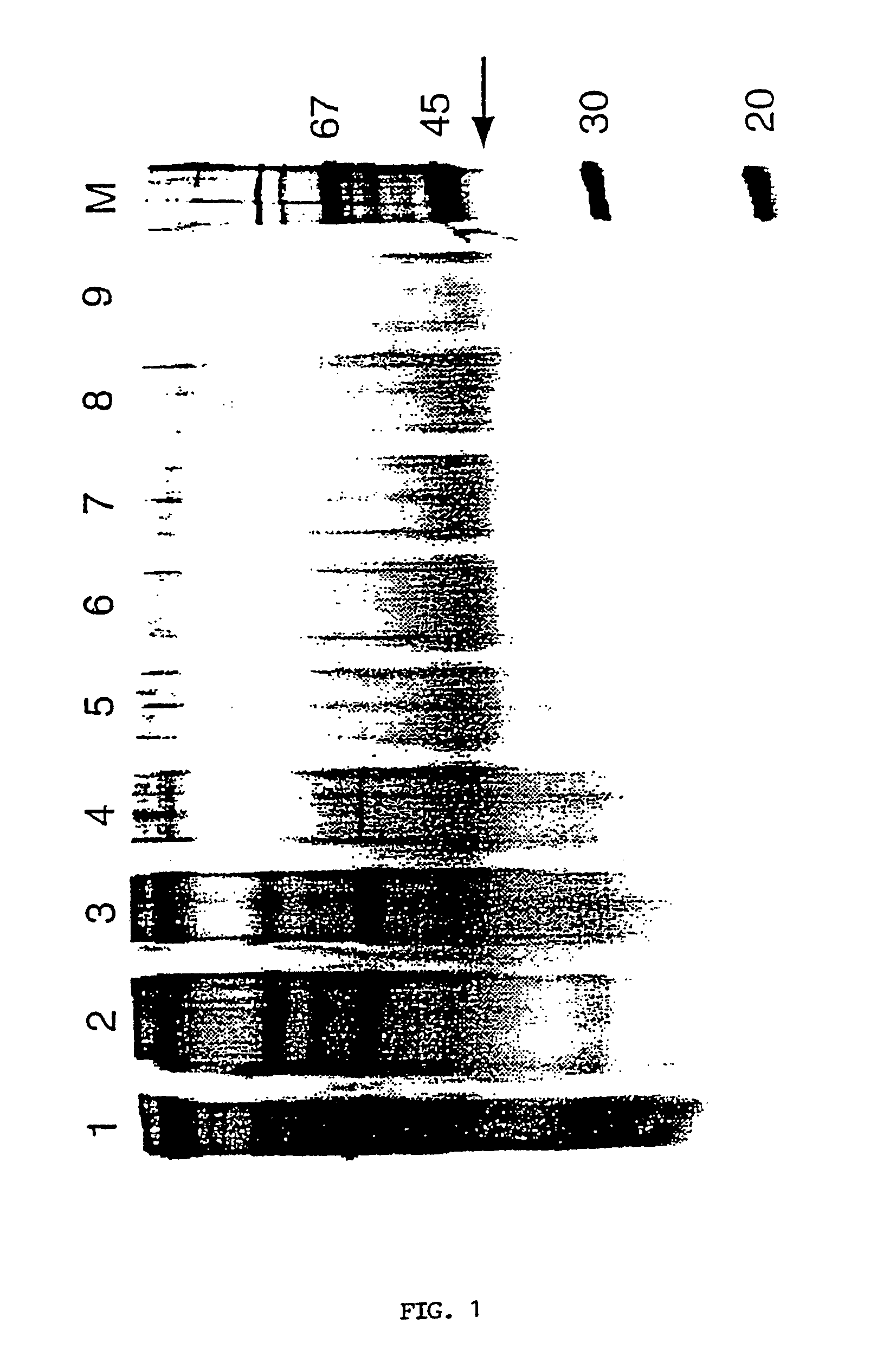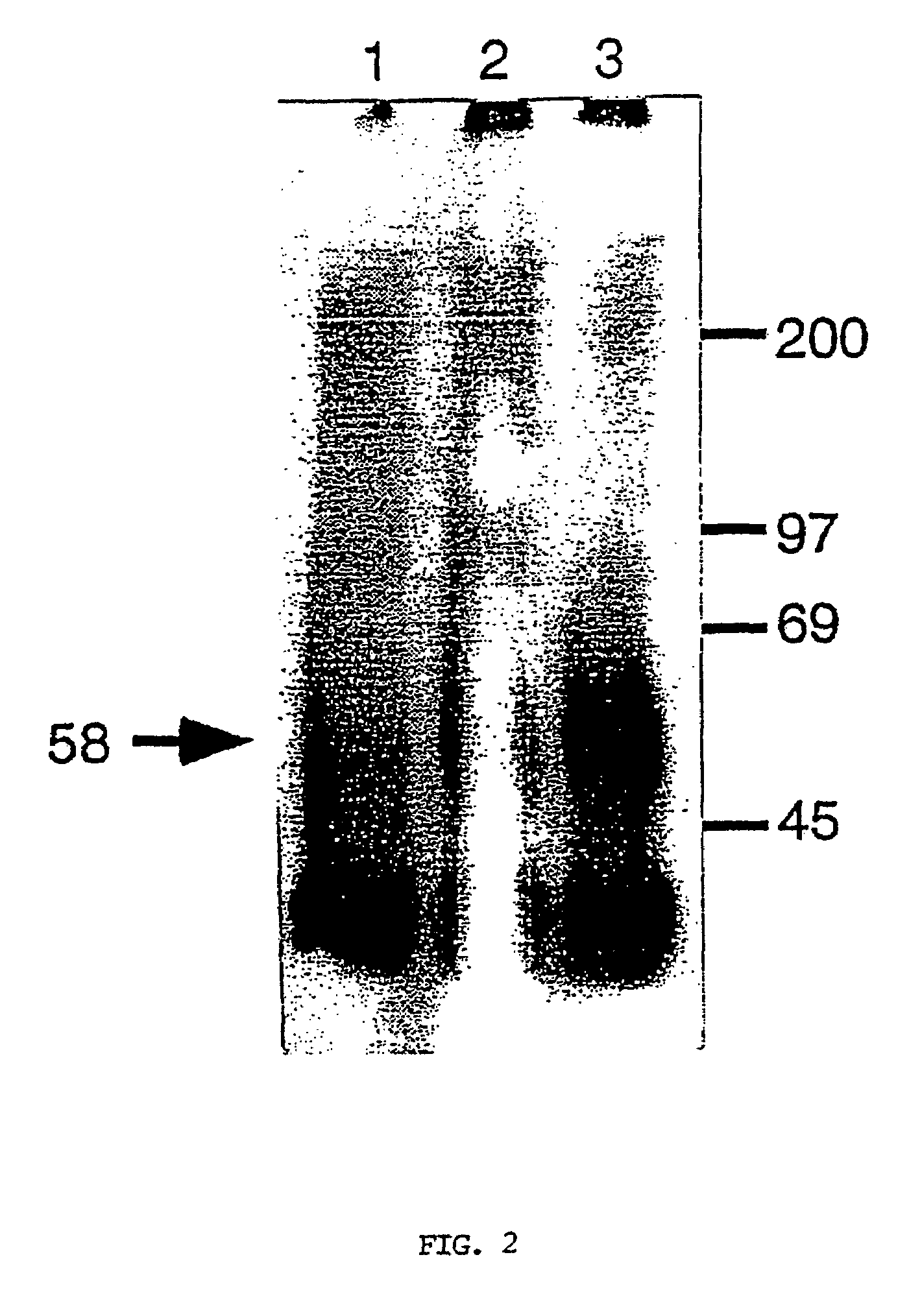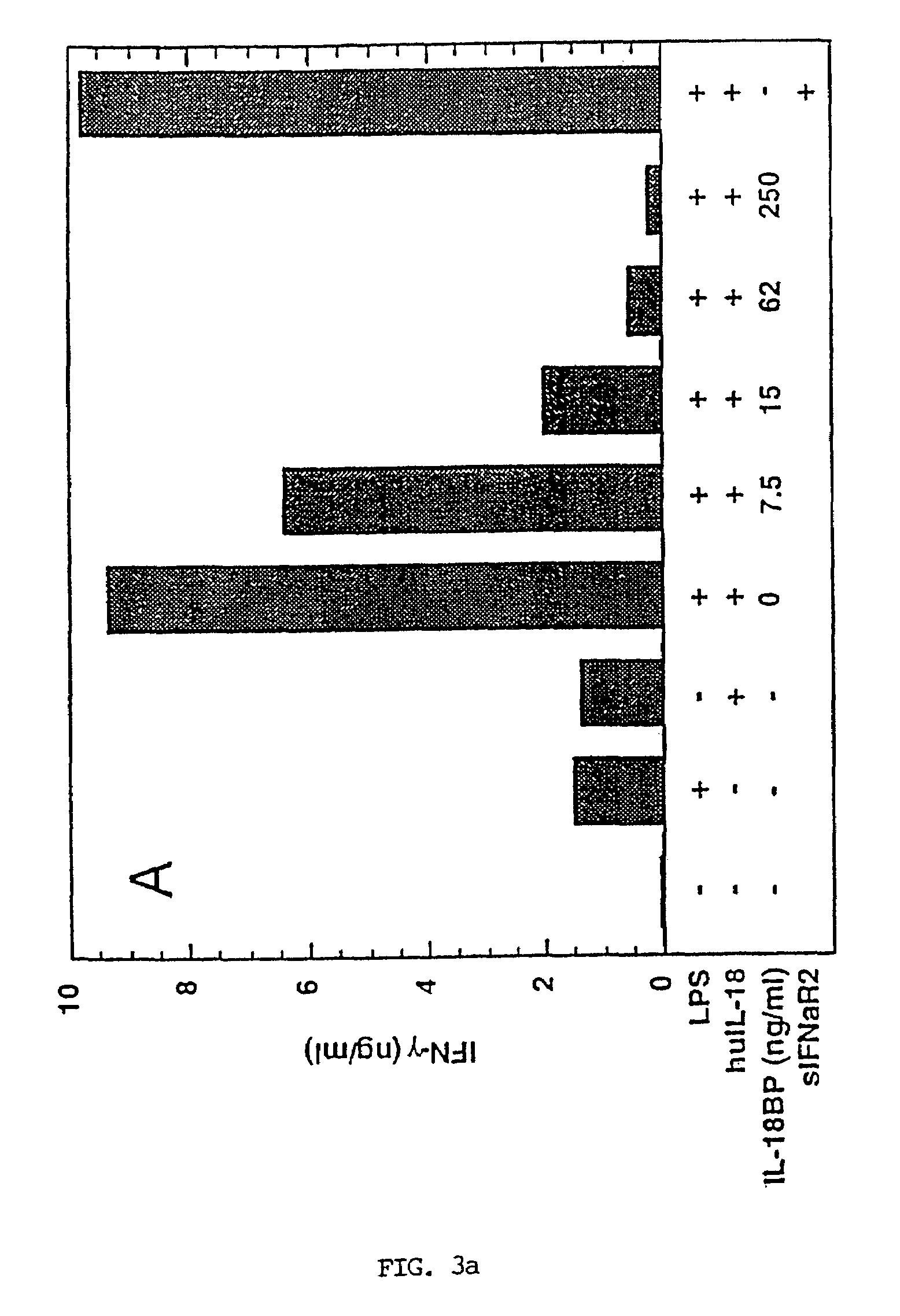Patents
Literature
67 results about "Severe sepsis" patented technology
Efficacy Topic
Property
Owner
Technical Advancement
Application Domain
Technology Topic
Technology Field Word
Patent Country/Region
Patent Type
Patent Status
Application Year
Inventor
Severe sepsis. A condition defined clinically as 'Sepsis associated with organ dysfunction, hypotension, or hypoperfusion abnormalities (which include) …lactic acidosis, oliguria, or an acute alteration in mental status; SS is part of a continuum of a biologic inflammatory response to infection that evolve toward septic shock.
Methods and compositions for determining treatment regimens in systemic inflammatory response syndromes
InactiveUS20050148029A1Improve discriminationMicrobiological testing/measurementDisease diagnosisMedicineWhole body
The present invention relates to methods and compositions for symptom-based differential diagnosis, prognosis, and determination of treatment regimens in subjects. In particular, the invention relates to methods and compositions selected to rule in or out SIRS, or for differentiating sepsis, severe sepsis, septic shock and / or MODS from each other and / or from non-infectious SIRS.
Owner:BIOSITE INC
Methods and compositions for diagnosis and /or prognosis in systemic inflammatory response syndromes
InactiveUS20070092911A1Improve discriminationDisease diagnosisBiological testingWhole bodyDifferential diagnosis
The present invention relates to methods and compositions for symptom-based differential diagnosis, prognosis, and determination of treatment regimens in subjects. In particular, the invention relates to methods and compositions selected to rule in or out SIRS, or for differentiating sepsis, severe sepsis, septic shock and / or MODS from each other and / or from non-infectious SIRS.
Owner:BIOSITE INC
Methods and compositions for the diagnosis of sepsis
InactiveUS20050164238A1Improve discriminationMicrobiological testing/measurementDisease diagnosisDifferential diagnosisNon infectious
The present invention relates to methods and compositions for symptom-based differential diagnosis, prognosis, and determination of treatment regimens in subjects. In particular, the invention relates to methods and compositions selected to rule in or out SIRS, or for differentiating sepsis, severe sepsis, and / or septic shock from each other and / or from non-infectious SIRS.
Owner:BIOSITE INC
Methods for monitoring patients with severe sepsis and septic shock and for selecting treatments for these patients
InactiveUS20080311554A1Effective treatmentMicrobiological testing/measurementBiological testingClinical efficacyPhysiologic Test
Methods of identifying, monitoring and matching patients with appropriate treatments who are at risk for developing a systemic inflammatory condition using a systemic mediator-associated physiologic test profile are provided. The methods of the present invention increase the likelihood of demonstrating clinical efficacy in clinical trial datasets.
Owner:SLOTMAN GUS J
Diagnosis of sepsis or SIRS using biomarker profiles
ActiveUS7645573B2Accurate and rapid and sensitive prediction and diagnosisMicrobiological testing/measurementDisease diagnosisDiseaseEarly prediction
The early prediction or diagnosis of sepsis advantageously allows for clinical intervention before the disease rapidly progresses beyond initial stages to the more severe stages, such as severe sepsis or septic shock, which are associated with high mortality. Early prediction or diagnosis is accomplished using a molecular diagnostics approach, involving comparing an individual's profile of biomarker expression to profiles obtained from one or more control, or reference, populations, which may include a population who develops sepsis. Recognition of features in the individual's biomarker profile that are characteristic of the onset of sepsis allows a clinician to diagnose the onset of sepsis from a bodily fluid isolated at the individual at a single point in time. The necessity of monitoring the patient over a period of time is, therefore, avoided, advantageously allowing clinical intervention before the onset of serious symptoms. Further, because the biomarker expression is assayed for its profile, identification of the particular biomarkers is unnecessary. The comparison of an individual's biomarker profile to biomarker profiles of appropriate reference populations likewise can be used to diagnose SIRS in the individual.
Owner:BECTON DICKINSON & CO
Anti-C5A Binding Moieties with High Blocking Activity
ActiveUS20120231008A1Easy to prepareProlong half-life in vivoAntipyreticGenetic material ingredientsDiseaseAntiendomysial antibodies
The present invention relates to binding moieties that specifically bind to a conformational epitope of C5a, in particular human C5a. Preferred binding moieties are anti-C5a antibodies that bind to this conformational epitope. The binding moieties described herein are useful as active agents in pharmaceutical compositions for the treatment and prevention of various acute and chronic diseases, in particular acute inflammatory diseases, such as the systemic inflammatory response syndrome (SIRS), and different degrees of sepsis including sepsis, severe sepsis, and septic shock.
Owner:INFLARX
Methods and compositions for diagnosis and/or prognosis in systemic inflammatory response syndromes
The present invention relates to methods and compositions for diagnosing SIRS, sepsis, severe sepsis, septic shock, or MODS in a subject, or assigning a prognostic risk for one or more clinical outcomes for a subject suffering from SIRS, sepsis, severe sepsis, septic shock, or MODS, the method comprising performing an immunoassay for CCL23 splice variant.
Owner:ALERE SAN DIEGO INC
Methods and compositions for diagnosis and/or prognosis in systemic inflammatory response syndromes
The present invention relates to methods and compositions for diagnosing SIRS, sepsis, severe sepsis, septic shock, or MODS in a subject, or assigning a prognostic risk for one or more clinical outcomes for a subject suffering from SIRS, sepsis, severe sepsis, septic shock, or MODS, the method comprising performing an immunoassay for CCL23 splice variant.
Owner:BIOSITE INC
Anti-C5a binding antibodies with high block activity
ActiveUS8802096B2Easy to prepareProlong half-life in vivoAntipyreticGenetic material ingredientsActive agentAcute inflammatory disease
Owner:INFLARX
Diagnosis of sepsis or SIRS using biomarker profiles
InactiveUS20080138832A1Accurate and rapid and sensitive prediction and diagnosisMicrobiological testing/measurementDisease diagnosisDiseaseEarly prediction
The early prediction or diagnosis of sepsis advantageously allows for clinical intervention before the disease rapidly progresses beyond initial stages to the more severe stages, such as severe sepsis or septic shock, which are associated with high mortality. Early prediction or diagnosis is accomplished by comparing an individual's profile of biomarker expression to profiles obtained from one or more control, or reference, populations, which may include a population that develops sepsis. Recognition of features in the individual's biomarker profile that are characteristic of the onset of sepsis allows a clinician to diagnose the onset of sepsis from a bodily fluid isolated from the individual at a single point in time. The necessity of monitoring the patient over a period of time is, therefore, avoided, advantageously allowing clinical intervention before the onset of serious symptoms of sepsis. Further, because the biomarker expression is assayed for its profile, identification of the particular biomarkers is unnecessary. The comparison of an individual's biomarker profile to biomarker profiles of appropriate reference populations likewise can be used to diagnose SIRS in the individual.
Owner:BECTON DICKINSON & CO
Methods and compositions for diagnosis and/or prognosis in systemic inflammatory response syndromes
The present invention relates to methods and compositions for diagnosing SIRS, sepsis, severe sepsis, septic shock, or MODS in a subject, or assigning a prognostic risk for one or more clinical outcomes for a subject suffering from SIRS, sepsis, severe sepsis, septic shock, or MODS, the method comprising performing an immunoassay for CCL23 splice variant.
Owner:ALERE SAN DIEGO INC
Application of pharmaceutical composition in preparation of medicine for treating sepsis
InactiveCN104546832AImprove efficacyHydroxy compound active ingredientsAntipyreticDiseaseInjury brain
The present invention relates to a use of a pharmaceutical composition in the manufacture of medicament for treating related diseases caused by endotoxemia. The pharmaceutical composition comprises 3-methyl-1-phenyl-2-pyrazolin-5-one or pharmaceutically acceptable salt thereof and borneol. The diseases include, but are not limited to, systemic inflammatory response syndrome, sepsis, severe sepsis, septic shock, sepsis related disseminated intravascular coagulation, acute lung injury, acute respiratory distress syndrome, multiple organ failure syndrome, septic brain injury and inflammatory lung injury caused by other reasons, including but not limited to bacterial pneumonia.
Owner:YANTAI YENEPHARMA BIOMEDICAL
Severe sepsis preventive therapeutic agent
InactiveUS20060058288A1Inhibit productionEffective for prophylaxis and treatmentBiocideSenses disorderOrgan dysfunctionPharmaceutical Substances
The present invention provides an agent for the prophylaxis or treatment of severe sepsis, which contains a compound represented by the formula (I): or, the formula (II): , or a salt thereof or a prodrug thereof, a TLR signal inhibitor containing a non-peptide compound and an agent for the prophylaxis or treatment of organ dysfunction and the like, which contains a TLR signal inhibitory substance.
Owner:TAKEDA PHARMA CO LTD
Diagnosis of sepsis or SIRS using biomarker profiles
InactiveCN1738908AMicrobiological testing/measurementDisease diagnosisEarly predictionMortality rate
The early prediction or diagnosis of sepsis advantageously allows for clinical intervention before the disease rapidly progresses beyond initial stages to the more severe stages, such as severe sepsis or septic shock, which are associated with high mortality. Early prediction or diagnosis is accomplished using a molecular diagnostics approach, involving comparing an individual's profile of biomarker expression to profiles obtained from one or more control, or reference, populations, which may include a population that develops sepsis. Recognition of features in the individual's biomarker profile that are characteristic of the onset of sepsis allows a clinician to diagnose the onset of sepsis from a bodily fluid isolated at the individual at a single point in time. The necessity of monitoring the patient over a period of time is, therefore, avoided, advantageously allowing clinical intervention before the onset of serious symptoms of sepsis. Further, because the biomarker expression is assayed for its profile, identification of the particular biomarkers is unnecessary. The comparison of an individual's biomarker profile to biomarker profiles of appropriate reference populations likewise can be used to diagnose SIRS in the individual.
Owner:BECTON DICKINSON & CO
Diagnostic method
It has been demonstrated that the level of HBP increases in individuals that subsequently develop severe sepsis. Accordingly, the level of HBP, HBP / WBC ratio or HBP / NC ratio in an individual can be used to determine whether or not an individual is at risk of developing severe sepsis.
Owner:HANSA BIOPHARMA AB
Diagnostic for Sepsis
InactiveUS20170073734A1Reduce riskAntibacterial agentsMicrobiological testing/measurementClinical manifestationPolynucleotide
A method of diagnosing severe sepsis prior to definitive clinical diagnosis. A pattern of gene expression that correlates strongly with a future diagnosis of severe sepsis and organ failure was identified in patients who had their blood drawn at first clinical presentation. The methods comprise identifying a pattern of two or more polynucleotides, whereby the altered expression of these polynucleotides correlates with prospective and actual sepsis. Also methods of identifying agents for treating sepsis based on the characteristics of this gene expression pattern are provided.
Owner:HANCOCK ROBERT E W
Use of IL-18 inhibitors for treatment or prevention of sepsis
The present invention provides a method of treatment and / or prevention of sepsis and other diseases characteristic to the Systemic Inflammatory Response Syndrone (SIRS), including severe sepsis, septic shock and sepsis related to cardiac dysfunction.
Owner:YEDA RES & DEV CO LTD
Severe sepsis preventive therapeutic agent
InactiveUS20110184034A1Prophylaxis or treatmentInhibit productionAntibacterial agentsOrganic active ingredientsOrgan dysfunctionIsrapafant
The present invention provides an agent for the prophylaxis or treatment of severe sepsis, which contains a compound represented by the formula (I):or, the formula (II):or a salt thereof or a prodrug thereof, a TLR signal inhibitor containing a non-peptide compound and an agent for the prophylaxis or treatment of organ dysfunction and the like, which contains a TLR signal inhibitory substance.
Owner:TAKEDA PHARMA CO LTD
Use of ER selective NF-kB inhibitors for the treatment of sepsis
The present invention provides methods for treating sepsis, systemic inflammatory response syndrome, severe sepsis, septic shock, and multiple organ dysfunction syndrome by modulating NF-κB transcription with ligands that interact with the estrogen receptor, preferably in the absence of classic estrogenic activity. Other aspects of the invention relate to methods for treating sepsis, systemic inflammatory response syndrome, severe sepsis, septic shock, and multiple organ dysfunction syndrome that comprise administering to a patient suffering therefrom an effective amount of a compound of Formula I:
Owner:WYETH LLC
A method for preparing a purified extract of lonicera japonica thunberg and the composition comprising the same for preventing and treating sepsis and septic shock
The present invention relates to a method for preparing a purified extract of Lonicera Japonica THUNBERG and the composition comprising the same for preventing and treating sepsis and septic shock. The purified extract of purified extract of Lonicera Japonica THUNBERG potent ant-sepsis activity in severe sepsis CLP model test, the effect on MODS, and the inhibitory effect on various pro-inflammatory cytokines such as TNF-alpha, IL-1beta, IFN-gamma, HMGB-1 etc, as well as it showed unexpectedly synergistic effect on the treatment of sepsis and septic shock in case of combining with the commercially available anti-septic agent such as broad-spectrum anti-biotic to the person skilled in the art, therefore, it can be useful in treating and preventing the sepsis and septic shock as a medicament and health functional food.
Owner:HUONS
Method for the prevention and treatment of sepsis
ActiveUS20140162978A1Preventing clinical signImprove survivalOrganic active ingredientsAntiinfectivesMedical treatmentSevere sepsis
This invention is in the field of medical treatment, in particular the invention provides a method for the prevention and treatment for sepsis or septic shock. The invention provides a novel use of a known medicament, i.e. pentasaccharide-depleted heparin for use in the treatment or prevention of sepsis, SIRS, severe sepsis or septic shock.
Owner:MAASTRICHT UNIVERSITY +1
Methods and kits for the rapid determination of patients at high risk of death during severe sepsis and septic shock
The present invention provides for the in vitro establishing of a prognosis for a subject in severe sepsis with at least two organ failures or in septic shock with at least two organ failures. Embodiments of the invention comprise the steps of measuring the level of the S100A8 / A9 complex from a biological sample from a subject, and comparing the measured level to a predetermined threshold in which the measured level of the S100A8 / A9 complex above the predetermined threshold is indicative of a bad prognosis and a measured level of the S100A8 / A9 complex below the predetermined threshold is indicative of a good prognosis.
Owner:ASSISTANCE PUBLIQUE HOPITAUX DE PARIS
Development of therapeutics for the treatment of endotoxin-meidated diseases
InactiveUS20060014150A1Improve severityReduce the impactAntibacterial agentsBiocidePrimateBiological activation
The subject invention comprises a method for identifying an evolutionarily meaningful nucleotide change in a primate's TLR4 polynucleotide. It further comprises methods for identifying agents that interact with the corresponding evolutionarily meaningful amino acid change so as to modulate the function of the TLR4 polypeptide, thereby attenuating activation of the NF-kB pathway. Such agents are useful in mitigating the LPS mediated response and in the treatment of sepsis, severe sepsis and septic shock.
Owner:EVOLUTIONARY GENOMICS LLC
Methods of Diagnosing and Treating an Inflammatory Response
The present invention relates to the discovery that VEGF, PlGF, and sFlt-1 levels are increased in inflammatory response such as in sepsis, severe sepsis, or septic shock. Additionally, the invention provides methods of identifying treatments as well as providing treatments for such an inflammatory response, which include decreasing VEGF or PlGF levels, or increasing sFlt-1 or PlGF levels.
Owner:BETH ISRAEL DEACONESS MEDICAL CENT INC
Interleukin-18 binding proteins, their preparation and use for the treatment of sepsis
InactiveUS20070081975A1Reduce the severity of the diseaseAvoid spreadingPeptide/protein ingredientsAntibody mimetics/scaffoldsCardiac dysfunctionWhite blood cell
The present invention provides a method of treatment or prevention of sepsis and other diseases characteristic to the Systemic Inflammatory Response Syndrome (SIRS), including severe sepsis, septic shock, and sepsis related to cardiac dysfunction.
Owner:YEDA RES & DEV CO LTD
Method of treatment
InactiveUS20090304818A1Reducing mean arterial pressureIncreasing renal blood flowAntibacterial agentsBiocideMajor traumaWhole body
The present invention relates generally to a method of treatment and in particular a method of treating a subject exhibiting symptoms of kidney failure or are at risk of developing same. Even more particularly, the present invention provides a method of treating kidney failure or reducing the risk of developing kidney failure in a subject such as following or during or prior to sepsis or a related condition including severe sepsis, septic shock and the systemic inflammatory response syndrome or any state of systemic or renal vasodilatation with low blood pressure and a high cardiac output with kidney failure, such as liver disease with associated kidney failure or kidney failure after cardiopulmonary bypass in patients in whom the systemic inflammatory syndrome which follows such cardiopulmonary bypass is associated with a high cardiac output and systemic or renal vasodilatation or kidney failure in other conditions which lead to the systemic inflammatory response syndrome with systemic or renal vasodilatation such as major trauma, major surgery and similar states which can induce the aforementioned systemic inflammatory response syndrome.
Owner:HOWARD FLOREY INST OF EXPERIMENTAL PHYSIOLOGY & MEDICINE
Methods and Kits for the Rapid Determination of Patients at High Risk of Death During Severe Sepsis and Septic Shock
The present invention provides methods and kits to obtain an early evaluation of mortality risk and help therapeutic decisions for patients in severe sepsis with two organ failures, for example for patients in septic shock. The invention is based on the measure of the level of S100A8 / A9 complex in plasma, since a level of S100A8 / A9 above a predetermined threshold is indicative of a bad prognosis and a level of S100A8 / A9 below said predetermined threshold is indicative of a good prognosis.
Owner:ASSISTANCE PUBLIQUE HOPITAUX DE PARIS
Methods and kits for the rapid determination of patients at high risk of death during severe sepsis and septic shock
Owner:巴黎公众助理医院
Application of VEGF (Vascular Endothelial Growth Factor) receptor fusion protein in preparation of medicament treating sepsis
The invention relates to one or more VEGF (Vascular Endothelial Growth Factor) inhibitors which are selected from VEGF receptor fusion proteins including FP1, FP2, FP3, FP4, FP5, FP6, FP7 and FP8 and are used for treating inflammatory reaction accompanied by VEGF rising. The inflammatory reaction mainly comprises but is not limited to sepsis, severe sepsis and sepsis shock. The fusion proteins including FP1, FP2, FP3, FP4, FP5, FP6, FP7 and FP8 can be combined with one or more other medicaments and treatment means to treat the inflammatory reaction accompanied by the rising VEGF.
Owner:CHENGDU KANGHONG BIOTECH
Interleukin-18 binding proteins, their preparation and use for the treatment of sepsis
InactiveUS7704944B2Reduce severityAvoid spreadingPeptide/protein ingredientsAntibody mimetics/scaffoldsCardiac dysfunctionInterleukin-18 binding protein
Owner:YEDA RES & DEV CO LTD
Features
- R&D
- Intellectual Property
- Life Sciences
- Materials
- Tech Scout
Why Patsnap Eureka
- Unparalleled Data Quality
- Higher Quality Content
- 60% Fewer Hallucinations
Social media
Patsnap Eureka Blog
Learn More Browse by: Latest US Patents, China's latest patents, Technical Efficacy Thesaurus, Application Domain, Technology Topic, Popular Technical Reports.
© 2025 PatSnap. All rights reserved.Legal|Privacy policy|Modern Slavery Act Transparency Statement|Sitemap|About US| Contact US: help@patsnap.com
